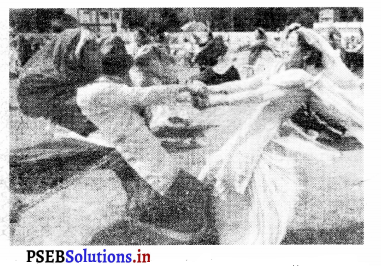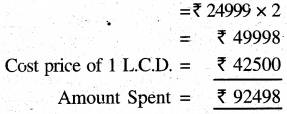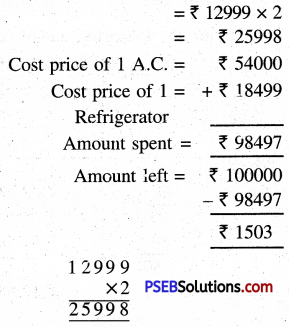Punjab State Board PSEB 6th Class Punjabi Book Solutions Punjabi Rachana ਲੇਖ-ਰਚਨਾ Exercise Questions and Answers.
PSEB 6th Class Punjabi Rachana ਲੇਖ-ਰਚਨਾ
1. ਗੁਰੂ ਨਾਨਕ ਦੇਵ ਜੀ
ਗੁਰੂ ਨਾਨਕ ਦੇਵ ਜੀ ਸਿੱਖ ਧਰਮ ਦੇ ਮੋਢੀ ਸਨ । ਆਪ ਦਾ ਜਨਮ 15 ਅਪਰੈਲ, 1469 ਈ: ਨੂੰ ਰਾਏ ਭੋਇ ਦੀ ਤਲਵੰਡੀ (ਅੱਜ-ਕਲ੍ਹ ਨਨਕਾਣਾ ਸਾਹਿਬ, ਪਾਕਿਸਤਾਨ ਵਿਚ ਹੋਇਆ ।ਉੱਬ ਸਿੱਖਾਂ ਵਿਚ ਪ੍ਰਚਲਿਤ ਰਵਾਇਤ ਅਨੁਸਾਰ ਆਪ ਦਾ ਜਨਮ ਕੱਤਕ ਦੀ ਪੂਰਨਮਾਸ਼ੀ ਨੂੰ ਮਨਾਇਆ ਜਾਂਦਾ ਹੈ । ਆਪ ਦੇ ਪਿਤਾ ਜੀ ਦਾ ਨਾਂ ਮਹਿਤਾ ਕਾਲੂ ਅਤੇ ਮਾਤਾ ਜੀ ਦਾ ਨਾਂ ਤ੍ਰਿਪਤਾ ਸੀ । ਜਿਸ ਸਮੇਂ ਆਪ ਸੰਸਾਰ ਵਿਚ ਆਏ, ਉਸ ਸਮੇਂ ਹਰ ਪਾਸੇ ਜਬਰ-ਜ਼ੁਲਮ ਹੋ ਰਿਹਾ ਸੀ । ਹਰ ਪਾਸੇ ਪਾਖੰਡ ਤੇ ਅਨਿਆਂ ਪ੍ਰਧਾਨ ਸੀ ।
ਸੱਤ ਸਾਲ ਦੀ ਉਮਰ ਵਿਚ ਆਪ ਨੂੰ ਪਾਂਧੇ ਕੋਲ ਪੜ੍ਹਨ ਲਈ ਭੇਜਿਆ ਗਿਆ । ਆਪ ਨੇ ਆਪਣੇ ਵਿਚਾਰ ਦੱਸ ਕੇ ਪਾਂਧੇ ਨੂੰ ਨਿਹਾਲ ਕੀਤਾ । ਜਵਾਨ ਹੋਣ ‘ਤੇ ਆਪ ਦਾ ਮਨ ਘਰ ਦੇ ਕੰਮਾਂ ਵਿਚ ਨਾ ਲੱਗਾ । ਪਿਤਾ ਮਹਿਤਾ ਕਾਲ ਨੇ ਆਪ ਨੂੰ ਆਪ ਦੀ ਭੈਣ ਬੇਬੇ ਨਾਨਕੀ ਕੋਲ ਸੁਲਤਾਨਪੁਰ ਭੇਜ ਦਿੱਤਾ । ਇੱਥੇ ਆਪ ਨੇ ਨਵਾਬ ਦੌਲਤ ਖਾਂ ਲੋਧੀ ਦਾ ਮੋਦੀਖ਼ਾਨਾ ਚਲਾਇਆ । ਸੁਲਤਾਨਪੁਰ ਵਿਚ ਹੀ ਇਕ ਦਿਨ ਆਪ ਵੇਈਂ ਨਦੀ ਵਿਚ ਇਸ਼ਨਾਨ ਕਰਨ ਗਏ ਤੇ ਤਿੰਨ ਦਿਨ ਅਲੋਪ ਰਹੇ । ਇਸ ਸਮੇਂ ਆਪ ਨੂੰ ਨਿਰੰਕਾਰ ਵਲੋਂ ਸੰਸਾਰ ਦਾ ਕਲਿਆਣ ਕਰਨ ਦਾ ਸੁਨੇਹਾ ਪ੍ਰਾਪਤ ਹੋਇਆ ।
ਇਸ ਤੋਂ ਪਿੱਛੋਂ ਆਪ ਨੇ ਸੰਸਾਰ ਨੂੰ ਤਾਰਨ ਲਈ ਪੁਰਬ, ਦੱਖਣ, ਉੱਤਰ ਤੇ ਪੱਛਮ ਦੀਆਂ ਚਾਰ ਉਦਾਸੀਆਂ ਕੀਤੀਆਂ ਤੇ ਸੰਸਾਰ ਨੂੰ ਸੱਚ ਦਾ ਉਪਦੇਸ਼ ਦਿੱਤਾ । ਆਪ ਹਿੰਦੂਆਂ ਦੇ ਗੁਰੂ ਤੇ ਮੁਸਲਮਾਨਾਂ ਦੇ ਪੀਰ ਕਹਾਏ । ਆਪ ਨੇ ਬਹੁਤ ਸਾਰੀ ਬਾਣੀ ਰਚੀ ।
ਆਪ ਨੇ ਆਪਣੀ ਗੱਦੀ ਦਾ ਵਾਰਸ ਭਾਈ ਲਹਿਣਾ ਜੀ ਨੂੰ ਗੁਰੂ ਅੰਗਦ ਦੇਵ ਨਾਂ ਨਾਲ ਸੁਸ਼ੋਭਿਤ ਕਰਕੇ ਚੁਣਿਆ । 22 ਸਤੰਬਰ, 1539 ਈ: ਨੂੰ ਆਪ ਕਰਤਾਰਪੁਰ ਵਿਚ ਜੋਤੀ-ਜੋਤ ਸਮਾ ਗਏ ।

2. ਗੁਰੂ ਗੋਬਿੰਦ ਸਿੰਘ ਜੀ ।
ਗੁਰੁ ਗੋਬਿੰਦ ਸਿੰਘ ਜੀ ਸਿੱਖਾਂ ਦੇ ਦਸਵੇਂ ਗੁਰੂ ਹੋਏ ਹਨ । ਆਪ ਦਾ ਜਨਮ 1666 ਈ: ਵਿਚ ਪਟਨਾ ਸ਼ਹਿਰ ਵਿਖੇ ਮਾਤਾ ਗੁਜਰੀ ਜੀ ਦੀ ਕੁੱਖੋਂ ਹੋਇਆ । ਗੁਰੂ ਤੇਗ਼ ਬਹਾਦਰ ਜੀ ਆਪ ਦੇ ਪਿਤਾ ਸਨ । ਬਚਪਨ ਵਿਚ ਆਪ ਆਪਣੇ ਹਾਣੀਆਂ ਨਾਲ ਕਈ ਤਰ੍ਹਾਂ ਦੇ ਚੋਜ ਕਰਦੇ ਰਹਿੰਦੇ ਸਨ ।
1672 ਈ: ਵਿਚ ਆਪ ਦੇ ਪਿਤਾ ਜੀ ਪਟਨੇ ਤੋਂ ਆਨੰਦਪੁਰ ਸਾਹਿਬ ਆ ਗਏ । ਇੱਥੇ ਆਪ ਨੇ ਸ਼ਸਤਰ ਵਿੱਦਿਆ ਤੇ ਧਾਰਮਿਕ ਵਿੱਦਿਆ ਪ੍ਰਾਪਤ ਕੀਤੀ । ਮੁਗਲ ਬਾਦਸ਼ਾਹ ਔਰੰਗਜ਼ੇਬ ਨੇ ਹਿੰਦੂ ਧਰਮ ਨੂੰ ਖ਼ਤਮ ਕਰਨ ਲਈ ਅੱਤ ਚੁੱਕੀ ਹੋਈ ਸੀ । ਕਸ਼ਮੀਰੀ ਪੰਡਤ ਦੁਖੀ ਹੋ ਕੇ ਗੁਰੂ ਤੇਗ ਬਹਾਦਰ ਸਾਹਿਬ ਕੋਲ ਸਹਾਇਤਾ ਲਈ ਫ਼ਰਿਆਦ ਲੈ ਕੇ ਆਏ। ਉਸ ਸਮੇਂ ਆਪ ਕੇਵਲ 9 ਸਾਲਾਂ ਦੇ ਸਨ । ਆਪ ਨੇ ਆਪਣੇ ਪਿਤਾ ਜੀ ਨੂੰ ਔਰੰਗਜ਼ੇਬ ਦੇ ਜ਼ੁਲਮਾਂ ਵਿਰੁੱਧ ਕੁਰਬਾਨੀ ਦੇਣ ਲਈ ਦਿੱਲੀ ਭੇਜਿਆ ।
ਪਿਤਾ ਜੀ ਦੀ ਸ਼ਹੀਦੀ ਪਿੱਛੋਂ ਆਪ ਨੇ ਕੌਮ ਨੂੰ ਇਕ-ਮੁੱਠ ਕਰ ਕੇ ਸ਼ਸਤਰ ਵਿੱਦਿਆ ਦੇਣੀ ਸ਼ੁਰੂ ਕੀਤੀ । 1699 ਈ: ਵਿਚ ਵਿਸਾਖੀ ਵਾਲੇ ਦਿਨ ਆਪ ਨੇ ਖ਼ਾਲਸਾ ਪੰਥ ਸਾਜਿਆ ਤੇ ਅੰਮ੍ਰਿਤ ਦੀ ਦਾਤ ਬਖ਼ਸ਼ੀ ।
ਇਸ ਪਿੱਛੋਂ ਗੁਰੂ ਜੀ ਨੂੰ ਪਹਾੜੀ ਰਾਜਿਆਂ ਤੇ ਮੁਗ਼ਲ ਫ਼ੌਜਾਂ ਨਾਲ ਕਈ ਲੜਾਈਆਂ ਲੜਨੀਆਂ ਪਈਆਂ । ਆਪ ਦੇ ਦੁਸ਼ਮਣਾਂ ਨੂੰ ਹਰ ਥਾਂ ਹਾਰ ਦਾ ਮੂੰਹ ਦੇਖਣਾ ਪਿਆ । ਆਪ ਦੇ ਦੋ ਛੋਟੇ ਸਾਹਿਬਜ਼ਾਦਿਆਂ ਨੂੰ ਸਰਹੰਦ ਦੇ ਨਵਾਬ ਨੇ ਨੀਹਾਂ ਵਿਚ ਚਿਣਵਾ ਦਿੱਤਾ । ਦੋ ਵੱਡੇ ਸਾਹਿਬਜ਼ਾਦੇ ਚਮਕੌਰ ਦੀ ਜੰਗ ਵਿਚ ਸ਼ਹੀਦ ਹੋ, ਗਏ । ਅੰਤ ਆਪ ਨੰਦੇੜ ਪੁੱਜੇ । 1708 ਈ: ਵਿਚ ਆਪ ਇੱਥੇ ਹੀ ਜੋਤੀ-ਜੋਤ ਸਮਾ ਗਏ ।
3. ਮਹਾਤਮਾ ਗਾਂਧੀ
ਮਹਾਤਮਾ ਗਾਂਧੀ ਭਾਰਤ ਦੇ ਰਾਸ਼ਟਰ-ਪਿਤਾ ਸਨ । ਆਪ ਨੇ ਭਾਰਤ ਦੀ ਅਜ਼ਾਦੀ ਲਈ ‘ ਘੋਲ ਕੀਤਾ । ਆਪ ਅਹਿੰਸਾ ਦੇ ਅਵਤਾਰ ਸਨ ।
ਆਪ ਦਾ ਜਨਮ 2 ਅਕਤੂਬਰ, 1869 ਈ: ਨੂੰ ਪੋਰਬੰਦਰ (ਕਾਠੀਆਵਾੜ, ਗੁਜਰਾਤ ਵਿਚ ਹੋਇਆ । ਆਪ ਦਾ ਪੂਰਾ ਨਾਂ ਮੋਹਨ ਦਾਸ ਕਰਮ ਚੰਦ ਗਾਂਧੀ ਸੀ । ਆਪ ਸਦਾ ਸੱਚ ਬੋਲਦੇ ਸਨ ਤੇ ਮਾਤਾ-ਪਿਤਾ ਦੀ ਆਗਿਆ ਦਾ ਪਾਲਣ ਕਰਦੇ ਸਨ । ਦੇਸ਼ ਵਿਚ ਬੀ. ਏ. ਪਾਸ ਕਰ ਕੇ ਆਪ ਨੇ ਵਲਾਇਤ ਤੋਂ ਬੈਰਿਸਟਰੀ ਦੀ ਡਿਗਰੀ ਪ੍ਰਾਪਤ ਕੀਤੀ ।
ਅਪ ਦੇ ਮਨ ਵਿਚ ਦੇਸ਼-ਪਿਆਰ ਠਾਠਾਂ ਮਾਰ ਰਿਹਾ ਸੀ । ਆਪ ਨੇ ਭਾਰਤ ਨੂੰ ਅਜ਼ਾਦ ਕਰਾਉਣ ਦਾ ਨਿਸਚਾ ਕਰ ਲਿਆ । ਆਪ ਨੇ ਕਾਂਗਰਸ ਪਾਰਟੀ ਦੀ ਵਾਗ-ਡੋਰ ਸੰਭਾਲ ਕੇ ਅੰਗਰੇਜ਼ਾਂ ਵਿਰੁੱਧ ਘੋਲ ਸ਼ੁਰੂ ਕੀਤਾ ਤੇ ਨਾ-ਮਿਲਵਰਤਨ ਲਹਿਰ ਤੇ ਹੋਰ ਲਹਿਰਾਂ ਚਲਾਈਆਂ । ਗਾਂਧੀ ਜੀ ਕਈ ਵਾਰ ਜੇਲ ਗਏ । 1930 ਈ: ਵਿਚ ਆਪ ਨੇ ਲੁਣ ਦਾ ਸਤਿਆਗ੍ਰਹਿ ਕੀਤਾ । 1942 ਈ: ਵਿਚ ਆਪ ਨੇ ਅੰਗਰੇਜ਼ਾਂ ਵਿਰੁੱਧ ‘ਭਾਰਤ ਛੱਡੋ’ ਲਹਿਰ ਚਲਾਈ ।
ਅੰਤ ਅੰਗਰੇਜ਼ਾਂ ਨੇ ਮਜਬੂਰ ਹੋ ਕੇ 15 ਅਗਸਤ, 1947 ਈ: ਨੂੰ ਹਥਿਆਰ ਸੁੱਟ ਦਿੱਤੇ ਅਤੇ ਭਾਰਤ ਨੂੰ ਅਜ਼ਾਦ ਕਰ ਦਿੱਤਾ । ਇਸ ਸਮੇਂ ਦੇਸ਼ ਦੀ ਵੰਡ ਕਾਰਨ ਹੋਏ ਫ਼ਿਰਕੂ ਫ਼ਸਾਦਾਂ ਨੂੰ ਦੇਖ ਕੇ ਆਪ ਬਹੁਤ ਦੁਖੀ ਹੋਏ । ਆਪ ਅਛੂਤ-ਉਧਾਰ ਦੇ ਬਹੁਤ ਹਾਮੀ ਸਨ ਅਤੇ ਆਪ ਨੇ ਜਾਤ-ਪਾਤ ਤੇ ਛੂਤ-ਛਾਤ ਦੇ ਭੇਦ-ਭਾਵ ਨੂੰ ਖ਼ਤਮ ਕਰਨ ਲਈ ਸਿਰਤੋੜ ਯਤਨ ਕੀਤੇ । 30 ਜਨਵਰੀ, 1948 ਈ: ਨੂੰ ਹਤਿਆਰੇ ਨੱਥੂ ਰਾਮ ਗੌਡਸੇ ਨੇ ਗੋਲੀਆਂ ਮਾਰ ਕੇ ਆਪ ਨੂੰ ਸ਼ਹੀਦ ਕਰ ਦਿੱਤਾ।

4. ਪੰਡਿਤ ਜਵਾਹਰ ਲਾਲ ਨਹਿਰੂ
ਪੰਡਿਤ ਜਵਾਹਰ ਲਾਲ ਨਹਿਰੂ ਦਾ ਜਨਮ 14 ਨਵੰਬਰ, 1889 ਈ: ਨੂੰ ਅਲਾਹਾਬਾਦ ਵਿਚ ਉੱਘੇ ਵਕੀਲ ਤੇ ਦੇਸ਼-ਭਗਤ ਪੰਡਿਤ ਮੋਤੀ ਲਾਲ ਨਹਿਰੂ ਦੇ ਘਰ ਹੋਇਆ । ਆਪ ਨੇ ਇੰਗਲੈਂਡ ਤੋਂ ਬੈਰਿਸਟਰੀ ਦੀ ਡਿਗਰੀ ਪ੍ਰਾਪਤ ਕੀਤੀ । ਇੰਗਲੈਂਡ ਤੋਂ ਵਾਪਸ ਪਰਤ ਕੇ ਆਪ ਭਾਰਤ ਦੀ ਅਜ਼ਾਦੀ ਦੀ ਲਹਿਰ ਵਿਚ ਹਿੱਸਾ ਲੈਣ ਲੱਗੇ ।
1920 ਈ: ਵਿਚ ਜਦੋਂ ਗਾਂਧੀ ਜੀ ਨੇ ਨਾ-ਮਿਲਵਰਤਨ ਲਹਿਰ ਚਲਾਈ, ਤਾਂ ਨਹਿਰੁ ਜੀ ਨੇ ਪਰਿਵਾਰ ਸਮੇਤ ਇਸ ਲਹਿਰ ਵਿਚ ਹਿੱਸਾ ਲਿਆ । 1930 ਈ: ਵਿਚ ਪੰਡਿਤ ਨਹਿਰੂ ਕਾਂਗਰਸ ਪਾਰਟੀ ਦੇ ਪ੍ਰਧਾਨ ਚੁਣੇ ਗਏ । ਆਪ ਕਈ ਵਾਰ ਜੇਲ ਗਏ ।
ਅੰਤ 15 ਅਗਸਤ, 1947 ਈ: ਨੂੰ ਭਾਰਤ ਅਜ਼ਾਦ ਹੋ ਗਿਆ । ਭਾਰਤ ਦੇ ਦੋ ਟੋਟੇ ਹੋ ਗਏ ।ਆਪ ਅਜ਼ਾਦ ਭਾਰਤ ਦੇ ਪਹਿਲੇ ਪ੍ਰਧਾਨ ਮੰਤਰੀ ਬਣੇ । ਪੰਡਿਤ ਨਹਿਰੂ ਦੀ ਅਗਵਾਈ ਹੇਠ ਭਾਰਤ ਨੇ ਬਹੁਤ ਤਰੱਕੀ ਕੀਤੀ । ਆਪ ਨੇ ਹਰ ਇਕ ਦੇਸ਼ ਨਾਲ ਮਿੱਤਰਤਾ ਵਧਾਈ । ਆਪ ਜੰਗ ਦੇ ਵਿਰੋਧੀ ਅਤੇ ਸ਼ਾਂਤੀ ਦੇ ਪੁਜਾਰੀ ਸਨ ।
ਪੰਡਿਤ ਨਹਿਰੂ ਦੇ ਦਿਲ ਵਿਚ ਦੇਸ਼-ਵਾਸੀਆਂ ਨਾਲ ਅਥਾਹ ਪਿਆਰ ਸੀ । ਬੱਚੇ ਉਨ੍ਹਾਂ ਨੂੰ “ਚਾਚਾ ਨਹਿਰੂ’ ਆਖ ਕੇ ਪੁਕਾਰਦੇ ਸਨ । ਭਾਰਤ ਵਾਸੀਆਂ ਦਾ ਇਹ ਹਰਮਨ-ਪਿਆਰਾ ਨੇਤਾ 27 ਮਈ, 1964 ਨੂੰ ਦਿਲ ਦੀ ਧੜਕਣ ਬੰਦ ਹੋਣ ਨਾਲ ਅੱਖਾਂ ਮੀਟ, ਗਿਆ ।
5. ਸ਼ਹੀਦ ਸ: ਭਗਤ ਸਿੰਘ
ਸ: ਭਗਤ ਸਿੰਘ ਭਾਰਤ ਦੀ ਅਜ਼ਾਦੀ ਦੇ ਇਤਿਹਾਸ ਦਾ ਸਿਰਲੱਥ ਯੋਧਾ ਸੀ । ਉਸ ਦਾ ਪਿਤਾ ਸ: ਕਿਸ਼ਨ ਸਿੰਘ ਕਾਂਗਰਸ ਦਾ ਉੱਘਾ ਲੀਡਰ ਸੀ । ਸ: ਅਜੀਤ ਸਿੰਘ ਜਲਾਵਤਨ ਉਸ ਦਾ ਚਾਚਾ ਸੀ । ਉਸ ਦਾ ਜਨਮ 28 ਸਤੰਬਰ, 1907 ਈ: ਨੂੰ ਚੱਕ ਨੰਬਰ 105, ਜ਼ਿਲ੍ਹਾ ਲਾਇਲਪੁਰ ਵਿਚ ਹੋਇਆ । ਖਟਕੜ ਕਲਾਂ (ਜ਼ਿਲ੍ਹਾ ਜਲੰਧਰ) ਉਸ ਦਾ ਜੱਦੀ ਪਿੰਡ ਸੀ ।
ਬਚਪਨ ਵਿਚ ਜਲਿਆਂ ਵਾਲੇ ਬਾਗ ਦੇ ਖੂਨੀ ਕਾਂਡ ਨੇ ਉਸ ਦੇ ਮਨ ਉੱਪਰ ਡੂੰਘਾ ਅਸਰ ਪਾਇਆ । 1925 ਵਿਚ ਭਗਤ ਸਿੰਘ, ਸੁਖਦੇਵ, ਭਗਵਤੀ ਚਰਨ ਤੇ ਧਨਵੰਤੀ ਆਦਿ ਨੇ ‘ਨੌਜਵਾਨ ਭਾਰਤ ਸਭਾ’ ਬਣਾਈ ਤੇ ਅੰਗਰੇਜ਼ਾਂ ਵਿਰੁੱਧ ਘੋਲ ਆਰੰਭ ਕਰ ਦਿੱਤਾ । । ਸ: ਭਗਤ ਸਿੰਘ ਤੇ ਉਸ ਦੇ ਸਾਥੀਆਂ ਨੇ ਲਾਲਾ ਲਾਜਪਤ ਰਾਏ ਦੇ ਕਤਲ ਦਾ ਬਦਲਾ ਲੈਣ ਲਈ ਸਾਂਡਰਸ ਨੂੰ ਮਾਰਿਆ । ਇਸ ਪਿੱਛੋਂ 8 ਅਪਰੈਲ, 1929 ਨੂੰ ਭਗਤ ਸਿੰਘ ਤੇ ਬੀ. ਕੇ. ਦੱਤ ਨੇ ਧਮਾਕੇ ਵਾਲੇ ਦੋ ਬੰਬ ਅਸੈਂਬਲੀ ਹਾਲ ਵਿਚ ਸੁੱਟੇ ਤੇ ‘ਇਨਕਲਾਬ ਜ਼ਿੰਦਾਬਾਦ’ ਦੇ ਨਾਅਰੇ ਲਾਉਂਦਿਆਂ ਗ੍ਰਿਫ਼ਤਾਰੀ ਦੇ ਦਿੱਤੀ ।
ਸਰਕਾਰ ਨੇ ਮੁਕੱਦਮੇ ਦਾ ਡਰਾਮਾ ਰਚ ਕੇ ਬੰਬ ਸੁੱਟਣ ਦੇ ਦੋਸ਼ ਵਿਚ ਭਗਤ ਸਿੰਘ ਤੇ ਬੀ. ਕੇ. ਦੱਤ ਨੂੰ ਉਮਰ ਕੈਦ ਦੀ ਸਜ਼ਾ ਦਿੱਤੀ । ਸਾਂਡਰਸ ਦੇ ਕਤਲ ਦੇ ਦੋਸ਼ ਵਿਚ ਅਦਾਲਤ ਨੇ 7 ਅਕਤੂਬਰ, 1930 ਨੂੰ ਭਗਤ ਸਿੰਘ, ਸੁਖਦੇਵ ਤੇ ਰਾਜਗੁਰੂ ਨੂੰ ਫ਼ਾਂਸੀ ਦੀ ਸਜ਼ਾ ਸੁਣਾਈ । ਇਸ ਸਮੇਂ ਗਾਂਧੀ ਜੀ ਦਾ ਲੂਣ ਦਾ ਮੋਰਚਾ ਚਲ ਰਿਹਾ ਸੀ । ਲੋਕ ਬੜੇ ਜੋਸ਼ ਵਿਚ ਸਨ । ਅੰਗਰੇਜ਼ ਸਰਕਾਰ ਨੇ ਲੋਕਾਂ ਤੋਂ ਡਰਦਿਆਂ 23 ਮਾਰਚ, 1931 ਨੂੰ ਰਾਤ ਵੇਲੇ ਹੀ ਭਗਤ ਸਿੰਘ ਤੇ ਉਸ ਦੇ ਦੋਹਾਂ ਸਾਥੀਆਂ ਨੂੰ ਫਾਂਸੀ ਲਾਇਆ ਤੇ ਲੋਥਾਂ ਵਾਰਸਾਂ ਦੇ ਹਵਾਲੇ ਕਰਨ ਦੀ ਥਾਂ ਪਿਛਲੇ ਚੋਰ ਦਰਵਾਜ਼ੇ ਥਾਈਂ ਕੱਢ ਕੇ ਫ਼ਿਰੋਜ਼ਪੁਰ ਲੈ ਗਏ । ਤਿੰਨਾਂ ਦੀ ਇਕੱਠੀ ਚਿਖਾ ਬਣਾ ਕੇ ਤੇ ਮਿੱਟੀ ਦਾ ਤੇਲ ਪਾ ਕੇ ਅੱਗ ਲਾ ਦਿੱਤੀ । ਅੱਧ-ਸੜੀਆਂ ਲਾਸ਼ਾਂ ਪੁਲਿਸ ਨੇ ਦਰਿਆ ਸਤਲੁਜ ਵਿਚ ਰੋੜ੍ਹ ਦਿੱਤੀਆਂ ।
ਭਗਤ ਸਿੰਘ ਤੇ ਉਸ ਦੇ ਸਾਥੀਆਂ ਦੀ ਇਸ ਕੁਰਬਾਨੀ ਨੇ ਸਾਰੇ ਦੇਸ਼ ਨੂੰ ਜਗਾ ਦਿੱਤਾ ਤੇ ਲੋਕ ਅੰਗਰੇਜ਼ਾਂ ਨੂੰ ਭਾਰਤ ਵਿਚੋਂ ਕੱਢਣ ਲਈ ਹੋਰ ਵੀ ਜ਼ੋਰ ਨਾਲ ਘੋਲ ਕਰਨ ਲੱਗੇ । ਅੰਤ 15 ਅਗਸਤ, 1947 ਨੂੰ, ਅਜਿਹੇ ਸਿਰਲੱਥ ਸੂਰਮਿਆਂ ਦੀਆਂ ਕੁਰਬਾਨੀਆਂ ਸਦਕਾ ਭਾਰਤ ਅਜ਼ਾਦ ਹੋ ਗਿਆ ।

6. ਦੀਵਾਲੀ
ਦੀਵਾਲੀ ਭਾਰਤ ਦਾ ਇਕ ਪ੍ਰਸਿੱਧ ਤਿਉਹਾਰ ਹੈ । ਇਹ ਹਰ ਸਾਲ ਕੱਤਕ ਦੀ ਮੱਸਿਆ ਨੂੰ ਮਨਾਇਆ ਜਾਂਦਾ ਹੈ। ਇਸ ਤੋਂ ਕੁੱਝ ਦਿਨ ਪਹਿਲਾਂ ਲੋਕ ਆਪਣੇ ਘਰਾਂ ਦੀ ਸਫ਼ਾਈ ਕਰਦੇ ਹਨ । ਉਹ ਆਪਣੇ ਮਕਾਨਾਂ ਨੂੰ ਸਫ਼ੈਦੀ ਤੇ ਰੰਗ-ਬੈਂਗਨ ਕਰਾਉਂਦੇ ਅਤੇ ਸ਼ਿੰਗਾਰਦੇ ਹਨ । . ਇਸ ਤਿਉਹਾਰ ਦਾ ਸੰਬੰਧ ਉਸ ਦਿਨ ਨਾਲ ਹੈ, ਜਦੋਂ ਸ੍ਰੀ ਰਾਮਚੰਦਰ ਜੀ 14 ਸਾਲਾਂ ਦਾ ਬਨਵਾਸ ਕੱਟ ਕੇ ਤੇ ਰਾਵਣ ਨੂੰ ਮਾਰ ਕੇ ਵਾਪਸ ਅਯੁੱਧਿਆ ਪਹੁੰਚੇ ਸਨ । ਉਸ ਦਿਨ ਲੋਕਾਂ ਨੇ ਖ਼ੁਸ਼ੀ ਵਿਚ ਦੀਪਮਾਲਾ ਕੀਤੀ ਸੀ । ਉਸੇ ਦਿਨ ਦੀ ਯਾਦ ਵਿਚ ਅੱਜ ਵੀ ਇਹ ਤਿਉਹਾਰ ਮਨਾਇਆ ਜਾਂਦਾ ਹੈ । ਇਸ ਦਿਨ ਸਿੱਖਾਂ ਦੇ ਛੇਵੇਂ ਗੁਰੂ ਹਰਿਗੋਬਿੰਦ ਸਾਹਿਬ ਜਹਾਂਗੀਰ ਦੀ ਨਜ਼ਰਬੰਦੀ ਤੋਂ ਰਿਹਾ ਹੋ ਕੇ ਆਏ ਸਨ । ਪੰਜਾਬ ਵਿਚ ਅੰਮ੍ਰਿਤਸਰ ਦੀ ਦੀਵਾਲੀ ਦੇਖਣ ਯੋਗ
ਹੁੰਦੀ ਹੈ ।
ਦੀਵਾਲੀ ਵਾਲੇ ਦਿਨ ਲੋਕਾਂ ਵਿਚ ਬੜਾ ਚਾ ਤੇ ਉਮਾਹ ਹੁੰਦਾ ਹੈ । ਲੋਕ ਪਟਾਕੇ, ਸਜਾਵਟ, ਪੂਜਾ ਦਾ ਸਮਾਨ ਤੇ ਮਠਿਆਈਆਂ ਖ਼ਰੀਦਦੇ ਹਨ ਅਤੇ ਇਕ-ਦੂਜੇ ਨੂੰ ਮਠਿਆਈਆਂ ਤੇ ਤੋਹਫ਼ੇ ਦੇ ਕੇ ਦੀਵਾਲੀ ਦੀਆਂ ਸ਼ੁੱਭ-ਇੱਛਾਵਾਂ ਦਿੰਦੇ ਹਨ । ਹਨੇਰਾ ਹੋਣ ਤੇ ਲੋਕ ਆਪਣੇ ਘਰਾਂ ਵਿਚ ਦੀਪਮਾਲਾ ਕਰਦੇ ਹਨ । ਚਾਰੇ ਪਾਸਿਓਂ ਪਟਾਕੇ ਚੱਲਣ ਦੀਆਂ ਅਵਾਜ਼ਾਂ ਆਉਂਦੀਆਂ ਹਨ । ਅਸਮਾਨ ਵਲ ਚੜ੍ਹ ਰਹੀਆਂ ਆਤਸ਼ਬਾਜ਼ੀਆਂ ਤੇ ਹਵਾਈਆਂ ਕੜਕਵੀਂ ਆਵਾਜ਼ ਨਾਲ ਫਟਦੀਆਂ ਤੇ ਅੱਗ ਦੇ ਫੁੱਲਾਂ ਦੀ ਵਰਖਾ ਕਰਦੀਆਂ ਹੋਈਆਂ ਵਾਤਾਵਰਨ ਨੂੰ ਬਹੁਤ ਹੀ ਦਿਲ-ਖਿੱਚਵਾਂ ਬਣਾ ਦਿੰਦੀਆਂ ਹਨ ।
ਲੋਕ ਰਾਤ ਭਰ ਲੱਛਮੀ ਦੀ ਪੂਜਾ ਕਰਦੇ ਹਨ ਤੇ ਦਰਵਾਜ਼ੇ ਖੁੱਲ੍ਹੇ ਰੱਖਦੇ ਹਨ, ਤਾਂ ਜੋ ਲੱਛਮੀ ਉਹਨਾਂ ਦੇ ਘਰ ਫੇਰਾ ਪਾ ਸਕੇ । ਦੀਵਾਲੀ ਦੀ ਰਾਤ ਨੂੰ ਕਈ ਲੋਕ ਸ਼ਰਾਬ ਪੀਂਦੇ, ਜੁਆ ਖੇਡਦੇ ਤੇ ਟੂਣੇ ਆਦਿ ਕਰਦੇ ਹਨ । ਸਾਨੂੰ ਇਹਨਾਂ ਬੁਰਾਈਆਂ ਨੂੰ ਦੂਰ ਕਰਨ ਲਈ ਯਤਨ ਕਰਨਾ ਚਾਹੀਦਾ ਹੈ ਤੇ ਦੀਵਾਲੀ ਦੇ ਤਿਉਹਾਰ ਨੂੰ ਵੱਧ ਤੋਂ ਵੱਧ ਪਵਿੱਤਰ ਬਣਾਉਣਾ ਚਾਹੀਦਾ ਹੈ ।
7. ਦੁਸਹਿਰਾ
ਦੁਸਹਿਰਾ ਭਾਰਤ ਦਾ ਇਕ ਬਹੁਤ ਪੁਰਾਣਾ ਤਿਉਹਾਰ ਹੈ । ਇਹ ਦੀਵਾਲੀ ਤੋਂ 20 ਦਿਨ ਪਹਿਲਾਂ ਮਨਾਇਆ ਜਾਂਦਾ ਹੈ । ਦੁਸਹਿਰੇ ਦਾ ਤਿਉਹਾਰ ਉਸ ਦਿਨ ਦੀ ਯਾਦ ਵਿਚ ਮਨਾਇਆ ਜਾਂਦਾ ਹੈ, ਜਦੋਂ ਸ੍ਰੀ ਰਾਮ ਚੰਦਰ ਜੀ ਨੇ ਲੰਕਾ ਦੇ ਰਾਜੇ ਰਾਵਣ ਨੂੰ ਮਾਰ ਕੇ ਆਪਣੀ ਪਤਨੀ ਸੀਤਾ ਜੀ ਨੂੰ ਮੁੜ ਪ੍ਰਾਪਤ ਕੀਤਾ ਸੀ ।
ਦੁਸਹਿਰੇ ਤੋਂ ਪਹਿਲਾਂ ਨੌਂ ਨਰਾਤੇ ਹੁੰਦੇ ਹਨ । ਇਹਨਾਂ ਦਿਨਾਂ ਵਿਚ ਰਾਤ ਨੂੰ ਸ਼ਹਿਰਾਂ ਵਿਚ ਥਾਂ-ਥਾਂ ਰਾਮ-ਲੀਲਾ ਹੁੰਦੀ ਹੈ । ਲੋਕ ਬੜੇ ਉਮਾਹ ਤੇ ਸ਼ਰਧਾ ਨਾਲ ਰਾਮ-ਲੀਲਾ ਵੇਖਣ ਜਾਂਦੇ ਹਨ । ਦਿਨ ਸਮੇਂ ਬਜ਼ਾਰਾਂ ਵਿਚ ਰਾਮ-ਲੀਲ੍ਹਾ ਦੀਆਂ ਝਾਕੀਆਂ ਵੀ ਨਿਕਲਦੀਆਂ ਹਨ । ਦਸਵੀਂ ਵਾਲੇ ਦਿਨ ਕਿਸੇ ਖੁੱਲੇ ਥਾਂ ਵਿਚ ਰਾਵਣ, ਮੇਘਨਾਦ ਅਤੇ ਕੁੰਭਕਰਨ ਦੇ ਕਾਗ਼ਜ਼ਾਂ ਤੇ ਬਾਂਸਾਂ ਦੇ ਬਣੇ ਪੁਤਲੇ ਗੱਡ ਦਿੱਤੇ ਜਾਂਦੇ ਹਨ । ਦੂਰ-ਨੇੜੇ ਦੇ ਲੋਕ ਰਾਵਣ ਦੇ ਸਾੜਨ ਦਾ ਦ੍ਰਿਸ਼ ਦੇਖਣ ਲਈ ਟੁੱਟ ਪੈਂਦੇ ਹਨ । ਲੋਕ ਪੰਡਾਲ ਵਿਚ ਚਲ ਰਹੀ ਆਤਸ਼ਬਾਜ਼ੀ ਤੇ ਠਾਹਠਾਹ ਚਲਦੇ ਪਟਾਕਿਆਂ ਦਾ ਆਨੰਦ ਲੈਂਦੇ ਹਨ । ਰਾਮ-ਲੀਲਾ ਦੀ ਅੰਤਮ ਝਾਕੀ ਪੇਸ਼ ਕੀਤੀ
ਜਾਂਦੀ ਹੈ ਤੇ ਰਾਵਣ, ਸੀ ਰਾਮਚੰਦਰ ਹੱਥੋਂ ਮਾਰਿਆ ਜਾਂਦਾ ਹੈ । ਇਸ ਸਮੇਂ ਸਰਜ ਛਿਪਣ ਵਾਲਾ ਹੁੰਦਾ ਹੈ । ਰਾਵਣ ਸਮੇਤ ਸਾਰੇ ਪੁਤਲਿਆਂ ਨੂੰ ਅੱਗ ਲਾ ਦਿੱਤੀ ਜਾਂਦੀ ਹੈ । ਇਸ ਸਮੇਂ ਲੋਕਾਂ ਵਿਚ ਹਫ਼ੜਾ-ਦਫ਼ੜੀ ਮਚ ਜਾਂਦੀ ਹੈ ਤੇ ਉਹ ਘਰਾਂ ਵਲ ਚਲ ਪੈਂਦੇ ਹਨ । ਕਈ ਲੋਕ ਰਾਵਣ ਦੇ ਪੁਤਲੇ ਦੇ ਅੱਧ-ਜਲੇ ਬਾਂਸ ਵੀ ਚੁੱਕ ਕੇ ਨਾਲ ਲੈ ਜਾਂਦੇ ਹਨ ।
ਵਾਪਸੀ ‘ਤੇ ਲੋਕ ਬਜ਼ਾਰਾਂ ਵਿਚੋਂ ਲੰਘਦੇ ਹੋਏ ਮਠਿਆਈਆਂ ਦੀਆਂ ਦੁਕਾਨਾਂ ਦੁਆਲੇ ਭੀੜਾਂ ਪਾ ਲੈਂਦੇ ਹਨ ਤੇ ਮਨ-ਭਾਉਂਦੀਆਂ ਮਠਿਆਈਆਂ ਖ਼ਰੀਦ ਕੇ ਘਰਾਂ ਨੂੰ ਜਾਂਦੇ ਹਨ । ਫਿਰ ਰਾਤੀਂ ਖਾ-ਪੀ ਕੇ ਸੌਂਦੇ ਹਨ । ਇਸ ਪ੍ਰਕਾਰ ਦੁਸਹਿਰਾ ਮਨ-ਪਰਚਾਵੇ ਦਾ ਇਕ ਤਿਉਹਾਰ ਹੈ । ਇਹ ਭਾਰਤੀ ਲੋਕਾਂ ਦੇ ਆਪਣੇ ਧਾਰਮਿਕ ਤੇ ਇਤਿਹਾਸਕ ਵਿਰਸੇ ਪ੍ਰਤੀ ਸਤਿਕਾਰ ਨੂੰ ਪ੍ਰਗਟ ਕਰਦਾ ਹੈ ।
8. ਬਸੰਤ ਰੁੱਤ
ਭਾਰਤ ਰੁੱਤਾਂ ਦਾ ਦੇਸ਼ ਹੈ । ਸਾਰੀਆਂ ਰੁੱਤਾਂ ਵਿਚੋਂ ਬਸੰਤ ਸਭ ਤੋਂ ਹਰਮਨ-ਪਿਆਰੀ ਰੁੱਤ ਹੈ । ਇਹ ਖੁੱਲੀ ਤੇ ਨਿੱਘੀ ਰੁੱਤ ਹੈ । ਇਸ ਨਾਲ ਸਰਦੀ ਦਾ ਅੰਤ ਹੋ ਜਾਂਦਾ ਹੈ । ਇਸ ਦਾ ਆਰੰਭ ਬਸੰਤ-ਪੰਚਮੀ ਦੇ ਤਿਉਹਾਰ ਨਾਲ ਹੁੰਦਾ ਹੈ ।
ਬਸੰਤ-ਪੰਚਮੀ ਦੇ ਦਿਨ ਥਾਂ-ਥਾਂ ਮੇਲੇ ਲਗਦੇ ਹਨ । ਖਿਡੌਣਿਆਂ ਤੇ ਮਠਿਆਈਆਂ ਦੀਆਂ ਦੁਕਾਨਾਂ ਸਜਦੀਆਂ ਹਨ । ਲੋਕ ਬਸੰਤੀ ਰੰਗ ਦੇ ਕੱਪੜੇ ਪਾਉਂਦੇ ਹਨ । ਘਰ-ਘਰ ਬਸੰਤੀ ਹਲਵਾ, ਚਾਵਲ ਅਤੇ ਕੇਸਰੀ ਰੰਗ ਦੀ ਖੀਰ ਬਣਾਈ ਜਾਂਦੀ ਹੈ । ਬੱਚੇ ਅਤੇ ਜਵਾਨ ਪਤੰਗਬਾਜ਼ੀਆਂ ਕਰਦੇ ਹਨ । ਮੇਲਿਆਂ ਵਿਚ ਪਹਿਲਵਾਨਾਂ ਦੀਆਂ ਕੁਸ਼ਤੀਆਂ ਅਤੇ ਹੋਰ ਖੇਡਾਂ-ਤਮਾਸ਼ਿਆਂ ਦਾ ਪ੍ਰਬੰਧ ਕੀਤਾ ਜਾਂਦਾ ਹੈ ।
ਇਸ ਦਿਨ ਦਾ ਸੰਬੰਧ ਬਾਲ ਹਕੀਕਤ ਰਾਏ ਧਰਮੀ ਦੀ ਸ਼ਹੀਦੀ ਨਾਲ ਵੀ ਹੈ । ਇਸ ਦਿਨ ਉਸ ਵੀਰ ਨੂੰ ਆਪਣੇ ਧਰਮ ਵਿਚ ਪੱਕਾ ਰਹਿਣ ਕਰਕੇ ਮੌਤ ਦੇ ਘਾਟ ਉਤਾਰ ਦਿੱਤਾ ਗਿਆ ਸੀ । ਇਹ ਰੁੱਤ ਬਹੁਤ ਹੀ ਸੁਹਾਵਣੀ ਹੁੰਦੀ ਹੈ । ਇਹ ਨਿੱਘੀ ਤੇ ਮਨ-ਭਾਉਣੀ ਹੁੰਦੀ ਹੈ । ਜੀਵ-ਜੰਤੂਆਂ ਅਤੇ ਪੌਦਿਆਂ ਵਿਚ ਨਵੇਂ ਜੀਵਨ ਦਾ ਸੰਚਾਰ ਹੁੰਦਾ ਹੈ । ਸਰੋਂ ਦੇ ਬਸੰਤੀ ਰੰਗ ਦੇ ਫੁੱਲਾਂ ਨਾਲ ਭਰਿਆ ਹੋਇਆ ਆਲਾ-ਦੁਆਲਾ ਇਸ ਤਰ੍ਹਾਂ ਲਗਦਾ ਹੈ, ਜਿਵੇਂ ਕੁਦਰਤ ਆਪ ਪੀਲੇ ਗਹਿਣੇ ਪਹਿਨ ਕੇ ਬਸੰਤ ਦਾ ਤਿਉਹਾਰ ਮਨਾ ਰਹੀ ਹੋਵੇ ।
ਇਹ ਰੁੱਤ ਮਨੁੱਖ ਦੀ ਸਿਹਤ ਨੂੰ ਵਧਾਉਣ ਵਿਚ ਵੀ ਸਹਾਇਤਾ ਕਰਦੀ ਹੈ । ਇਸ ਰੁੱਤ ਵਿਚ ਚੰਗੀ ਖੁਰਾਕ ਖਾਣੀ ਚਾਹੀਦੀ ਹੈ ਤੇ ਕਸਰਤ ਆਦਿ ਕਰਨੀ ਚਾਹੀਦੀ ਹੈ ।

9. ਵਰਖਾ ਰੁੱਤ
ਜਾਂ
ਬਰਸਾਤ ਦੀ ਰੁੱਤ
ਪੰਜਾਬ ਦੀਆਂ ਰੁੱਤਾਂ :
ਪੰਜਾਬ ਇਕ ਬਹੁ-ਰੁੱਤਾ ਦੇਸ਼ ਹੈ । ਇੱਥੇ ਹਰ ਦੋ ਮਹੀਨਿਆਂ ਮਗਰੋਂ ਰੁੱਤ ਬਦਲ ਜਾਂਦੀ ਹੈ । ਇਸ ਕਰਕੇ ਇੱਥੇ ਸਾਲ ਵਿਚ ਛੇ ਰੁੱਤਾਂ ਆਉਂਦੀਆਂ ਹਨ । ਇਹ ਰੁੱਤਾਂ ਹਨ-ਬਸੰਤ ਰੁੱਤ, ਗਰਮ ਰੁੱਤ, ਵਰਖਾ ਰੁੱਤ, ਸਰਦ ਰੁੱਤ, ਪਤਝੜ ਰੁੱਤ ਤੇ ਸੀਤ ਰੁੱਤ । ਇਹ ਸਾਰੀਆਂ ਰੁੱਤਾਂ ਆਪੋ-ਆਪਣੀ ਥਾਂ ਬਹੁਤ ਹੀ ਮਹੱਤਵਪੂਰਨ ਹਨ, ਪਰੰਤੂ ਇਨ੍ਹਾਂ ਵਿਚੋਂ ਵਧੇਰੇ ਹਰਮਨ-ਪਿਆਰੀਆਂ ਰੁੱਤਾਂ ਬਸੰਤ ਰੁੱਤ ਤੇ ਵਰਖਾ ਰੁੱਤ ਹਨ ।
ਵਰਖਾ ਰੁੱਤ ਦਾ ਵਾਤਾਵਰਨ :
ਵਰਖਾ ਰੁੱਤ ਦਾ ਆਰੰਭ ਜੂਨ ਮਹੀਨੇ ਦੇ ਅੰਤ ਵਿਚ ਹੁੰਦਾ ਹੈ, ਜਦੋਂ ਗਰਮੀ ਦੀ ਰੁੱਤ ਆਪਣੇ ਸਿਖ਼ਰ ‘ਤੇ ਪੁੱਜ ਚੁੱਕੀ ਹੁੰਦੀ ਹੈ। ਸੂਰਜ ਅਸਮਾਨ ਤੋਂ ਅੱਗ ਵਰਾ ਰਿਹਾ ਹੁੰਦਾ ਹੈ ਤੇ ਧਰਤੀ ਭੱਠੀ ਵਾਂਗ ਤਪ ਰਹੀ ਹੁੰਦੀ ਹੈ । ਇਸ ਮਹੀਨੇ ਵਿਚ ਬੰਦੇ ਤਾਂ ਕੀ, ਸਗੋਂ ਧਰਤੀ ਦੇ ਸਾਰੇ ਜੀਵ ਤੇ ਪਸ਼ੂ-ਪੰਛੀ ਗਰਮੀ ਤੋਂ ਤੰਗ ਆਏ ਮੀਂਹ ਦੀ ਮੰਗ ਕਰ ਰਹੇ ਹੁੰਦੇ ਹਨ । ਜੂਨ ਮਹੀਨੇ ਦੇ ਅੰਤ ਵਿਚ ਵਗਦੀ ਲੂ ਇਕ ਦਮ ਠੰਢੀ ਹਵਾ ਵਿਚ ਬਦਲ ਜਾਂਦੀ ਹੈ ਤੇ ਅਸਮਾਨ ਉੱਪਰ ਬੱਦਲ ਘਨਘੋਰਾਂ ਪਾਉਣ ਲੱਗ ਪੈਂਦੇ ਹਨ । ਪਹਿਲਾਂ ਕਿਣਮਿਣ ਹੁੰਦੀ ਹੈ ਤੇ ਫਿਰ ਮੋਹਲੇਧਾਰ ਮੀਂਹ ਆਰੰਭ ਹੋ ਜਾਂਦਾ ਹੈ ਤੇ ਘੜੀਆਂ ਵਿਚ ਹੀ ਚਾਰੇ ਪਾਸੇ ਜਲਥਲ ਹੋਇਆ ਦਿਖਾਈ ਦਿੰਦਾ ਹੈ । ਇਸ ਤੋਂ ਮਗਰੋਂ ਹਰ ਰੋਜ਼ ਅਸਮਾਨ ਉੱਪਰ ਬੱਦਲ ਮੰਡਲਾਉਂਦੇ ਰਹਿੰਦੇ ਹਨ । ਦਿਨ ਨੂੰ ਸੂਰਜ ਤੇ ਰਾਤ ਨੂੰ ਚੰਦ ਉਨ੍ਹਾਂ ਵਿਚ ਲੁਕਣ-ਮੀਟੀ ਖੇਡਦਾ ਹੈ । ਮੀਂਹ ਦਾ ਕੋਈ ਵੇਲਾ ਨਹੀਂ ਹੁੰਦਾ ।
ਮਾੜਾ ਜਿਹਾ ਹੱਸੜ ਹੁੰਦਾ ਹੈ ਤੇ ਬੱਸ ਕੁੱਝ ਪਲਾਂ ਮਗਰੋਂ ਹੀ ਬੱਦਲ ਗੜਗੜਾਹਟ ਪਾਉਣ ਲਗਦਾ ਹੈ । ਮੀਂਹ ਪੈਣ ਨਾਲ ਬਨਸਪਤੀ ਹਰੀ-ਭਰੀ ਹੋ ਜਾਂਦੀ ਹੈ । ਅੰਬ ਤੇ ਜਾਮਣੁ ਰਸ ਜਾਂਦੇ ਹਨ । ਕੋਇਲ ਦੀ ਕੁ-ਕੁ ਬੰਦ ਹੋ ਜਾਂਦੀ ਹੈ ਤੇ ਛੱਪੜਾਂ, ਟੋਭਿਆਂ ਦੇ ਕੰਢਿਆਂ ਉੱਪਰ ਡੱਡੂ ਗੁਡੈਂ-ਗੜੈ ਕਰਨ ਲਗਦੇ ਹਨ । ਮੱਛਰਾਂ ਤੇ ਮੱਖੀਆਂ ਦੀ ਭਰਮਾਰ ਹੋ ਜਾਂਦੀ ਹੈ । ਸੱਪ, ਅਠ ਤੇ ਹੋਰ ਅਨੇਕਾਂ ਪ੍ਰਕਾਰ ਦੇ ਕੀੜੇ-ਪਤੰਗੇ, ਘੁਮਿਆਰ ਤੇ ਚੀਚ-ਵਹੁਟੀਆਂ ਘੁੰਮਣ ਲਗਦੀਆਂ ਹਨ । ਖੱਬਲ ਘਾਹ ਦੀਆਂ ਹਰੀਆਂ ਤਿੜਾਂ ਤੇ ਅਨੇਕਾਂ ਪ੍ਰਕਾਰ ਦੇ ਹੋਰ ਹਰੇ ਪੌਦਿਆਂ ਨਾਲ ਧਰਤੀ ਕੱਜੀ ਜਾਂਦੀ ਹੈ । ਸਾਉਣ-ਭਾਦੋਂ ਦੇ ਦੋ ਮਹੀਨੇ ਅਜਿਹਾ ਲੁਭਾਉਣਾ ਵਾਤਾਵਰਨ ਪਸਰਿਆ ਰਹਿੰਦਾ ਹੈ । ਕੁੜੀਆਂ ਬਾਗਾਂ ਵਿਚ ਪੀਂਘਾਂ ਝੂਟਦੀਆਂ ਹਨ, ਤੀਆਂ ਲਗਦੀਆਂ ਹਨ ਤੇ ਗਿੱਧੇ ਮਚਦੇ ਹਨ । ਪੰਜਾਬੀ ਸੱਭਿਆਚਾਰ ਤੇ ਇਸ ਕੁਦਰਤੀ ਵਾਤਾਵਰਨ ਦਾ ਚਿਤਰਨ ਧਨੀ ਰਾਮ ਚਾਤ੍ਰਿਕ ਨੇ ਆਪਣੀ ਕਵਿਤਾ ਵਿਚ ਹੇਠ ਲਿਖੇ ਅਨੁਸਾਰ ਕੀਤਾ ਹੈ-
ਸਾਉਣ ਮਾਹ ਝੜੀਆਂ ਗਰਮੀ ਝਾੜ ਸੁੱਟੀ,
ਧਰਤੀ ਪੁੰਗਰੀ ਟਹਿਕੀਆਂ ਡਾਲੀਆਂ ਨੇ ।
ਰਾਹ ਰੋਕ ਲਏ ਛੱਪੜਾਂ ਟੋਭਿਆਂ ਨੇ,
ਨਦੀ ਨਾਲਿਆਂ ਜੂਹਾਂ ਹੰਘਾਲੀਆਂ ਨੇ ।
ਵਰਖਾ ਧਰਤੀ ਲਈ ਪਰਮਾਤਮਾ ਦੀ ਇਕ ਮਹਾਨ ਬਖ਼ਸ਼ਿਸ਼ ਹੈ । ਇਹ ਸਭ ਜੀਵਾਂ ਤੇ ਬਨਸਪਤੀ ਦੇ ਜੀਵਨ ਦਾ ਅਧਾਰ ਹੈ । ਇਸ ਤੋਂ ਪ੍ਰਾਪਤ ਹੋਇਆ ਪਾਣੀ ਜੀਵਾਂ ਤੇ ਬਨਸਪਤੀ ਦੇ ਜੀਵਨ ਦਾ ਮੁੱਖ ਅਧਾਰ ਬਣਦਾ ਹੈ । ਇਹੋ ਪਾਣੀ ਹੀ ਜ਼ਮੀਨ ਵਿਚ ਰਚ ਕੇ ਸਾਰਾ ਸਾਲ ਖੂਹਾਂ, ਨਲਕਿਆਂ ਤੇ ਟਿਊਬਵੈੱਲਾਂ ਰਾਹੀਂ ਖੇਤਾਂ, ਮਨੁੱਖਾਂ ਤੇ ਜੀਵਾਂ ਦੀ ਪਾਣੀ ਦੀ ਲੋੜ ਪੂਰੀ ਕਰਦਾ ਹੈ । ਜੇ ਵਰਖਾ ਨਾ ਹੋਵੇ, ਤਾਂ ਸੂਰਜ ਦੀ ਗਰਮੀ ਨਾਲ ਸਭ ਕੁੱਝ ਸੁੱਕ ਜਾਵੇ ਤੇ ਧਰਤੀ ਤੋਂ ਜ਼ਿੰਦਗੀ ਨਸ਼ਟ ਹੋ ਜਾਵੇ । ਇਸ ਕਰਕੇ ਅੱਡੀਆਂ ਰਗੜ-ਰਗੜ ਕੇ ਮੀਂਹ ਦੀ ਮੰਗ ਕੀਤੀ ਜਾਂਦੀ ਹੈ ਤੇ ਕਿਹਾ ਜਾਂਦਾ ਹੈ-
ਰੱਬਾ ਰੱਬਾ ਮੀਂਹ ਵਰ੍ਹਾ, ਸਾਡੀ ਕੋਠੀ ਦਾਣੇ ਪਾ ।

10. ਮੇਰਾ ਮਨ-ਭਾਉਂਦਾ ਅਧਿਆਪਕ
ਜਾਂ
ਸਾਡਾ ਮੁੱਖ ਅਧਿਆਪਕ
ਉਂਝ ਤਾਂ ਸਾਡੇ ਸਕੂਲ ਦੇ ਸਾਰੇ ਅਧਿਆਪਕ ਹੀ ਬੜੇ ਸਤਿਕਾਰਯੋਗ ਹਨ, ਪਰ ਮੇਰਾ ਮਨ-ਭਾਉਂਦਾ ਅਧਿਆਪਕ ਸਾਡਾ ਮੁੱਖ ਅਧਿਆਪਕ ਹੈ । ਉਹਨਾਂ ਦਾ ਨਾਂ ਸ: ਹਰਜਿੰਦਰ ਸਿੰਘ ਹੈ । ਉਹਨਾਂ ਨੇ ਐੱਮ. ਏ., ਬੀ. ਐੱਡ. ਤਕ ਵਿੱਦਿਆ ਹਾਸਲ ਕੀਤੀ ਹੋਈ ਹੈ । ਉਹ ਸਾਨੂੰ ਹਿਸਾਬ ਪੜ੍ਹਾਉਂਦੇ ਹਨ ।
ਉਹਨਾਂ ਵਿੱਚ ਸਭ ਤੋਂ ਵੱਡੀ ਵਿਸ਼ੇਸ਼ਤਾ ਉਹਨਾਂ ਦੇ ਪੜ੍ਹਾਉਣ ਦਾ ਢੰਗ ਹੈ । ਉਹਨਾਂ ਦੀ ਪੜ੍ਹਾਈ ਇਕ-ਇਕ ਚੀਜ਼ ਵਿਦਿਆਰਥੀਆਂ ਨੂੰ ਚੰਗੀ ਤਰ੍ਹਾਂ ਯਾਦ ਹੋ ਜਾਂਦੀ ਹੈ । ਉਹ ਔਖੇ ਪ੍ਰਸ਼ਨਾਂ ਦੇ ਤਰੀਕਿਆਂ ਨੂੰ ਸਮਝਾਉਣ ਲਈ ਬੜੇ ਸਰਲ ਅਤੇ ਸੌਖੇ ਢੰਗਾਂ ਦੀ ਵਰਤੋਂ ਕਰਦੇ ਹਨ । । ਉਹ ਵਿਦਿਆਰਥੀਆਂ ਨਾਲ ਬਹੁਤ ਪਿਆਰ ਕਰਦੇ ਹਨ । ਉਹ ਕਿਸੇ ਵਿਦਿਆਰਥੀ ਨੂੰ ਕੋਈ ਚੀਜ਼ ਸਮਝ ਨਾ ਆਉਣ ‘ਤੇ ਉਸ ਨੂੰ ਮਾਰਦੇ-ਕੁੱਟਦੇ ਨਹੀਂ, ਸਗੋਂ ਪਿਆਰ ਤੇ ਹਮਦਰਦੀ ਨਾਲ ਵਾਰ-ਵਾਰ ਸਮਝਾਉਂਦੇਂ ਹਨ ।
ਇਸ ਦੇ ਨਾਲ ਹੀ, ਸਾਡੇ ਮੁੱਖ ਅਧਿਆਪਕ ਸਾਹਿਬ ਨੇ ਸਕੂਲ ਵਿਚ ਵਿਦਿਆਰਥੀਆਂ ਨੂੰ ਡਿਸਿਪਲਨ ਵਿਚ ਰਹਿਣ ਦੀ ਚੰਗੀ ਸਿੱਖਿਆ ਦਿੱਤੀ ਹੈ । ਉਹ ਵਿਦਿਆਰਥੀ ਜੀਵਨ ਵਿਚ ਖੇਡਾਂ ਦੀ ਮਹਾਨਤਾ ਨੂੰ ਵੀ ਸਪੱਸ਼ਟ ਕਰਦੇ ਹਨ । ਉਹ ਵਿਦਿਆਰਥੀਆਂ ਨੂੰ ਸਿਖਾਉਂਦੇ ਹਨ ਕਿ ਉਹਨਾਂ ਨੂੰ ਮਾਤਾ-ਪਿਤਾ ਤੇ ਅਧਿਆਪਕਾਂ ਦਾ ਸਤਿਕਾਰ ਕਰਨਾ ਚਾਹੀਦਾ ਹੈ ।
ਮੁੱਖ ਅਧਿਆਪਕ ਸਾਹਿਬ ਹਰ ਰੋਜ਼ ਸਮੇਂ ਸਿਰ ਸਕੂਲ ਪੁੱਜਦੇ ਤੇ ਪ੍ਰਾਰਥਨਾ ਵਿਚ ਸ਼ਾਮਲ ਹੁੰਦੇ ਹਨ । ਉਹ ਸਾਡੀ ਕਲਾਸ ਦੇ ਇੰਚਾਰਜ ਵੀ ਹਨ । ਉਹ ਚੰਗੇ ਤਕੜੇ ਸਰੀਰ ਦੇ ਮਾਲਕ ਹਨ । ਉਹ ਹਰ ਇਕ ਨਾਲ ਮਿੱਤਰਤਾ ਤੇ ਪਿਆਰ ਰੱਖਦੇ ਹਨ । ਸਕੂਲ ਦੇ ਸਾਰੇ ਅਧਿਆਪਕ ਉਹਨਾਂ ਦੇ ਹੁਕਮਾਂ ਦੀ ਪਾਲਣਾ ਕਰਦੇ ਹਨ । ਉਹਨਾਂ ਦੀਆਂ ਕਲਾਸਾਂ ਦੇ ਨਤੀਜੇ ਹਰ ਸਾਲ ਸ਼ਾਨਦਾਰ ਆਉਂਦੇ ਹਨ । ਇਸ ਕਰਕੇ ਉਹ ਮੇਰੇ ਮਨ-ਭਾਉਂਦੇ, ਅਧਿਆਪਕ ਹਨ ।
11. ਵਿਸਾਖੀ ਦਾ ਅੱਖੀਂ ਡਿੱਠਾ ਮੇਲਾ
ਵਿਸਾਖੀ ਦਾ ਤਿਉਹਾਰ ਹਰ ਸਾਲ 13 ਅਪਰੈਲ ਨੂੰ ਭਾਰਤ ਭਰ ਵਿਚ ਮਨਾਇਆ ਜਾਂਦਾ ਹੈ । ਇਹ ਤਿਉਹਾਰ ਹਾੜੀ ਦੀ ਫ਼ਸਲ ਦੇ ਪੱਕਣ ਦੀ ਖ਼ੁਸ਼ੀ ਵਿਚ ਮਨਾਇਆ ਜਾਂਦਾ ਹੈ । ਵਿਸਾਖੀ ਦੇ ਤਿਉਹਾਰ ਨੂੰ ਮਨਾਉਣ ਲਈ ਸਾਡੇ ਪਿੰਡ ਤੋਂ ਦੋ ਮੀਲ ਦੀ ਵਿੱਥ ‘ਤੇ ਭਾਰੀ ਮੇਲਾ ਲਗਦਾ ਹੈ । ਐਤਕੀਂ ਮੈਂ ਆਪਣੇ ਪਿਤਾ ਜੀ ਨਾਲ ਵਿਸਾਖੀ ਦਾ ਇਹ ਮੇਲਾ ਵੇਖਣ ਲਈ , ਗਿਆ ।
ਰਸਤੇ ਵਿਚ ਮੇਰੇ ਪਿਤਾ ਜੀ ਨੇ ਮੈਨੂੰ ਦੱਸਿਆ ਕਿ ਇਸ ਮਹਾਨ ਦਿਨ ਉੱਤੇ ਗੁਰੂ ਗੋਬਿੰਦ ਸਿੰਘ ਜੀ ਨੇ ਆਨੰਦਪੁਰ ਸਾਹਿਬ ਵਿਚ ਖ਼ਾਲਸਾ ਪੰਥ ਦੀ ਸਾਜਨਾ ਕੀਤੀ ਸੀ । ਇਸੇ ਦਿਨ ਹੀ ਜ਼ਾਲਮ ਅੰਗਰੇਜ਼ ਜਨਰਲ ਡਾਇਰ ਨੇ ਜਲਿਆਂ ਵਾਲੇ ਬਾਗ਼ ਅੰਮ੍ਰਿਤਸਰ ਵਿਚ ਨਿਹੱਥੇ ਲੋਕਾਂ ਉੱਪਰ ਗੋਲੀ ਚਲਾਈ ਸੀ । ਹੁਣ ਅਸੀਂ ਮੇਲੇ ਵਿਚ ਪਹੁੰਚ ਗਏ । ਮੇਲੇ ਵਿਚ ਕਾਫ਼ੀ ਭੀੜ-ਭੜੱਕਾ ਅਤੇ ਰੌਲਾ-ਰੱਪਾ ਸੀ । ਆਲੇ-ਦੁਆਲੇ ਮਠਿਆਈਆਂ ਤੇ ਖਿਡੌਣਿਆਂ ਦੀਆਂ ਦੁਕਾਨਾਂ ਸਜੀਆਂ ਹੋਈਆਂ ਸਨ ।
ਇਧਰ ਉਧਰ ਖੇਡਾਂ-ਤਮਾਸ਼ਿਆਂ ਦੇ ਪੰਡਾਲ ਲੱਗੇ ਹੋਏ ਸਨ। ਅਸੀਂ ਇਕ ਦੁਕਾਨ ‘ਤੇ ਬੈਠ ਕੇ ਤੱਤੀਆਂ-ਤੱਤੀਆਂ ਜਲੇਬੀਆਂ ਖਾਧੀਆਂ । ਫਿਰ ਅਸੀਂ ਇਕ ਥਾਂ ਚਾਟ ਖਾਧੀ ਤੇ ਫਿਰ ਕੁੱਝ ਦੇਰ ਮਗਰੋਂ ਮਾਈ ਬੁੱਢੀ ਦਾ ਝਾਟਾ ਤੇ ਫਿਰ ਆਈਸਕ੍ਰੀਮ । ਮੇਲੇ ਵਿਚ ਇਸਤਰੀਆਂ ਤੇ ਬੱਚੇ ਪੰਘੂੜੇ ਝੂਟ ਰਹੇ ਸਨ । ਮੈਂ ਵੀ ਪੰਘੂੜੇ ਵਿਚ ਝੂਟੇ ਲਏ ਤੇ ਫਿਰ ਜਾਦੂ ਦੇ ਖੇਲ੍ਹ ਦੇਖੇ । ਅਸੀਂ ਇਕ ਸਰਕਸ ਵੀ ਦੇਖੀ, ਜਿਸ ਵਿਚ ਮਨੁੱਖਾਂ ਤੇ ਪਸ਼ੂਆਂ ਦੇ ਅਦਭੁਤ ਕਰਤੱਬ ਦਿਖਾਏ ਗਏ ।
ਇੰਨੇ ਨੂੰ ਸੂਰਜ ਛਿਪ ਰਿਹਾ ਸੀ । ਮੇਲੇ ਵਿਚ ਇਕ ਪਾਸੇ ਕੁਝ ਲੋਕਾਂ ਵਿਚ ਲੜਾਈ ਹੋ ਪਈ । ਮੇਰੇ ਪਿਤਾ ਜੀ ਨੇ ਮੈਨੂੰ ਨਾਲ ਲੈ ਕੇ ਛੇਤੀ-ਛੇਤੀ ਪਿੰਡ ਦਾ ਰਸਤਾ ਫੜ ਲਿਆ । ਕਾਫ਼ੀ ਹਨੇਰੇ ਹੋਏ ਅਸੀਂ ਘਰ ਪਹੁੰਚੇ ।

12. ਮੇਰਾ ਸਕੂਲ
ਮੇਰੇ ਸਕੂਲ ਦਾ ਨਾਂ ਖ਼ਾਲਸਾ ਸੀਨੀਅਰ ਸੈਕੰਡਰੀ ਸਕੂਲ ਹੈ । ਇਹ ਜਲੰਧਰ ਸ਼ਹਿਰ ਵਿਚ ਨਕੋਦਰ ਰੋਡ ਉੱਤੇ ਸਥਿਤ ਹੈ । ਇਸ ਸਕੂਲ ਦੀ ਇਮਾਰਤ ਬਹੁਤ ਵੱਡੀ ਹੈ । ਇਸ ਦੇ 25 ਤੋਂ ਵੱਧ ਵੱਡੇ ਕਮਰੇ ਹਨ । ਇਕ ਵੱਡਾ ਹਾਲ ਹੈ । ਇਸ ਵਿਚ ਸਾਇੰਸ ਦੇ ਵਿਦਿਆਰਥੀਆਂ ਲਈ ਹਰ ਪੱਖ ਤੋਂ ਸੰਪੂਰਨ ਪ੍ਰਯੋਗਸ਼ਾਲਾਵਾਂ ਬਣੀਆਂ ਹੋਈਆਂ ਹਨ । ਇਸ ਵਿਚ ਇਕ ਵੱਡੀ ਲਾਇਬਰੇਰੀ ਵੀ ਹੈ ।
ਇਸ ਸਕੂਲ ਵਿਚ 800 ਵਿਦਿਆਰਥੀ ਪੜ੍ਹਦੇ ਹਨ । ਉਹਨਾਂ ਨੂੰ ਪੜ੍ਹਾਉਣ ਲਈ 25 ਅਧਿਆਪਕ ਹਨ । ਇੱਥੋਂ ਦੇ ਮੁੱਖ ਅਧਿਆਪਕ ਸਾਹਿਬ ਬੜੇ ਲਾਇਕ ਤੇ ਤਜਰਬੇਕਾਰ ਹਨ ।
ਇਸ ਸਕੂਲ ਦੀ ਸਭ ਤੋਂ ਵੱਡੀ ਵਿਸ਼ੇਸ਼ਤਾ ਇਸ ਵਿਚ ਵਿਦਿਆਰਥੀਆਂ ਦੁਆਰਾ ਅਨੁਸ਼ਾਸਨ ਦੀ ਪਾਲਣਾ ਹੈ । ਅਧਿਆਪਕ ਅਤੇ ਵਿਦਿਆਰਥੀ ਸਮੇਂ ਸਿਰ ਸਕੂਲ ਪੁੱਜਦੇ ਹਨ । ਅਧਿਆਪਕ ਪੂਰੀ ਮਿਹਨਤ ਨਾਲ ਪੜ੍ਹਾਉਂਦੇ ਹਨ ਤੇ ਉਹ ਵਿਦਿਆਰਥੀਆਂ ਨਾਲ ਨਿੱਜੀ ਸੰਬੰਧ ਪੈਦਾ ਕਰ ਕੇ ਉਹਨਾਂ ਦੀਆਂ ਪੜਾਈ ਸੰਬੰਧੀ ਮੁਸ਼ਕਿਲਾਂ ਨੂੰ ਦੂਰ ਕਰਦੇ ਹਨ । ਉਹ ਬੜੇ ਤਜਰਬੇਕਾਰ ਤੇ ਆਪਣੇ-ਆਪਣੇ ਵਿਸ਼ੇ ਵਿਚ ਨਿਪੁੰਨੇ ਹਨ । ਇਹ ਉਹਨਾਂ ਦੀ ਮਿਹਨਤ ਦਾ ਹੀ ਸਿੱਟਾ ਹੈ ਕਿ ਇਸ ਸਕੂਲ ਦੇ ਨਤੀਜੇ ਹਰ ਸਾਲ ਚੰਗੇ ਰਹਿੰਦੇ ਹਨ ।
ਇਸ ਸਕੂਲ ਦਾ ਬਗੀਚਾ ਹਰਾ-ਭਰਾ ਤੇ ਫੁੱਲਾਂ ਨਾਲ ਲੱਦਿਆ ਪਿਆ ਹੈ । ਇਸ ਸਕੂਲ ਦੀ ਬਿਲਡਿੰਗ ਨਵੀਂ ਹੈ, ਜਿਸ ਵਿਚ ਕਮਰੇ ਖੁੱਲ੍ਹੇ ਤੇ ਹਵਾਦਾਰ ਹਨ । ਇਸ ਸਕੂਲ ਕੋਲ ਹਾਕੀ, ਫੁੱਟਬਾਲ, ਬਾਸਕਟਬਾਲ ਤੇ ਕ੍ਰਿਕਟ ਖੇਡਣ ਲਈ ਖੁੱਲੀਆਂ ਤੇ ਪੱਧਰੀਆਂ ਗਰਾਉਂਡਾਂ ਹਨ । ਮੈਂ ਆਪਣੇ ਇਸ ਸਕੂਲ ਨੂੰ ਬਹੁਤ ਪਿਆਰ ਕਰਦਾ ਹਾਂ ।
13. ਮੇਰਾ ਮਿੱਤਰ
ਅਰਸ਼ਦੀਪ ਮੇਰਾ ਮਿੱਤਰ ਹੈ । ਉਹ ਮੇਰਾ, ਸਹਿਪਾਠੀ ਹੈ । ਅਸੀਂ ਦੋਵੇਂ ਸੱਤਵੀਂ ਜਮਾਤ ਵਿਚ ਪੜ੍ਹਦੇ ਹਾਂ । ਅਸੀਂ ਦੋਵੇਂ ਇਕੋ ਡੈਸਕ ਉੱਤੇ ਬੈਠਦੇ ਹਾਂ । ਅਸੀਂ ਦੋਵੇਂ ਵੱਧ ਤੋਂ ਵੱਧ ਸਮਾਂ ਇਕੱਠੇ ਰਹਿੰਦੇ ਹਾਂ । ਰਾਤ ਨੂੰ ਅਸੀਂ ਇਕੱਠੇ ਪੜ੍ਹਦੇ ਹਾਂ । ਉਸ ਦੇ ਮਾਤਾ-ਪਿਤਾ ਬਹੁਤ ਨੇਕ ਵਿਅਕਤੀ ਹਨ । ਉਸ ਦਾ ਪਿਤਾ ਇਕ ਡਾਕਟਰ ਹੈ । ਉਸ ਦੀ ਮਾਤਾ ਇਕ ਸਕੂਲ ਵਿਚ ਅਧਿਆਪਕਾ ਹੈ ।
ਮੇਰਾ ਮਿੱਤਰ ਪੜ੍ਹਾਈ ਵਿਚ ਬਹੁਤ ਹੁਸ਼ਿਆਰ ਹੈ । ਉਹ ਹਰ ਸਾਲ ਕਲਾਸ ਵਿਚੋਂ ਅੱਵਲ ਰਹਿੰਦਾ ਹੈ ਤੇ ਇਨਾਮ ਪ੍ਰਾਪਤ ਕਰਦਾ ਹੈ । ਉਹ, ਹਿਸਾਬ ਅਤੇ ਅੰਗਰੇਜ਼ੀ ਵਿਚ ਬਹੁਤ ਹੀ ਹੁਸ਼ਿਆਰ ਹੈ ।
ਉਹ ਫ਼ਜ਼ੂਲ-ਖ਼ਰਚੀ ਨਹੀਂ ਕਰਦਾ । ਉਹ ਆਪਣੇ ਜੇਬ-ਖ਼ਰਚ ਵਿਚੋਂ ਬਚਾਏ ਪੈਸਿਆਂ ਨਾਲ ਗ਼ਰੀਬ ਵਿਦਿਆਰਥੀਆਂ ਦੀ ਮੱਦਦ ਕਰਦਾ ਹੈ । ਸਕੂਲ ਤੋਂ ਘਰ ਆ ਕੇ ਉਹ ਪਹਿਲਾਂ ਸਕੂਲ ਦਾ ਸਾਰਾ ਕੰਮ ਮੁਕਾਉਂਦਾ ਹੈ । ਉਹ ਕਿਤਾਬੀ ਕੀੜਾ ਨਹੀਂ। ਉਹ ਹਰ ਰੋਜ਼ ਫੁੱਟਬਾਲ ਖੇਡਣ ਜਾਂਦਾ ਹੈ ।
ਉਹ ਇਕ ਨੇਕ ਤੇ ਵਫ਼ਾਦਾਰ ਮਿੱਤਰ ਹੈ । ਉਸ ਦਾ ਸਰੀਰ ਸੁੰਦਰ ਅਤੇ ਤਕੜਾ ਹੈ । ਉਹ ਹਰ ਸਮੇਂ ਮੇਰੀ ਸਹਾਇਤਾ ਕਰਨ ਲਈ ਤਿਆਰ ਰਹਿੰਦਾ ਹੈ । ਸਕੂਲ ਦੇ ਸਾਰੇ ਅਧਿਆਪਕ ਅਤੇ ਮੁੱਖ ਅਧਿਆਪਕ ਸਾਹਿਬ ਉਸ ਨੂੰ ਬਹੁਤ ਪਿਆਰ ਕਰਦੇ ਹਨ । ਮੈਨੂੰ ਆਪਣੇ ਇਸ ਮਿੱਤਰ ਉੱਤੇ ਬਹੁਤ ਮਾਣ ਹੈ !

14. ਸਵੇਰ ਦੀ ਸੈਰ
ਸਵੇਰ ਦੀ ਸੈਰ ਹਰ ਉਮਰ ਦੇ ਵਿਅਕਤੀ ਲਈ ਲਾਭਦਾਇਕ ਹੈ । ਇਹ ਇਕ ਪ੍ਰਕਾਰ ਦੀ ਹਲਕੀ ਕਸਰਤ ਹੈ, ਜਿਸ ਤੋਂ ਸਰੀਰ ਨੂੰ ਬਹੁਮੁੱਲਾ ਲਾਭ ਪ੍ਰਾਪਤ ਹੁੰਦਾ ਹੈ । ਜਿਨ੍ਹਾਂ ਲੋਕਾਂ ਦੇ ਸਰੀਰ ਵਿਚ ਖੇਡਾਂ ਖੇਡਣ ਜਾਂ ਭਾਰੀ ਕਸਰਤ ਕਰਨ ਦੀ ਸ਼ਕਤੀ ਨਹੀਂ ਹੁੰਦੀ, ਉਹਨਾਂ ਲਈ ਸੈਰ ਬੜੀ ਗੁਣਕਾਰੀ ਸਾਬਤ ਹੁੰਦੀ ਹੈ । ਇਹ ਚੰਗੇ ਰਿਸ਼ਟ-ਪੁਸ਼ਟ ਵਿਅਕਤੀ ਦੇ ਜੀਵਨ ਵਿਚ, ਵੀ ਭਾਰੀ ਮਹਾਨਤਾ ਰੱਖਦੀ ਹੈ ।
ਸਵੇਰ ਦੀ ਸੈਰ ਸੂਰਜ ਚੜ੍ਹਨ ਤੋਂ ਪਹਿਲਾਂ ਕਰਨੀ ਚਾਹੀਦੀ ਹੈ । ਇਸ ਸਮੇਂ ਸਾਡੇ ਫੇਫੜਿਆਂ ਨੂੰ ਤਾਜ਼ੀ ਅਤੇ ਖੁੱਲ੍ਹੀ ਹਵਾ ਮਿਲਦੀ ਹੈ, ਜੋ ਸਾਡੀ ਸਰੀਰਕ ਅਤੇ ਮਾਨਸਿਕ ਅਰੋਗਤਾ ਲਈ ਬਹੁਤ ਹੀ ਲਾਭਦਾਇਕ ਸਿੱਧ ਹੁੰਦੀ ਹੈ । ਇਸ ਨਾਲ ਸਾਡੇ ਸਰੀਰ ਦੇ ਹਰ ਇਕ ਅੰਗ ਨੂੰ ਲਾਭ ਪਹੁੰਚਦਾ ਹੈ । ਇਸ ਨਾਲ ਸਰੀਰ ਵਿਚ ਚੁਸਤੀ ਤੇ ਦਿਮਾਗ਼ ਵਿਚ ਫੁਰਤੀ ਪੈਦਾ ਹੁੰਦੀ ਅਤੇ ਅੱਖਾਂ ਦੀ ਰੌਸ਼ਨੀ ਤੇਜ਼ ਹੁੰਦੀ ਹੈ ।
ਸਵੇਰ ਦੀ ਸੈਰ ਨਾਲ ਸਾਡੀ ਉਮਰ ਲੰਮੀ ਹੁੰਦੀ ਹੈ । ਇਸ ਨਾਲ ਸਾਡਾ ਸਰੀਰ ਕਈ ਬਿਮਾਰੀਆਂ ਤੋਂ ਬਚਿਆ ਰਹਿੰਦਾ ਹੈ । ਇਸ ਨਾਲ ਸਾਡੀ ਭੁੱਖ ਵਧਦੀ ਹੈ ਤੇ ਪਾਚਨ-ਸ਼ਕਤੀ ਤੇਜ਼ ਹੁੰਦੀ ਹੈ । ਜਿਹੜੇ ਹਰ ਰੋਜ਼ ਸੈਰ ਨਹੀਂ ਕਰਦੇ, ਉਹ ਕਿਸੇ ਨਾ ਕਿਸੇ ਬਿਮਾਰੀ ਦੇ ਸਹਿਜੇ ਹੀ ਸ਼ਿਕਾਰ ਹੋ ਜਾਂਦੇ ਹਨ । ਸੈਰ ਉੱਤੇ ਮਨੁੱਖ ਦਾ ਕੋਈ ਮੁੱਲ ਨਹੀਂ ਲਗਦਾ ਪਰ ਇਹ ਸਰੀਰ ਨੂੰ ਇੰਨੇ ਫ਼ਾਇਦੇ ਦਿੰਦੀ ਹੈ, ਜੋ ਕੀਮਤੀ ਤੋਂ ਕੀਮਤੀ ਖ਼ੁਰਾਕ ਜਾਂ ਦੁਆਈ ਵੀ ਨਹੀਂ ਦੇ ਸਕਦੀ । ਵਿਦਿਆਰਥੀ, ਜੋ ਸਾਰਾ ਦਿਨ ਕਿਤਾਬਾਂ ਨਾਲ ਮੱਥਾ ਮਾਰਦਾ ਹੈ, ਉਸ ਲਈ ਇਹ ਬਹੁਤ ਹੀ ਜ਼ਰੂਰੀ ਹੈ । ਇਹ ਉਸ ਦੇ ਦਿਮਾਗ਼ ਦੀ ਥਕਾਵਟ ਲਾਹ ਕੇ ਉਸ ਨੂੰ ਤਾਜ਼ਗੀ ਬਖ਼ਸ਼ਦੀ ਹੈ । ਇਸ ਨਾਲ ਉਸ ਦੀ ਬੁੱਧੀ ਤੇਜ਼ ਹੁੰਦੀ ਹੈ ਤੇ ਯਾਦ ਕਰਨ ਦੀ ਸ਼ਕਤੀ ਵਧਦੀ ਹੈ ; ਇਸ ਕਰਕੇ ਵਿਦਿਆਰਥੀਆਂ ਨੂੰ ਹਰ ਰੋਜ਼ ਸੈਰ ਕਰਨੀ ਚਾਹੀਦੀ ਹੈ ।
15. ਲੋਹੜੀ
ਪੰਜਾਬ ਦਾ ਜੀਵਨ ਮੇਲਿਆਂ ਅਤੇ ਤਿਉਹਾਰਾਂ ਨਾਲ ਭਰਪੂਰ ਹੈ । ਸਾਲ ਵਿਚ ਸ਼ਾਇਦ ਹੀ , ਕੋਈ ਅਜਿਹਾ ਮਹੀਨਾ ਹੋਵੇਗਾ, ਜਿਸ ਵਿਚ ਕੋਈ ਨਾ ਕੋਈ ਤਿਉਹਾਰ ਨਾ ਆਉਂਦਾ ਹੋਵੇ । ਲੋਹੜੀ ਵੀ ਪੰਜਾਬ ਦਾ ਇਕ ਖ਼ੁਸ਼ੀਆਂ ਭਰਿਆ ਤਿਉਹਾਰ ਹੈ, ਜੋ ਜਨਵਰੀ ਮਹੀਨੇ ਵਿਚ ਮਾਘੀ · ਤੋਂ ਇਕ ਦਿਨ ਪਹਿਲਾਂ ਮਨਾਇਆ ਜਾਂਦਾ ਹੈ ।
ਲੋਹੜੀ ਦੇ ਤਿਉਹਾਰ ਦੀ ਪਰੰਪਰਾ ਬਹੁਤ ਪੁਰਾਣੀ ਹੈ । ਵੈਦਿਕ ਕਾਲ ਵਿਚ ਵੀ ਰਿਸ਼ੀ ਲੋਕ ਦੇਵਤਿਆਂ ਨੂੰ ਖ਼ੁਸ਼ ਕਰਨ ਲਈ ਹਵਨ ਕਰਦੇ ਸਨ । ਇਸ ਧਾਰਮਿਕ ਕੰਮ ਵਿਚ ਪਰਿਵਾਰ ਦੇ ਬੰਦੇ ਹਵਨ ਵਿਚ ਘਿਓ, ਸ਼ਹਿਦ, ਤਿਲ ਅਤੇ ਗੁੜ ਆਦਿ ਪਾਉਂਦੇ ਸਨ । ਇਸ ਤਿਉਹਾਰ ਨਾਲ ਬਹੁਤ ਸਾਰੀਆਂ ਕਥਾਵਾਂ ਵੀ ਜੋੜੀਆਂ ਜਾਂਦੀਆਂ ਹਨ । ਇਕ ਕਥਾ ਅਨੁਸਾਰ ਲੋਹੜੀ ਦੇਵੀ ਨੇ ਇਕ ਅੱਤਿਆਚਾਰੀ ਰਾਕਸ਼ ਨੂੰ ਮਾਰਿਆ ਤੇ ਉਸ਼ ਦੇਵੀ ਦੀ ਯਾਦ ਵਿਚ ਇਹ ਤਿਉਹਾਰ ਮਨਾਇਆ ਜਾਂਦਾ ਹੈ । ਇਸ ਤਿਉਹਾਰ ਦਾ ਸੰਬੰਧ ਪੌਰਾਣਿਕ ਕਥਾ ‘ਸਤੀ-ਦਿਨ’ ਨਾਲ ਵੀ ਜੋੜਿਆ ਜਾਂਦਾ ਹੈ ।
ਇਸ ਤੋਂ ਬਿਨਾਂ ਇਸ ਨਾਲ ਇਕ ਹੋਰ ਲੋਕ-ਕਥਾ ਵੀ ਸੰਬੰਧਿਤ ਹੈ, ਜੋ ਇਸ ਪ੍ਰਕਾਰ ਹੈ । ਕਿਸੇ ਗ਼ਰੀਬ ਬ੍ਰਾਹਮਣ ਦੀ ਸੁੰਦਰੀ ਨਾਂ ਦੀ ਧੀ ਸੀ । ਬ੍ਰਹਮਣ ਨੇ ਉਸ ਦੀ ਕੁੜਮਾਈ ਇਕ ਥਾਂ ਪੱਕੀ ਕਰ ਦਿੱਤੀ, ਪਰੰਤੂ ਉੱਥੋਂ ਦੇ ਦੁਸ਼ਟ ਹਾਕਮ ਨੇ ਕੁੜੀ ਦੀ ਸੁੰਦਰਤਾ ਬਾਰੇ ਸੁਣ ਕੇ ਉਸ ਨੂੰ ਪ੍ਰਾਪਤ ਕਰਨ ਦੀ ਠਾਣ ਲਈ । ਇਹ ਸੁਣ ਕੇ ਕੁੜੀ ਦੇ ਬਾਪ ਨੇ ਮੁੰਡੇ ਵਾਲਿਆਂ ਨੂੰ ਕਿਹਾ ਕਿ ਉਹ ਕੁੜੀ ਨੂੰ ਵਿਆਹ ਤੋਂ ਪਹਿਲਾਂ ਹੀ ਆਪਣੇ ਘਰ ਲੈ ਜਾਣ, ਪਰ ਮੁੰਡੇ ਵਾਲੇ ਡਰ ਗਏ । ਜਦੋਂ ਕੁੜੀ ਦਾ ਬਾਪ ਨਿਰਾਸ਼ ਹੋ ਕੇ ਵਾਪਸ ਜਾ ਰਿਹਾ ਸੀ, ਤਾਂ ਰਸਤੇ ਵਿਚ ਉਸ ਨੂੰ ਦੁੱਲਾ ਭੱਟੀ ਡਾਕੂ ਮਿਲਿਆ । ਬਾਂਹਮਣ ਦੀ ਰਾਮ-ਕਹਾਣੀ ਸੁਣ ਕੇ ਉਸ ਨੇ ਉਸ ਨੂੰ ਮੱਦਦ ਕਰਨ ਤੇ ਉਸ ਦੀ ਧੀ ਨੂੰ ਆਪਣੀ ਧੀ ਬਣਾ ਕੇ ਵਿਹਾਉਣ ਦਾ ਭਰੋਸਾ ਦਿੱਤਾ ।ਉਹ ਮੁੰਡੇ ਵਾਲਿਆਂ ਦੇ ਘਰ ਗਿਆ ਤੇ ਪਿੰਡ ਦੇ ਸਾਰਿਆਂ ਬੰਦਿਆਂ ਨੂੰ ਮਿਲ ਕੇ ਉਸ ਨੇ ਰਾਤ ਵੇਲੇ ਜੰਗਲ ਨੂੰ ਅੱਗ ਲਾ ਕੇ ਕੁੜੀ ਦਾ ਵਿਆਹ ਕਰ ਦਿੱਤਾ । ਗ਼ਰੀਬ ਬਾਹਮਣ ਦੀ ਧੀ ਦੇ ਕੱਪੜੇ ਵਿਆਹ ਸਮੇਂ ਵੀ ਫਟੇ-ਪੁਰਾਣੇ ਸਨ । ਦੁੱਲੇ ਭੱਟੀ ਦੇ ਕੋਲ ਉਸ ਸਮੇਂ ਕੇਵਲ ਸ਼ੱਕਰ ਸੀ । ਉਸ ਨੇ ਉਹ ਸ਼ੱਕਰ ਹੀ ਕੁੜੀ ਦੀ । ਝੋਲੀ ਵਿਚ ਸ਼ਗਨ ਵਜੋਂ ਪਾਈ । ਮਗਰੋਂ ਇਸ ਘਟਨਾ ਦੀ ਯਾਦ ਵਿਚ ਇਹ ਤਿਉਹਾਰ ਅੱਗ ਬਾਲ ਕੇ ਮਨਾਇਆ ਜਾਣ ਲੱਗਾ ।
ਲੋਹੜੀ ਦਾ ਦਿਨ ਆਉਣ ਤੋਂ ਕੁੱਝ ਦਿਨ ਪਹਿਲਾਂ ਹੀ ਗਲੀਆਂ ਵਿਚ ਮੁੰਡਿਆਂ-ਕੁੜੀਆਂ ਦੀਆਂ ਢਾਣੀਆਂ ਗੀਤ-ਗਾਉਂਦੀਆਂ ਹੋਈਆਂ ਲੋਹੜੀ ਮੰਗਦੀਆਂ ਫਿਰਦੀਆਂ ਹਨ । ਕੋਈ ਉਨ੍ਹਾਂ · ਨੂੰ ਦਾਣੇ ਦਿੰਦਾ ਹੈ, ਕੋਈ ਗੁੜ, ਕੋਈ ਪਾਥੀਆਂ ਅਤੇ ਕੋਈ ਪੈਸੇ । ਲੋਹੜੀ ਮੰਗਣ ਵਾਲੀਆਂ ਟੋਲੀਆਂ ਦੇ ਗਲੀਆਂ ਵਿਚ ਗੀਤ ਗੂੰਜਦੇ ਹਨ-
ਸੁੰਦਰ ਮੁੰਦਰੀਏ ਹੋ,
ਤੇਰਾ ਕੌਣ ਵਿਚਾਰਾ ? ਹੋ ।
ਦੁੱਲਾ ਭੱਟੀ ਵਾਲਾ, ਹੋ।
ਦੁੱਲੇ ਦੀ ਧੀ ਵਿਆਹੀ, ਹੋ ।
ਸੇਰ ਸ਼ੱਕਰ ਪਾਈ, ਹੋ ।
ਕੁੜੀ ਦਾ ਬੋਝਾ ਪਾਟਾ, ਹੋ ।
ਜੀਵੇ ਕੁੜੀ ਦਾ ਚਾਚਾ, ਹੋ ।
ਲੰਬੜਦਾਰ ਸਦਾਏ, ਹੋ ।
ਗਿਣ ਗਿਣ ਪੌਲੇ ਲਾਏ, ਹੋ ।
ਇਕ ਪੌਲਾ ਰਹਿ ਗਿਆ, ਸਿਪਾਹੀ ਫੜ ਕੇ ਲੈ ਗਿਆ ।
ਇਸ ਦਿਨ ਭਰਾ ਭੈਣ ਲਈ ਲੋਹੜੀ ਲੈ ਕੇ ਜਾਂਦੇ ਹਨ । ਉਹ ਪਿੰਨੀਆਂ ਤੇ ਖਾਣ-ਪੀਣ ਦੇ ਹੋਰ ਸਮਾਨ ਸਹਿਤ ਕੋਈ ਹੋਰ ਸੁਗਾਤ ਵੀ ਭੈਣ ਦੇ ਘਰ ਪੁਚਾਉਂਦੇ ਹਨ ।
ਜਿਨ੍ਹਾਂ ਘਰਾਂ ਵਿਚ ਬੀਤੇ ਸਾਲ ਵਿਚ ਮੁੰਡੇ ਨੇ ਜਨਮ ਲਿਆ ਹੁੰਦਾ ਹੈ, ਉਸ ਘਰ ਵਿਚ ਵਿਸ਼ੇਸ਼ ਰੌਣਕਾਂ ਹੁੰਦੀਆਂ ਹਨ । ਇਸ ਘਰ ਦੀਆਂ ਇਸਤਰੀਆਂ ਸਾਰੇ ਮੁਹੱਲੇ ਵਿਚ ਮੁੰਡੇ ਦੀ ਲੋਹੜੀ ਵੰਡਦੀਆਂ ਹਨ, ਜਿਸ ਵਿਚ ਗੁੜ, ਮੂੰਗਫਲੀ ਤੇ ਰਿਉੜੀਆਂ ਆਦਿ ਸ਼ਾਮਲ ਹੁੰਦੀਆਂ ਹਨ । ਸਾਰਾ ਦਿਨ ਉਸ ਘਰ ਵਿਚ ਲੋਹੜੀ ਮੰਗਣ ਵਾਲੇ ਮੁੰਡਿਆਂ-ਕੁੜੀਆਂ ਦੇ ਗੀਤਾਂ ਦੀਆਂ ਰੌਣਕਾਂ ਲੱਗੀਆਂ ਰਹਿੰਦੀਆਂ ਹਨ । ਰਾਤ ਵੇਲੇ ਵੱਡੇ ਵੀ ਇਨ੍ਹਾਂ ਰੌਣਕਾਂ ਵਿਚ ਸ਼ਾਮਲ ਹੋ ਜਾਂਦੇ ਹਨ । ਖੁੱਲ੍ਹੇ ਵਿਹੜੇ ਵਿਚ ਲੱਕੜਾਂ ਤੇ ਪਾਥੀਆਂ ਇਕੱਠੀਆਂ ਕਰ ਕੇ ਵੱਡੀ ਧੂਣੀ ਲਾਈ ਜਾਂਦੀ ਹੈ । , ਕਈ ਇਸਤਰੀਆਂ ਘਰ ਵਿਚ ਮੁੰਡਾ ਹੋਣ ਦੀ ਖ਼ੁਸ਼ੀ ਵਿਚ ਧੂਣੀ ਵਿੱਚ ਆਪਣਾ ਚਰਖਾ ਵੀ ਬਾਲ ਦਿੰਦੀਆਂ ਹਨ । ਇਸਤਰੀਆਂ ਤੇ ਮਰਦ ਰਾਤ ਦੇਰ ਤਕ ਧੂਣੀ ਸੇਕਦੇ ਹੋਏ ਰਿਉੜੀਆਂ, ਮੂੰਗਫਲੀ, ਭੁੱਗਾ ਆਦਿ ਖਾਂਦੇ ਹਨ ਤੇ ਧੂਣੀ ਵਿਚ ਤਿਲਚੌਲੀ ਆਦਿ ਸੁੱਟਦੇ ਹਨ । ਅੱਧੀ ਰਾਤ ਤੋਂ ਪਿੱਛੋਂ ਧੂਣੀ ਦੀ ਅੱਗ ਦੇ ਠੰਢੀ ਪੈਣ ਤਕ ਇਹ ਮਹਿਫ਼ਲ ਲੱਗੀ ਰਹਿੰਦੀ ਹੈ ।

16. ਅੱਖੀਂ ਡਿੱਠਾ ਮੈਚ
ਜਾਂ
ਫੁੱਟਬਾਲ ਦਾ ਮੈਚ
ਐਤਵਾਰ ਦਾ ਦਿਨ ਸੀ । ਪਿਛਲੇ ਦੋ ਦਿਨਾਂ ਤੋਂ ਲਾਇਲਪੁਰ ਖ਼ਾਲਸਾ ਸੀਨੀਅਰ ਸੈਕੰਡਰੀ ਸਕੂਲ, ਜਲੰਧਰ ਦੇ ਖੇਡ ਦੇ ਮੈਦਾਨ ਵਿਚ ਫੁੱਟਬਾਲ ਦੇ ਮੈਚ ਹੋ ਰਹੇ ਸਨ । ਫਾਈਨਲ ਮੈਚ ਸਾਡੇ ਸਕੁਲ ਗੌਰਮਿੰਟ ਸੀਨੀਅਰ ਸੈਕੰਡਰੀ ਸਕੂਲ, ਟਾਉਨ ਹਾਲ, ਅੰਮ੍ਰਿਤਸਰ) ਦੀ ਟੀਮ ਅਤੇ ਦੁਆਬਾ ਸੀਨੀਅਰ ਸੈਕੰਡਰੀ ਸਕੂਲ, ਜਲੰਧਰ ਦੀ ਟੀਮ ਵਿਚਕਾਰ ਖੇਡਿਆ ਜਾਣਾ ਸੀ ।
ਸ਼ਾਮ ਦੇ ਚਾਰ ਵਜੇ ਖਿਡਾਰੀ ਖੇਡ ਦੇ ਮੈਦਾਨ ਵਿਚ ਆ ਗਏ । ਰੈਫ਼ਰੀ ਨੇ ਠੀਕ ਸਮੇਂ ‘ਤੇ . ਵਿਸਲ ਵਜਾਈ ਅਤੇ ਦੋਵੇਂ ਟੀਮਾਂ ਮੈਚ ਖੇਡਣ ਲਈ ਤਿਆਰ ਹੋ ਗਈਆਂ । ਸਾਡੀ ਟੀਮ ਦਾ ਕੈਪਟਨ ਸਰਦੂਲ ਸਿੰਘ ਅਤੇ ਦੁਆਬਾ ਸਕੂਲ ਦੀ ਟੀਮ ਦਾ ਕੈਪਟਨ ਕਰਮ ਚੰਦ ਸੀ ।ਟਾਸ ਸਾਡੇ ਸਕੂਲ ਦੀ ਟੀਮ ਨੇ ਜਿੱਤਿਆ । ਸਾਰੇ ਖਿਡਾਰੀ ਖੇਡ ਦੇ ਮੈਦਾਨ ਵਿਚ ਖਿੰਡ ਗਏ ਤੇ ਉਹਨਾਂ ਨੇ ਆਪਣੀਆਂ ਪੁਜ਼ੀਸ਼ਨਾਂ ਸੰਭਾਲ ਲਈਆਂ ।
ਰੈਫ਼ਰੀ ਦੀ ਵਿਸਲ ਨਾਲ ਅੱਖ ਫ਼ਰਕਣ ਦੇ ਸਮੇਂ ਵਿਚ ਹੀ ਖੇਡ ਆਰੰਭ ਹੋ ਗਈ । ਮੈਚ ਦੇਖਣ ਵਾਲਿਆਂ ਦੀ ਗਿਣਤੀ 5 ਹਜ਼ਾਰ ਤੋਂ ਵੀ ਜ਼ਿਆਦਾ ਸੀ । ਪਹਿਲਾਂ ਤਾਂ 15 ਕੁ ਮਿੰਟ ਸਾਡੀ ਟੀਮ ਖੂਬ ਅੜੀ ਰਹੀ, ਪਰ ਦੁਆਬਾ ਹਾਈ ਸਕੂਲ ਦੇ ਫਾਰਵਰਡਾਂ ਨੇ ਬਾਲ ਨੂੰ ਸਾਡੇ ਗੋਲਾਂ ਵਲ ਹੀ ਰੱਖਿਆ । ਸਾਡਾ ਬਿੱਲਾ ਰਾਈਟ-ਆਉਟ ਖੇਡਦਾ ਸੀ । ਜਦੋਂ ਬਾਲ ਉਸ ਕੋਲ ਆਇਆ, ਤਾਂ ਉਹ ਜਲਦੀ ਹੀ ਮੈਦਾਨ ਦੀ ਹੱਦ ਦੇ ਨਾਲ-ਨਾਲ ਉਨ੍ਹਾਂ ਦੇ ਗੋਲਾਂ ਪਾਸ ਪੁੱਜ ਗਿਆ । ਉਸ ਨੇ ਬਾਲ ਕੈਪਟਨ ਸਰਦੂਲ ਸਿੰਘ ਨੂੰ ਦਿੱਤਾ ਹੀ ਸੀ ਕਿ ਉਨ੍ਹਾਂ ਦੇ ਫੁੱਲ-ਬੈਕਾਂ ਨੇ ਉਸ ਪਾਸੋਂ ਬਾਲ ਲੈ ਲਿਆ ਤੇ ਇੰਨੀ ਜ਼ੋਰ ਦੀ ਕਿੱਕ ਮਾਰੀ ਕਿ ਬਾਲ ਮੁੜ ਸਾਡੇ ਗੋਲਾਂ ਵਿਚ ਆ ਗਿਆ । ਪਰ ਸਾਡਾ ਗੋਲਕੀਪਰ ਬਹੁਤ ਚੌਕੰਨਾ ਸੀ । ਬਾਲ ਉਸ ਦੇ ਪਾਸ ਪੁੱਜਾ ਹੀ ਸੀ ਕਿ ਉਸ ਨੇ ਰੋਕ ਲਿਆ । ਅਚਾਨਕ ਹੀ ਅੱਧੇ ਸਮੇਂ ਦੀ ਵਿਸਲ ਵੱਜ ਗਈ ।
ਕੁੱਝ ਮਿੰਟਾਂ ਮਗਰੋਂ ਖੇਡ ਦੂਜੀ ਵਾਰ ਆਰੰਭ ਹੋਈ । ਉਨ੍ਹਾਂ ਦੇ ਲਿਫਟ-ਆਉਟ ਨੇ ਅਜਿਹੀ ਕਿੱਕ ਮਾਰੀ ਕਿ ਬਾਲ ਉਨ੍ਹਾਂ ਦੇ ਕੈਪਟਨ ਪਾਸ ਪੁੱਜ ਗਿਆ । ਦਰਸ਼ਕਾਂ ਨੇ ਤਾੜੀਆਂ ਵਜਾਈਆਂ ।
ਅਚਾਨਕ ਹੀ ਬਾਲ ਸਾਡੇ ਫੁੱਲ-ਬੈਕ ਕੋਲੋਂ ਹੁੰਦਾ ਹੋਇਆ ਸਾਡੇ ਗੋਲਾਂ ਕੋਲ ਜਾ ਪੁੱਜਾ । ਗੋਲਚੀ ਦੇ ਬਹੁਤ ਯਤਨ ਕਰਨ ‘ਤੇ ਵੀ ਸਾਡੇ ਸਿਰ ਇਕ ਗੋਲ ਹੋ ਗਿਆ । ਹੁਣ ਉਨ੍ਹਾਂ ਦੀ ਚੜ੍ਹ ਬਹੁਤ ਜ਼ਿਆਦਾ ਮਚ ਗਈ । ਸਮਾਂ ਕੇਵਲ 10 ਮਿੰਟ ਹੀ ਰਹਿ ਗਿਆ । ਸਾਡੇ ਕੈਪਟਨ ਨੇ ਬਾਲ ਉਹਨਾਂ ਦੇ ਦੋ ਖਿਡਾਰੀਆਂ ਵਿਚੋਂ ਕੱਢ ਕੇ ਰਾਈਟ-ਆਉਟ ਨੂੰ ਦਿੱਤਾ । ਉਸ ਨੇ ਨੁੱਕਰ ਉੱਤੇ ਜਾ ਕੇ ਅਜਿਹੀ ਕਿੱਕ ਮਾਰੀ ਕਿ ਗੋਲ ਉਤਾਰ ਦਿੱਤਾ ।
ਇਸ ਵੇਲੇ ਖੇਡ ਬਹੁਤ ਗਰਮਜ਼ੋਸ਼ੀ ਨਾਲ ਖੇਡੀ ਜਾ ਰਹੀ ਸੀ । ਅਚਾਨਕ ਬਾਲ ਸਾਡੇ ਗੋਲਾਂ ਵਿਚ ਪੁੱਜ ਗਿਆ । ਜੇਕਰ ਸਾਡਾ ਗੋਲਚੀ ਚੁਸਤੀ ਨਾ ਦਿਖਾਉਂਦਾ, ਤਾਂ ਗੋਲ ਹੋ ਜਾਂਦਾ । ਇਸ ਪਿੱਛੋਂ ਸਾਡੇ ਕੈਪਟਨ ਨੇ ਸੈਂਟਰ ਵਿਚੋਂ ਅਜਿਹੀ ਕਿੱਕ ਮਾਰੀ ਕਿ ਉਨ੍ਹਾਂ ਦੇ ਗੋਲਚੀ ਨੇ ਰੋਕ ਤਾਂ ਲਈ, ਪਰੰਤੁ ਬਾਲ ਖਿਸਕ ਕੇ ਗੋਲਾਂ ਵਿਚੋਂ ਲੰਘ ਗਿਆ । ਰੈਂਫ਼ਰੀ ਨੇ ਵਿਸਲ ਮਾਰ ਕੇ ਗੋਲ ਦਾ ਐਲਾਨ ਕਰ ਦਿੱਤਾ । ਇਕ ਮਿੰਟ ਮਗਰੋਂ ਹੀ ਖੇਡ ਸਮਾਪਤ ਹੋ ਗਈ । ਅਸੀਂ ਮੈਚ ਜਿੱਤ ਗਏ । ਇਹ ਮੈਚ ਜਿੱਤ ਕੇ ਅਸੀਂ ਜ਼ਿਲ੍ਹੇ ਵਿਚੋਂ ਪਹਿਲੇ ਨੰਬਰ ਤੇ ਰਹੇ ।
17. ਸਿਨਮੇ ਦੇ ਲਾਭ ਤੇ ਹਾਨੀਆਂ
ਸਿਨਮਾ ਵਰਤਮਾਨ ਮਨੁੱਖੀ ਜੀਵਨ ਦਾ ਇਕ ਮਹੱਤਵਪੂਰਨ ਅੰਗ ਹੈ । ਉਂਞ ਹੁਣ ਘਰਘਰ ਟੈਲੀਵਿਜ਼ਨ ਦੇ ਆਉਣ ਨਾਲ ਇਸਦੀ ਲੋਕ-ਪ੍ਰਿਅਤਾ ਪਹਿਲਾਂ ਜਿੰਨੀ ਨਹੀਂ ਰਹੀ ਪਰ ਫਿਰ ਵੀ ਲੋਕ ਸਿਨਮਾ ਦੇਖਣ ਜਾਂਦੇ ਹਨ । ਇਸ ਦੇ ਬਹੁਤ ਸਾਰੇ ਲਾਭ ਵੀ ਹਨ ਤੇ ਨੁਕਸਾਨ ਵੀ । ਇਸ ਦੇ ਲਾਭ ਹੇਠ ਲਿਖੇ ਹਨ-
ਸਿਨਮੇ ਦਾ ਸਭ ਤੋਂ ਵੱਡਾ ਲਾਭ ਇਹ ਹੈ ਕਿ ਇਹ ਲੋਕਾਂ ਦੇ ਦਿਲੋਂ-ਪਰਚਾਵੇ ਦਾ ਸਭ ਤੋਂ ਵਧੀਆ ਤੇ ਸਸਤਾ ਸਾਧਨ ਹੈ । ਦਿਨ ਭਰ ਦਾ ਕੰਮ ਨਾਲ ਥੱਕਿਆ-ਟੁੱਟਿਆ ਬੰਦਾ ਸਿਨਮੇ ਵਿਚ ਜਾ ਕੇ ਭਿੰਨ-ਭਿੰਨ ਪ੍ਰਕਾਰ ਦੀਆਂ ਫ਼ਿਲਮਾਂ, ਨਾਚਾਂ, ਗਾਣਿਆਂ, ਹਸਾਉਣੇ ਤੇ ਰੁਆਉਣੇ ਦਿਸ਼ਾਂ, ਮਾਰ-ਕੁਟਾਈ ਤੇ ਕੁਦਰਤੀ ਦ੍ਰਿਸ਼ਾਂ ਨਾਲ ਆਪਣਾ ਮਨ ਪਰਚਾ ਲੈਂਦਾ ਹੈ ।
ਸਿਨਮੇ ਦਾ ਦੂਜਾ ਵੱਡਾ ਲਾਭ ਇਹ ਹੈ ਕਿ ਇਸ ਰਾਹੀਂ ਅਸੀਂ ਭਿੰਨ-ਭਿੰਨ ਪ੍ਰਕਾਰ ਦੀ ਜਾਣਕਾਰੀ ਪ੍ਰਾਪਤ ਕਰਦੇ ਹਾਂ । ਇਸ ਤੋਂ ਬਿਨਾਂ ਸਿਨਮੇ ਰਾਹੀਂ ਖੇਤੀਬਾੜੀ, ਸਿਹਤ, ਪਰਿਵਾਰ ਭਲਾਈ, ਸੁਰੱਖਿਆ ਤੇ ਵਿੱਦਿਆ ਦੇ ਮਹਿਕਮੇਂ ਲੋਕਾਂ ਨੂੰ ਭਿੰਨ-ਭਿੰਨ ਪ੍ਰਕਾਰ ਦੀ ਜਾਣਕਾਰੀ ਦਿੰਦੇ ਹਨ । ਸਿਨਮੇ ਦਾ ਦੇਸ਼ ਦੀ ਵਿੱਦਿਅਕ ਉੱਨਤੀ ਵਿਚ ਕਾਫ਼ੀ ਹਿੱਸਾ ਹੈ । ਸਿਨਮੇ ਰਾਹੀਂ ਵਿਦਿਆਰਥੀਆਂ ਨੂੰ ਕਾਫ਼ੀ ਲਾਭ ਪੁਚਾਇਆ ਜਾ ਸਕਦਾ ਹੈ ।
ਸਿਨਮੇ ਤੋਂ ਵਪਾਰੀ ਲੋਕ ਵੀ ਖੂਬ ਲਾਭ ਉਠਾਉਂਦੇ ਹਨ । ਉਹ ਆਪਣੀਆਂ ਚੀਜ਼ਾਂ ਦੀ ਸਿਨਮੇ ਰਾਹੀਂ ਮਸ਼ਹੂਰੀ ਕਰ ਕੇ ਲਾਭ ਉਠਾਉਂਦੇ ਹਨ । ਸਿਨਮੇ ਦਾ ਇਕ ਹੋਰ ਲਾਭ ਇਹ ਵੀ ਹੈ ਕਿ ਫ਼ਿਲਮ ਸਨਅਤ ਅਤੇ ਸਿਨਮਾ-ਘਰਾਂ ਵਿਚ ਸੈਂਕੜੇ ਲੋਕ ਕੰਮ ਕਰ ਕੇ ਆਪਣੇ ਪੇਟ ਪਾਲ ਰਹੇ ਹਨ ।
ਜਿੱਥੇ ਸਿਨਮੇ ਦੇ ਇੰਨੇ ਲਾਭ ਹਨ, ਉੱਥੇ ਇਸ ਦੀਆਂ ਹਾਨੀਆਂ ਵੀ ਹਨ। ਇਸ ਦਾ ਸਭ ਤੋਂ ਵੱਡਾ ਨੁਕਸਾਨ ਇਹ ਹੈ ਕਿ ਅਸ਼ਲੀਲ ਫ਼ਿਲਮਾਂ ਦਾ ਨੌਜਵਾਨਾਂ ਦੇ ਆਚਰਨ ਉੱਪਰ ਬਹੁਤ ਬੁਰਾ ਅਸਰ ਪੈਂਦਾ ਹੈ । ਨੌਜਵਾਨ ਤੇ ਮੁਟਿਆਰਾਂ ਇਹਨਾਂ ਨੂੰ ਦੇਖ ਕੇ ਫ਼ੈਸ਼ਨ-ਪ੍ਰਸਤੀ ਵਲ ਪੈ ਜਾਂਦੇ ਹਨ ਤੇ ਜੀਵਨ ਦੇ ਅਸਲ ਮੰਤਵ ਨੂੰ ਭੁੱਲ ਜਾਂਦੇ ਹਨ । ਪਰ ਹੁਣ ਇਸ ਦੋਸ਼ ਵਿਚ ਟੀ. ਵੀ. ਸਿਨਮੇ ਨਾਲੋਂ ਅੱਗੇ ਨਿਕਲ ਗਿਆ ਹੈ । ਸਿਨਮੇ ਉੱਪਰ ਤਾਂ ਸੈਂਸਰ ਬੋਰਡ ਬੈਠਾ ਹੈ, ਪਰ ਟੀ.ਵੀ. ਦੀਆਂ ਲਗਾਮਾਂ ਵਧੇਰੇ ਖੁੱਲ੍ਹੀਆਂ ਹਨ ਤੇ ਉਹ ਦੇਖਿਆ ਵੀ ਘਰਘਰ ਜਾਂਦਾ ਹੈ ।
ਬਹੁਤਾ ਸਿਨਮਾ ਵੇਖਣ ਨਾਲ ਟੀ.ਵੀ. ਸਕਰੀਨ ਵਾਂਗ ਹੀ ਸਿਨਮੇ ਦੇ ਪਰਦੇ ਉੱਪਰ ਪੈ ਰਹੀ . ਤੇਜ਼ ਰੌਸ਼ਨੀ ਦਾ ਮਨੁੱਖੀ ਨਜ਼ਰ ਉੱਪਰ ਬੁਰਾ ਅਸਰ ਪੈਂਦਾ ਹੈ । ਮੁੱਕਦੀ ਗੱਲ ਇਹ ਹੈ ਕਿ ਸਿਨਮਾ ਦਿਲ-ਪਰਚਾਵੇ ਦਾ ਵਧੀਆ ਤੇ ਸਸਤਾ ਸਾਧਨ ਹੈ, ਪਰ ਇਸ ਦੀਆਂ ਹਾਨੀਆਂ ਨੂੰ ਦੂਰ ਕਰਨ ਵਲ ਸਰਕਾਰ ਨੂੰ ਧਿਆਨ ਦੇਣਾ ਚਾਹੀਦਾ ਹੈ ।

18. ਅਖ਼ਬਾਰਾਂ ਦੇ ਲਾਭ-ਹਾਨੀਆਂ
ਅਖ਼ਬਾਰਾਂ ਵਰਤਮਾਨ ਜੀਵਨ ਦਾ ਮਹੱਤਵਪੂਰਨ ਅੰਗ ਹਨ । ਆਦਮੀ ਨੂੰ ਸਵੇਰੇ ਉੱਠਦਿਆਂ ਹੀ ਇਹ ਆਪਣੇ ਰਸ ਵਿਚ ਕੀਲ ਲੈਂਦੀਆਂ ਹਨ । ਅਖ਼ਬਾਰਾਂ ਤੋਂ ਸਾਨੂੰ ਬਹੁਤ ਸਾਰੇ ਲਾਭ ਹਨ, ਜੋ ਹੇਠ ਲਿਖੇ ਹਨ
ਅਖ਼ਬਾਰਾਂ ਦਾ ਸਾਨੂੰ ਸਭ ਤੋਂ ਵੱਡਾ ਲਾਭ ਇਹ ਹੈ ਕਿ ਇਹ ਸਵੇਰੇ ਉੱਠਦਿਆਂ ਹੀ ਸਾਨੂੰ ਦੁਨੀਆਂ ਭਰ ਦੀਆਂ ਖ਼ਬਰਾਂ ਲਿਆ ਦਿੰਦੀਆਂ ਹਨ । ਅਸੀਂ ਘਰ ਬੈਠੇ-ਬਿਠਾਏ ਸੰਸਾਰ ਭਰ ਦੇ ਹਾਲਾਤਾਂ ਤੋਂ ਜਾਣੂ ਹੋ ਜਾਂਦੇ ਹਾਂ ! ਸਾਨੂੰ ਪਤਾ ਲੱਗ ਜਾਂਦਾ ਹੈ ਕਿ ਕਿੱਥੇ ਹੜਤਾਲ ਹੋਈ ਹੈ, ਕਿੱਥੇ ਪੁਲਿਸ ਨੇ ਲਾਠੀ-ਗੋਲੀ ਚਲਾਈ ਹੈ ਤੇ ਕਿੱਥੇ ਦੁਰਘਟਨਾਵਾਂ ਹੋਈਆਂ ਹਨ ।
ਅਖ਼ਬਾਰਾਂ ਤੋਂ ਅਸੀਂ ਭਿੰਨ-ਭਿੰਨ ਪ੍ਰਕਾਰ ਦੀ ਜਾਣਕਾਰੀ ਪ੍ਰਾਪਤ ਕਰਦੇ ਹਾਂ । ਇਹ ਸੂਚਨਾਸੰਚਾਰ ਦਾ ਮੁੱਖ ਸਾਧਨ ਹੈ, ਜਿਸ ਤੋਂ ਅਸੀਂ ਖੇਤੀ-ਬਾੜੀ, ਵਿੱਦਿਆ, ਸਿਹਤ ਤੇ ਆਪਣੇ ਸੱਭਿਆਚਾਰ ਨੂੰ ਉੱਨਤ ਕਰਨ ਲਈ ਕਾਫ਼ੀ ਲਾਭ ਪ੍ਰਾਪਤ ਕਰ ਸਕਦੇ ਹਾਂ । ਇਨ੍ਹਾਂ ਨੂੰ ਪੜ੍ਹਨ ਨਾਲ ਮਨੁੱਖ ਦੇ ਗਿਆਨ ਵਿਚ ਬਹੁਪੱਖੀ ਵਾਧਾ ਹੁੰਦਾ ਹੈ ।
ਇਸ ਤੋਂ ਇਲਾਵਾ ਅਖ਼ਬਾਰਾਂ ਵਿਚ ਭਿੰਨ-ਭਿੰਨ ਅਦਾਰਿਆਂ ਵਲੋਂ ਆਪਣੀਆਂ ਚੀਜ਼ਾਂ ਤੇ ਪ੍ਰੋਗਰਾਮਾਂ ਬਾਰੇ ਇਸ਼ਤਿਹਾਰ ਦਿੱਤੇ ਜਾਂਦੇ ਹਨ, ਜਿਨ੍ਹਾਂ ਤੋਂ ਅਸੀਂ ਕਾਫ਼ੀ ਲਾਭ ਉਠਾ ਸਕਦੇ ਹਾਂ । ਅਸੀਂ ਅਖ਼ਬਾਰਾਂ ਵਿਚੋਂ ਰੁਜ਼ਗਾਰ ਲਈ ਖ਼ਾਲੀ ਥਾਂਵਾਂ ਦੀ ਜਾਣਕਾਰੀ ਵੀ ਪ੍ਰਾਪਤ ਕਰ ਸਕਦੇ ਹਾਂ ।
ਮਨੁੱਖ ਦੇ ਦਿਲ-ਪਰਚਾਵੇ ਲਈ ਅਖ਼ਬਾਰਾਂ ਵਿਚ ਬਹੁਤ ਕੁੱਝ ਹੁੰਦਾ ਹੈ । ਇਸ ਵਿਚ ਸਾਹਿਤ, ਲੋਕ-ਸਾਹਿਤ, ਫ਼ਿਲਮਾਂ, ਚੁਟਕਲਿਆਂ, ਭਿੰਨ-ਭਿੰਨ ਵਿਸ਼ਿਆਂ ਸੰਬੰਧੀ ਗੰਭੀਰ ਲੇਖਾਂ ਤੇ ਜੀਵਨ ਦੇ ਹੋਰ ਬਹੁਤ ਸਾਰੇ ਪੱਖਾਂ ਬਾਰੇ ਅਗਵਾਈ ਕਰਨ ਵਾਲੀ ਬਹੁਮੁੱਲੀ ਜਾਣਕਾਰੀ ਹੁੰਦੀ ਹੈ । ਅਖ਼ਬਾਰਾਂ ਵਿਚੋਂ ਅਸੀਂ ਦਿਲ-ਪਰਚਾਵੇ ਦੇ ਸਾਧਨਾਂ ਫਿਲਮਾਂ, ਰੇਡੀਓ ਤੇ ਟੈਲੀਵਿਜ਼ਨ ਦੇ ਪ੍ਰੋਗਰਾਮਾਂ ਬਾਰੇ ਵੀ ਜਾਣਕਾਰੀ ਪ੍ਰਾਪਤ ਕਰ ਸਕਦੇ ਹਾਂ ।
ਪੁਰਾਣੀਆਂ ਅਖ਼ਬਾਰਾਂ ਬੇਕਾਰ ਨਹੀਂ ਜਾਂਦੀਆਂ, ਸਗੋਂ ਇਹਨਾਂ ਦੇ ਕਾਗਜ਼ ਨੂੰ ਰੱਦੀ ਦੇ ਰੂਪ ਵਿਚ ਵੇਚ ਕੇ ਪੈਸੇ ਵੱਟ ਲਏ ਜਾਂਦੇ ਹਨ ।
ਅਖ਼ਬਾਰਾਂ ਇੰਨਾ ਲਾਭ ਪਹੁੰਚਾਉਣ ਤੋਂ ਇਲਾਵਾ ਕਈ ਵਾਰ ਸਮਾਜ ਨੂੰ ਨੁਕਸਾਨ ਵੀ ਪੁਚਾਉਂਦੀਆਂ ਹਨ । ਸਭ ਤੋਂ ਹਾਨੀਕਾਰਕ ਗੱਲ ਇਹਨਾਂ ਵਿਚ ਭੜਕਾਉ ਖ਼ਬਰਾਂ ਦਾ ਛਪਣਾ ਹੈ । ਕਈ ਵਾਰ ਖ਼ੁਦਗਰਜ਼ ਤੇ ਸਵਾਰਥੀ ਹੱਥਾਂ ਵਿਚ ਚਲ ਰਹੀਆਂ ਅਖ਼ਬਾਰਾਂ ਝੂਠੀਆਂ ਖ਼ਬਰਾਂ ਛਾਪ ਕੇ ਸਮਾਜਿਕ ਵਾਤਾਵਰਨ ਨੂੰ ਗੰਧਲਾ ਕਰਦੀਆਂ ਹਨ ।
ਅਖ਼ਬਾਰਾਂ ਵਿਚ ਅਸ਼ਲੀਲ ਫੋਟੋਆਂ ਤੇ ਮਨ-ਘੜਤ ਕਹਾਣੀਆਂ ਦਾ ਛਪਣਾ ਨੌਜਵਾਨਾਂ ਦੇ ਆਚਰਨ ‘ਤੇ ਬੁਰਾ ਅਸਰ ਪਾਉਂਦਾ ਹੈ । ਅੰਤ ਵਿਚ ਅਸੀਂ ਕਹਿ ਸਕਦੇ ਹਾਂ ਕਿ ਅਖ਼ਬਾਰਾਂ ਕੁੱਝ ਹਾਨੀਆਂ ਦੇ ਬਾਵਜੂਦ ਸਾਡੇ ਜੀਵਨ ਲਈ ਬਹੁਤ ਲਾਭਦਾਇਕ ਹਨ ।

19. ਵਿਗਿਆਨ ਦੇ ਚਮਤਕਾਰ
20ਵੀਂ ਸਦੀ ਨੂੰ ਵਿਗਿਆਨ ਦਾ ਯੁਗ ਕਿਹਾ ਜਾਂਦਾ ਹੈ ਤੇ ਇਹ ਆਪਣੀਆਂ ਕਾਢਾਂ ਤੇ ਖੋਜਾਂ ਨਾਲ ਮਨੁੱਖੀ ਜੀਵਨ ਵਿਚ ਕ੍ਰਾਂਤੀਕਾਰੀ ਤਬਦੀਲੀਆਂ ਲਿਆਉਂਦਾ ਹੋਇਆ ਅੱਜ 21ਵੀਂ ਸਦੀ ਵਿਚ ਪ੍ਰਵੇਸ਼ ਕਰ ਚੁੱਕਾ ਹੈ । ਵਿਗਿਆਨ ਦੀਆਂ ਕਾਢਾਂ ਨੇ ਸਾਡੇ ਹਰ ਪ੍ਰਕਾਰ ਦੇ ਜੀਵਨ ਵਿਚ ਨਵਾਂ ਪਲਟਾ ਲੈ ਆਂਦਾ ਹੈ । ਇਸ ਨੇ ਜਿੱਥੇ ਬਹੁਤ ਸਾਰੀਆਂ ਲਾਭਦਾਇਕ ਕਾਢਾਂ ਕੱਢ ਕੇ ਮਨੁੱਖ ਨੂੰ ਸੁਖ ਦਿੱਤਾ ਹੈ, ਉੱਥੇ ਇਸ ਨੇ ਐਟਮ ਤੇ ਹਾਈਡਰੋਜਨ ਬੰਬਾਂ ਜਿਹੇ ਭਿਆਨਕ ਹਥਿਆਰ ਬਣਾ ਕੇ ਤੇ ਵਾਤਾਵਰਨ ਨੂੰ ਪਲੀਤ ਕਰ ਕੇ ਧਰਤੀ ਉੱਤੇ ਮਨੁੱਖ ਸਮੇਤ ਸਮੁੱਚੇ ਜੀਵਾਂ ਤੇ ਬਨਸਪਤੀ ਦੀ ਹੋਂਦ ਲਈ ਖ਼ਤਰਾ ਪੈਦਾ ਕਰ ਦਿੱਤਾ ਹੈ ।
ਵਿਗਿਆਨ ਦੀਆਂ ਮਾਰੂ ਕਾਢਾਂ ਤੇ ਦੇਣਾਂ ਦੇ ਉਲਟ ਉਸਾਰੁ ਕਾਢਾਂ ਨੇ ਸਾਡੇ ਰੋਜ਼ਾਨਾ ਜੀਵਨ ਨੂੰ ਬੜੇ ਸੁਖ, ਅਰਾਮ ਅਤੇ ਲਾਭ ਪਹੁੰਚਾ ਕੇ ਇਸ ਵਿਚ ਤੇਜ਼ੀ ਲੈ ਆਂਦੀ ਹੈ ।
ਇਹਨਾਂ ਵਿਚੋਂ ਵਿਗਿਆਨ ਦੀ ਸਭ ਤੋਂ ਮਹੱਤਵਪੂਰਨ ਕਾਢ ਬਿਜਲੀ ਹੈ । ਸਾਡੇ ਜੀਵਨ ਦੇ ਬਹੁਤੇ ਕੰਮ ਇਸੇ ਨਾਲ ਚਲਦੇ ਹਨ । ਇਹ ਸਾਡੇ ਘਰਾਂ ਵਿਚ ਰੌਸ਼ਨੀ ਕਰਦੀ ਹੈ, ਪੱਖੇ ਚਲਾਉਂਦੀ ਹੈ, ਖਾਣਾ ਬਣਾਉਣ ਵਿਚ ਸਹਾਇਤਾ ਕਰਦੀ ਹੈ, ਕੱਪੜੇ ਪ੍ਰੈੱਸ ਕਰਨ ਵਿਚ ਮੱਦਦ ਦਿੰਦੀ ਹੈ । ਗਰਮੀਆਂ ਵਿਚ ਕਮਰਿਆਂ ਨੂੰ ਠੰਢੇ ਕਰਨ ਤੇ ਸਰਦੀਆਂ ਵਿਚ ਕਮਰਿਆਂ ਨੂੰ ਗਰਮ ਕਰਨ ਵਿਚ ਮੱਦਦ ਦਿੰਦੀ ਹੈ । ਇਹੋ ਹੀ ਕਾਰਖ਼ਾਨੇ ਚਲਾਉਂਦੀ ਹੈ, ਜਿੱਥੇ ਬਹੁਤ ਸਾਰਾ ਉਤਪਾਦਨ ਹੁੰਦਾ ਹੈ । ਇਹੋ ਹੀ ਕੰਪਿਊਟਰ, ਫੋਟੋ-ਸਟੇਟ ਤੇ ਰੋਬੋਟ ਆਦਿ ਚਲਾਉਂਦੀ ਹੈ ।
ਵਿਗਿਆਨ ਦੀ ਦੂਜੀ ਮਹੱਤਵਪੂਰਨ ਕਾਂਢ ਆਵਾਜਾਈ ਦੇ ਮਸ਼ੀਨੀ ਸਾਧਨਾਂ ਦੀ ਹੈ, ਜਿਨ੍ਹਾਂ ਵਿਚ ਸਕੂਟਰ, ਮੋਟਰ-ਸਾਈਕਲ, ਮੋਟਰਾਂ, ਕਾਰਾਂ, ਗੱਡੀਆਂ ਤੇ ਹਵਾਈ ਜਹਾਜ਼ ਸ਼ਾਮਲ ਹਨ । ਇਹ ਸਾਧਨ ਸਾਨੂੰ ਬਹੁਤ ਥੋੜੇ ਸਮੇਂ ਵਿਚ ਤੇ ਘੱਟ ਖ਼ਰਚ ਨਾਲ ਇਕ ਥਾਂ ਤੋਂ ਦੂਜੀ ਥਾਂ ‘ਤੇ ਪੁਚਾ ਦਿੰਦੇ ਹਨ । ਇਹਨਾਂ ਤੋਂ ਬਿਨਾਂ ਸਾਡਾ ਵਰਤਮਾਨ ਜੀਵਨ ਇਕ ਘੜੀ ਵੀ ਨਹੀਂ ਚਲ ਸਕਦਾ ।
ਇਸ ਦੇ ਨਾਲ ਹੀ ਵਿਗਿਆਨ ਦੀ ਮਹੱਤਵਪੂਰਨ ਕਾਢ ਸੰਚਾਰ ਦੇ ਸਾਧਨਾਂ ਦੀ ਹੈ, ਜਿਨ੍ਹਾਂ ਵਿਚ ਟੈਲੀਫ਼ੋਨ, ਤਾਰ, ਵਾਇਰਲੈਂਸ, ਟੈਲੀਪਿੰਟਰ, ਰੇਡੀਓ, ਟੈਲੀਵਿਜ਼ਨ, ਸੈਲੂਲਰ ਫ਼ੋਨ ਤੇ ਇੰਟਰਨੈੱਟ ਸ਼ਾਮਲ ਹਨ । ਇਹਨਾਂ ਰਾਹੀਂ ਅਸੀਂ ਘਰ ਬੈਠਿਆਂ ਹੀ ਦੂਰ-ਦੂਰ ਤਕ ਸੁਨੇਹੇ ਭੇਜ ਸਕਦੇ ਹਾਂ ।
ਵਿਗਿਆਨ ਨੇ ਬਹੁਤ ਸਾਰੇ ਮਨ-ਪਰਚਾਵੇ ਦੇ ਸਾਧਨ ਵੀ ਵਿਕਸਿਤ ਕੀਤੇ ; ਜਿਵੇਂ ਰੇਡੀਓ, ਵਾਂਜਿਸਟਰ, ਟੈਲੀਵਿਯਨ, ਸਿਨੇਮਾ, ਵੀ.ਡੀ.ਓ. ਗੇਮਾਂ, ਕੰਪਿਊਟਰ, ਸੀ.ਡੀ. ਪਲੇਅਰ, ਕੈਸਟ ਪਲੇਅਰ ਤੇ ਇੰਟਰਨੈੱਟ ਵਿਚ ਪ੍ਰਾਪਤ ਹੋਣ ਵਾਲੀ ਭਿੰਨ-ਭਿੰਨ ਪ੍ਰਕਾਰ ਦੀ ਸਾਮਗਰੀ ਆਦਿ ਸ਼ਾਮਲ ਹਨ ।
ਵਿਗਿਆਨ ਦੀ ਕਾਢ ਕੰਪਿਉਟਰ ਨੇ ਅਜੋਕੇ ਯੁਗ ਵਿਚ ਇਨਕਲਾਬ ਲੈ ਆਂਦਾ ਹੈ । ਕੰਪਿਊਟਰ ਇਕ ਤਰ੍ਹਾਂ ਦਾ ਮਨੁੱਖੀ ਦਿਮਾਗ਼ ਹੈ, ਜੋ ਬਹੁਤ ਹੀ ਤੇਜ਼ੀ ਅਤੇ ਸੁਯੋਗਤਾ ਨਾਲ ਮਨੁੱਖੀ ਦਿਮਾਗ਼ ਵਾਲੇ ਸਾਰੇ ਕੰਮ ਕਰਦਾ ਹੈ । ਕੰਪਿਊਟਰ ਦੀ ਵਰਤੋਂ ਵੱਡੇ-ਵੱਡੇ ਉਤਪਾਦਨ ਕੇਂਦਰਾਂ, ਵਪਾਰਕ ਅਦਾਰਿਆਂ, ਦਫ਼ਤਰਾਂ ਤੇ ਘਰਾਂ, ਗੱਲ ਕੀ ਜੀਵਨ ਦੇ ਹਰ ਖੇਤਰ ਵਿਚ ਹੁੰਦੀ ਹੈ । ਇਸ ਨਾਲ ਕੰਮ-ਕਾਰ ਵਿਚ ਬਹੁਤ ਤੇਜ਼ੀ ਆ ਗਈ ਹੈ । ਇਹ ਵਿਗਿਆਨੀਆਂ, ਡਾਕਟਰਾਂ ਤੇ ਕਲਾਕਾਰਾਂ ਦੇ ਕੰਮਾਂ ਵਿੱਚ ਵੀ ਸ਼ਾਮਲ ਹੁੰਦਾ ਹੈ । ਇੰਟਰਨੈੱਟ ਰਾਹੀਂ ਇਸਨੇ ਸਾਰੀ ਦੁਨੀਆ ਲਈ ਗਿਆਨ, ਜਾਣਕਾਰੀ ਅਤੇ ਭਿੰਨ-ਭਿੰਨ ਸੇਵਾਵਾਂ ਦੇ ਭੰਡਾਰ ਖੋਣ ਦੇ ਨਾਲਨਾਲ ਬਹੁਪੱਖੀ ਆਪਸੀ ਸੰਚਾਰ ਵਿਚ ਭਾਰੀ ਤੇਜ਼ੀ ਲੈ ਆਂਦੀ ਹੈ । ਕੰਪਿਊਟਰੀਕਿਤ ਰੋਬੋਟ ਮਨੁੱਖ ਵਾਂਗ ਬਹੁਤ ਸਾਰੇ ਔਖੇ ਤੇ ਜ਼ੋਖ਼ਮ ਭਰੇ ਕੰਮ ਲੰਮਾ ਸਮਾਂ ਬਿਨਾਂ ਅੱਕੇ-ਥੱਕੇ ਕਰ ਸਕਦਾ ਹੈ !
ਵਿਗਿਆਨ ਨੇ ਮਨੁੱਖੀ ਸਰੀਰ ਦੇ ਰੋਗਾਂ ਨੂੰ ਯੰਤਰਾਂ ਤੇ ਦਵਾਈਆਂ ਨਾਲ ਬਹੁਤ ਹੱਦ ਤਕ ਕਾਬੂ ਕਰ ਲਿਆ ਹੈ । ਵਿਗਿਆਨ ਨੇ ਖਾਦਾਂ ਤੇ ਕੀੜੇਮਾਰ ਦਵਾਈਆਂ ਨਾਲ ਫ਼ਸਲਾਂ ਦੀ ਉਪਜ ਵੀ ਵਧਾਈ ਹੈ । ਲਗਪਗ ਹਰ ਖੇਤਰ ਵਿਚ ਕੰਮ ਕਰਨ ਲਈ ਨਵੀਂ ਤਕਨੀਕ ਨਾਲ ਬਣੀਆਂ ਮਸ਼ੀਨਾਂ ਮਿਲ ਜਾਂਦੀਆਂ ਹਨ । ਇਸਦੇ ਨਾਲ ਹੀ ਇਸਨੇ ਮਨੁੱਖੀ ਜੀਵਨ ਵਿਚੋਂ ਅੰਧ-ਵਿਸ਼ਵਾਸਾਂ ਦਾ ਬਿਸਤਰਾ ਗੋਲ ਕਰ ਕੇ ਉਸਨੂੰ ਵਿਗਿਆਨਿਕ ਲੀਹਾਂ ਉੱਤੇ ਤੋਰ ਦਿੱਤਾ ਹੈ । ਇਸ ਪ੍ਰਕਾਰ ਵਿਗਿਆਨ ਦੀਆਂ ਕਾਢਾਂ ਦੀ ਸਾਂਡੇ ਰੋਜ਼ਾਨਾ ਜੀਵਨ ਵਿਚ ਬਹੁਤ ਮਹਾਨਤਾ ਹੈ ਤੇ ਇਹਨਾਂ ਨੇ ਸਾਡੇ ਰੋਜ਼ਾਨਾ ਜੀਵਨ ਵਿਚ ਤੇਜ਼ੀ, ਸੁਖ ਤੇ ਅਰਾਮ ਲਿਆਂਦਾ ਹੈ ।

20. ਟੈਲੀਵਿਜ਼ਨ ਦੇ ਲਾਭ ਤੇ ਹਾਨੀਆਂ
ਟੈਲੀਵਿਜ਼ਨ ਦੂਰਦਰਸ਼ਨ ਆਧੁਨਿਕ ਵਿਗਿਆਨ ਦੀ ਇਕ ਅਦਭੁਤ ਕਾਢ ਹੈ । ਇਸ ਵਿਚ ਰੇਡੀਓ ਅਤੇ ਸਿਨੇਮਾ ਦੋਹਾਂ ਦੇ ਗੁਣ ਸਮੋਏ ਪਏ ਹਨ ਤੇ ਇਸ ਦਾ ਵਰਤਮਾਨ ਦਿਲ-ਪਰਚਾਵੇ ਦੇ ਸਾਧਨਾਂ ਵਿਚ ਆਪਣਾ ਮੌਲਿਕ ਤੇ ਵਿਸ਼ੇਸ਼ ਸਥਾਨ ਹੈ ।
ਭਾਰਤ ਵਿਚ ਸਭ ਤੋਂ ਪਹਿਲਾ ਟੈਲੀਵਿਜ਼ਨ ਇਕ ਨੁਮਾਇਸ਼ ਵਿਚ ਆਇਆ ਸੀ । ਅਕਤੂਬਰ, 1959 ਵਿਚ ਡਾ: ਰਜਿੰਦਰ ਪ੍ਰਸ਼ਾਦ ਨੇ ਦਿੱਲੀ ਵਿਖੇ ਆਕਾਸ਼ਵਾਣੀ ਦੇ ਟੈਲੀਵਿਜ਼ਨ ਵਿਭਾਗ ਦਾ ਉਦਘਾਟਨ ਕੀਤਾ ਫਿਰ ਇਸ ਦਾ ਦੇਸ਼ ਦੇ ਹੋਰਨਾਂ ਭਾਗਾਂ ਵਿਚ ਵਿਕਾਸ ਹੋਇਆ ।
ਮਗਰੋਂ ਉਪ-ਗ੍ਰਹਿਆਂ ਦੀ ਮੱਦਦ ਨਾਲ ਭਾਰਤ ਦੇ ਟੈਲੀਵਿਜ਼ਨ ਪ੍ਰਸਾਰਨ ਨੂੰ ਦੂਰ-ਦੂਰ ਦੀਆਂ ਥਾਂਵਾਂ ਉੱਤੇ ਭੇਜਣਾ ਸੰਭਵ ਹੋ ਗਿਆ ਹੈ ਤੇ ਇਸ ਤਰ੍ਹਾਂ ਭਾਰਤ ਵਿੱਚ ਟੈਲੀਵਿਜ਼ਨ ਦਿਨੋ-ਦਿਨ ਵਿਕਸਿਤ ਹੋ ਰਿਹਾ ਹੈ । ਅੱਜ-ਕੱਲ੍ਹ ਤਾਂ 80-90 ਦੇ ਲਗਪਗ ਕੇਬਲ ਟੀ.ਵੀ. ਪਸਾਰਨ ਵੀ ਸ਼ੁਰੂ ਹੋ ਚੁੱਕੇ ਹਨ ।
ਟੈਲੀਵਿਜ਼ਨ ਦੇ ਵਰਤਮਾਨ ਮਨੁੱਖ ਨੂੰ ਬਹੁਤ ਲਾਭ ਹਨ, ਜੋ ਕਿ ਹੇਠ ਲਿਖੇ ਹਨ-
ਉੱਪਰ ਦੱਸੇ ਅਨੁਸਾਰ ਟੈਲੀਵਿਜ਼ਨ ਵਰਤਮਾਨ ਮਨੁੱਖ ਦੇ ਮਨੋਰੰਜਨ ਦਾ ਪ੍ਰਮੁੱਖ ਸਾਧਨ ਹੈ । ਘਰ ਬੈਠੇ ਹੀ ਅਸੀਂ ਨਵੀਆਂ-ਪੁਰਾਣੀਆਂ ਫ਼ਿਲਮਾਂ, ਨਾਟਕ, ਚਲ ਰਹੇ ਮੈਚ, ਭਾਸ਼ਨ, ਨਾਚ, . ਗਾਣੇ ਦੇਖਦੇ ਤੇ ਸੁਣਦੇ ਹਾਂ ਤੇ ਇਸ ਪ੍ਰਕਾਰ ਆਪਣਾ ਮਨ ਪਰਚਾਉਂਦੇ ਹਾਂ । ਟੈਲੀਵਿਜ਼ਨ ਉੱਤੇ ਹਰ ਉਮਰ, ਹਰ ਵਰਗ ਤੇ ਹਰ ਰੁਚੀ ਦੇ ਵਿਅਕਤੀ ਲਈ ਮਨੋਰੰਜਨ ਦੀ ਸਾਮਗਰੀ ਪੇਸ਼ ਕੀਤੀ ਜਾਂਦੀ ਹੈ ।
ਟੈਲੀਵਿਜ਼ਨ ਦਾ ਅਗਲਾ ਵੱਡਾ ਲਾਭ ਇਹ ਹੈ ਕਿ ਇਸ ਰਾਹੀਂ ਸਾਨੂੰ ਭਿੰਨ-ਭਿੰਨ ਵਿਸ਼ਿਆਂ ਤੇ ਮਸਲਿਆਂ ਬਾਰੇ ਜਾਣਕਾਰੀ ਦਿੱਤੀ ਜਾਂਦੀ ਹੈ । ਇਸ ਰਾਹੀਂ ਸਾਨੂੰ ਗਿਆਨ-ਵਿਗਿਆਨ ਦੀਆਂ ਖੋਜਾਂ, ਇਤਿਹਾਸ, ਮਿਥਿਹਾਸ, ਵਣਜ-ਵਪਾਰ, ਵਿੱਦਿਆ, ਕਾਨੂੰਨ, ਚਿਕਿੱਤਸਾ-ਵਿਗਿਆਨ, ਸਿਹਤ-ਵਿਗਿਆਨ, ਭਿੰਨ-ਭਿੰਨ ਪ੍ਰਕਾਰ ਦੇ ਪਕਵਾਨ ਬਣਾਉਣ, ਫ਼ੈਸ਼ਨ, ਧਰਤੀ ਦੇ ਵੱਖ-ਵੱਖ ਖਿੱਤਿਆਂ ਵਿਚ ਰਹਿਣ ਵਾਲੇ ਲੋਕਾਂ, ਜੰਗਲੀ ਪਸ਼ੂਆਂ ਤੇ ਸਮੁੰਦਰੀ ਜੀਵਾਂ, ਗੁਪਤਚਰਾਂ ਦੇ ਕੰਮਾਂ ਤੇ ਪ੍ਰਾਪਤੀਆਂ ਅਤੇ ਬਹੁਤ ਸਾਰੀਆਂ ਹੋਰ ਅਣਦੇਖੀਆਂ ਤੇ ਅਚੰਭੇਪੁਰਨ ਕਾਢਾਂ, ਖੋਜਾਂ, ਸਥਾਨਾਂ ਤੇ ਹੋਂਦਾਂ ਬਾਰੇ ਜਾਣਕਾਰੀ ਦਿੱਤੀ ਜਾਂਦੀ ਹੈ, ਜਿਸ ਨਾਲ ਦਿਲ-ਪਰਚਾਵੇ ਨਾਲ ਸਾਡਾ ਬੌਧਿਕ ਵਿਕਾਸ ਵੀ ਹੁੰਦਾ ਹੈ ।
ਟੈਲੀਵਿਜ਼ਨ ਦਾ ਤੀਜਾ ਵੱਡਾ ਲਾਭ ਵਪਾਰਕ ਅਦਾਰਿਆਂ ਨੂੰ ਹੈ। ਇਸ ਰਾਹੀਂ ਵਪਾਰੀ ਲੋਕ ਆਪਣੇ ਮਾਲ ਦੀ ਮਸ਼ਹੂਰੀ ਕਰ ਕੇ ਲਾਭ ਕਮਾਉਂਦੇ ਹਨ ।
ਇਸ ਦਾ ਚੌਥਾ ਵੱਡਾ ਲਾਭ ਤਾਜ਼ੀਆਂ ਵਾਪਰੀਆਂ ਘਟਨਾਵਾਂ ਦੀ ਜਾਣਕਾਰੀ ਦੇਣਾ ਹੈ । ਇਸ ਸੰਬੰਧੀ ਤਾਂ ਬਹੁਤ ਸਾਰੇ ਵਿਸ਼ੇਸ਼ ਚੈਨਲ ਰਾਤ-ਦਿਨ ਖ਼ਬਰਾਂ ਦਾ ਚਲ-ਚਿਤਰਾਂ ਰਾਹੀਂ ਪ੍ਰਸਾਰਨ ਕਰਦੇ ਰਹਿੰਦੇ ਹਨ । ਇਸ ਦਾ ਅਗਲਾ ਵੱਡਾ ਲਾਭ ਇਹ ਹੈ ਕਿ ਟੈਲੀਵਿਜ਼ਨ ਸਟੇਸ਼ਨਾਂ ਉੱਤੇ ਬਹੁਤ ਸਾਰੇ ਲੋਕਾਂ ਨੂੰ ਰੁਜ਼ਗਾਰ ਮਿਲਦਾ ਹੈ ਤੇ ਨਾਲ ਹੀ ਕਲਾਕਾਰ ਧਨ ਨਾਲ ਮਾਲਾ-ਮਾਲ ਹੁੰਦੇ ਹਨ ।
ਜਿੱਥੇ ਟੈਲੀਵਿਜ਼ਨ ਦੇ ਬਹੁਤ ਸਾਰੇ ਲਾਭ ਹਨ, ਉੱਥੇ ਇਸ ਦੀਆਂ ਕੁੱਝ ਹਾਨੀਆਂ ਵੀ ਹਨ ।ਇਸ ਦੀ ਸਭ ਤੋਂ ਵੱਡੀ ਹਾਨੀ ਇਹ ਹੈ ਕਿ ਇਹ ਸੁਆਦਲੇ ਤੇ ਵੰਨ-ਸੁਵੰਨੇ ਪ੍ਰੋਗਰਾਮ ਪੇਸ਼ ਕਰ ਕੇ ਮਨੁੱਖ ਦਾ ਬਹੁਤ ਸਾਰਾ ਸਮਾਂ ਨਸ਼ਟ ਕਰਦਾ ਹੈ । ਟੈਲੀਵਿਜ਼ਨ ਨੇ ਗਲੀਆਂ-ਮੁਹੱਲਿਆਂ ਵਿਚ ਰੌਲੇ-ਰੱਪੇ ਨੂੰ ਵੀ ਵਧਾਇਆ ਹੈ ।
ਕੇਬਲ ਟੀ. ਵੀ. ਦੇ ਪਸਾਰ ਰਾਹੀਂ ਟੈਲੀਵਿਜ਼ਨ ਨੇ ਸਾਡੇ ਸਭਿਆਚਾਰ ਉੱਤੇ ਮਾਰੂ ਹਮਲਾ ਬੋਲਿਆ ਹੈ, ਫਲਸਰੂਪ ਇਸਦਾ ਤੇਜ਼ੀ ਨਾਲ ਪੱਛਮੀਕਰਨ ਹੋ ਰਿਹਾ ਹੈ । ਵੱਖ-ਵੱਖ ਕੰਪਨੀਆਂ ਟੈਲੀਵਿਜ਼ਨ ਉੱਤੇ ਆਪਣੇ ਮਾਲ ਸੰਬੰਧੀ ਕੁੜ-ਪਰਚਾਰ ਤੇ ਇਸ਼ਤਿਹਾਰਬਾਜ਼ੀ ਕਰ ਕੇ ਜਿੱਥੇ ਲੋਕਾਂ ਤੋਂ ਪੈਸੇ ਬਟੋਰਦੀਆਂ ਹਨ, ਉੱਥੇ ਉਨ੍ਹਾਂ ਦੇ ਖਾਣ-ਪੀਣ ਤੇ ਰਹਿਣ-ਸਹਿਣ ਦੀਆਂ ਆਦਤਾਂ ਨੂੰ ਵੀ ਬਦਲ ਰਹੀਆਂ ਹਨ । ਕਈ ਵਾਰ ਫ਼ਿਲਮਾਂ ਤੇ ਲੜੀਵਾਰ ਨਾਟਕਾਂ ਵਿਚਲੇ ਦ੍ਰਿਸ਼ ਇੰਨੇ ਨੰਗੇਜ਼ਵਾਦੀ ਹੁੰਦੇ ਹਨ ਕਿ ਸਾਊ ਲੋਕ ਉਹਨਾਂ ਨੂੰ ਆਪਣੇ ਪਰਿਵਾਰ ਵਿੱਚ ਬੈਠ ਕੇ ਦੇਖ ਨਹੀਂ ਸਕਦੇ । ਇਸ ਤੋਂ ਇਲਾਵਾ ਟੈਲੀਵਿਜ਼ਨ ਸਕਰੀਨ ਦੀ ਤੇਜ਼ ਰੌਸ਼ਨੀ ਤੇ ਰੇਡਿਆਈ ਕਿਰਨਾਂ ਅੱਖਾਂ ਦੀ ਨਜ਼ਰ ਉੱਪਰ ਬੁਰਾ ਅਸਰ ਪਾਉਂਦੀਆਂ ਹਨ ।
ਟੈਲੀਵਿਜ਼ਨ ਨੇ ਲੋਕਾਂ ਦੇ ਸਮਾਜਿਕ ਜੀਵਨ ਉੱਪਰ ਬਹੁਤ ਬੁਰਾ ਅਸਰ ਪਾਇਆ ਹੈ । ਲੋਕ ਸ਼ਾਮ ਵੇਲੇ ਇਕ-ਦੂਜੇ ਦੇ ਘਰ ਜਾਣਾ ਤੇ ਮਿਲਣਾ-ਗਿਲਣਾ ਛੱਡ ਕੇ ਆਪਣੇ ਘਰ ਵਿਚ ਟੈਲੀਵਿਜ਼ਨ ਦੇ ਮੋਹਰੇ ਬੈਠਣਾ ਵਧੇਰੇ ਪਸੰਦ ਕਰਦੇ ਹਨ । ਜਦੋਂ ਮਿੱਤਰ ਜਾਂ ਗੁਆਂਢੀ ਦੂਸਰੇ ਦੇ ਘਰ ਜਾਂਦਾ ਹੈ, ਤਾਂ ਉਸ ਨੂੰ ਰੰਗ ਵਿਚ ਭੰਗ ਪਾਉਣ ਵਾਲਾ ਸਮਝਿਆ ਜਾਂਦਾ ਹੈ ।
ਉਪਰੋਕਤ ਸਾਰੀ ਚਰਚਾ ਤੋਂ ਅਸੀਂ ਇਸ ਸਿੱਟੇ ‘ਤੇ ਪੁੱਜਦੇ ਹਾਂ ਕਿ ਟੈਲੀਵਿਜ਼ਨ ਆਧੁਨਿਕ ਵਿਗਿਆਨ ਦੀ ਇਕ ਅਦਭੁਤ ਕਾਢ ਹੈ । ਇਸ ਦੇ ਵਿਕਾਸ ਤੋਂ ਬਿਨਾਂ ਵਰਤਮਾਨ ਸਭਿਆਚਾਰ ਉੱਨਤੀ ਨਹੀਂ ਕਰ ਸਕਦਾ । ਇਹ ਵਰਤਮਾਨ ਮਨੁੱਖਾਂ ਦੇ ਮਨ-ਪਰਚਾਵੇ ਤੇ ਜੀਵਨ ਦੀਆਂ ਹੋਰ ਲੋੜਾਂ ਪੂਰੀਆਂ ਕਰਨ ਦਾ ਜ਼ਰੂਰੀ ਸਾਧਨ ਹੈ । ਇਸ ਦੇ ਪ੍ਰੋਗਰਾਮ ਦਾ ਪ੍ਰਬੰਧ ਕਰਨ ਵਾਲੇ ਵਿਅਕਤੀਆਂ ਤੇ ਸਰਕਾਰ ਨੂੰ ਚਾਹੀਦਾ ਹੈ ਕਿ ਉਹ ਇਸ ਨੂੰ ਵੱਧ ਤੋਂ ਵੱਧ ਉਸਾਰੁ ਰੋਲ ਅਦਾ ਕਰਨ ਦੇ ਯੋਗ ਬਣਾਉਣ ।

21. ਮੇਰੇ ਮਾਤਾ ਜੀ
ਪ੍ਰੋ: ਮੋਹਨ ਸਿੰਘ ਨੇ ਸੱਚ ਕਿਹਾ ਹੈ-
ਮਾਂ ਵਰਗਾ ਘਣਛਾਵਾਂ ਬੂਟਾ, ਮੈਨੂੰ ਨਜ਼ਰ ਨਾ ਆਏ ।
ਲੈ ਕੇ ਇਸ ਤੋਂ ਛਾਂ ਉਧਾਰੀ, ਰੱਬ ਨੇ ਸੁਰਗ ਬਣਾਏ ।
ਬਾਕੀ ਕੁੱਲ ਦੁਨੀਆਂ ਦੇ ਬੂਟੇ ਜੜ੍ਹ ਸੁੱਕਿਆਂ ਮੁਰਝਾਂਦੇ ।
ਐਪਰ ਫੁੱਲਾਂ ਦੇ ਮੁਰਝਾਇਆਂ, ਇਹ ਬੂਟਾ ਸੁੱਕ ਜਾਏ ।
ਸੰਸਾਰ ਭਰ ਦੇ ਚਿੰਤਕਾਂ ਨੇ ਮਾਂ ਦੀ ਮਹਿਮਾ ਗਾਈ ਹੈ । ਮਾਂ ਦਾ ਰਿਸ਼ਤਾ ਸਭ ਤੋਂ ਪਵਿੱਤਰ . ਤੇ ਉੱਚਾ-ਸੁੱਚਾ ਹੈ । ਸੰਸਾਰ ਵਿਚ ਬੰਦੇ ਦੀ ਮਾਂ ਦੇ ਬਰਾਬਰ ਹੋਰ ਕੋਈ ਨਹੀਂ ਹੋ ਸਕਦਾ, ਜਿਹੜੀ ਕਿ ਉਸ ਨੂੰ ਜਨਮ ਦਿੰਦੀ ਹੈ, ਪਾਲਦੀ ਹੈ, ਤੁਰਨਾ ਤੇ ਬੋਲਣਾ ਸਿਖਾਉਂਦੀ ਹੈ ਤੇ ਸੰਸਾਰ ਵਿਚ ਜਿਉਣ ਦੇ ਯੋਗ ਬਣਾਉਂਦੀ ਹੈ ।
ਮੇਰੇ ਮਾਤਾ ਜੀ ਵੀ ਮੈਨੂੰ ਬਹੁਤ ਪਿਆਰੇ ਹਨ ।ਉਨ੍ਹਾਂ ਦਾ ਨਾਂ ਸ੍ਰੀਮਤੀ ਮਨਜੀਤ ਕੌਰ ਹੈ । ਉਹਨਾਂ ਦੀ ਉਮਰ 35 ਸਾਲਾਂ ਦੀ ਹੈ । ਉਹ ਬੀ. ਏ., ਬੀ. ਐੱਡ. ਪਾਸ ਹਨ ਅਤੇ ਉਹ ਇਕ ਸੀਨੀਅਰ ਸੈਕੰਡਰੀ ਸਕੂਲ ਵਿਚ ਅਧਿਆਪਕ ਲੱਗੇ ਹੋਏ ਹਨ । ਉਹ ਸਕੂਲ ਵਿਚ ਅੰਗਰੇਜ਼ੀ ਅਤੇ ਸੋਸ਼ਲ ਸਟੱਡੀ ਪੜ੍ਹਾਉਂਦੇ ਹਨ । ਉਹ ਆਪਣੇ ਸਕੂਲ ਵਿਚ ਬਹੁਤ ਹੀ ਹਰਮਨ-ਪਿਆਰੇ ਹਨ ।
ਉਹ ਸਵੇਰੇ ਉੱਠਦੇ ਹਨ ਤੇ ਹਰ ਰੋਜ਼ ਇਸ਼ਨਾਨ ਕਰਦੇ ਹਨ । ਉਹ ਹਰ ਰੋਜ਼ ਸਵੇਰੇ ‘ਜਪੁਜੀ ਸਾਹਿਬ ਦਾ ਪਾਠ ਕਰਦੇ ਹਨ । ਸ਼ਾਮ ਵੇਲੇ ਉਹ ਰਹਿਰਾਸ ਸਾਹਿਬ ਦਾ ਪਾਠ ਕਰਦੇ ਹਨ । ਉਹ ਸਦਾ ਸਾਫ਼-ਸੁਥਰੇ ਕੱਪੜੇ ਪਹਿਨਦੇ ਹਨ । ਉਹ ਚੰਗੇ ਖਾਣੇ ਬਣਾਉਂਦੇ ਹਨ । ਉਹ ਘਰ ਦਾ ਸਾਰਾ ਕੰਮ ਆਪ ਕਰਦੇ ਹਨ । ਉਹ ਸਦਾ ਕੰਮ ਵਿਚ ਜੁੱਟੇ ਰਹਿੰਦੇ ਹਨ । ਉਨ੍ਹਾਂ ਦਾ ਸੁਭਾ ਬਹੁਤ ਚੰਗਾ ਹੈ । ਉਹ ਸਦਾ ਖੁਸ਼ ਰਹਿੰਦੇ ਹਨ ਉਨ੍ਹਾਂ ਦੇ ਚਿਹਰੇ ਉੱਤੇ ਅਨੋਖੀ ਚਮਕ ਤੇ ਖਿੱਚ ਕਾਇਮ ਰਹਿੰਦੀ ਹੈ ।
ਉਹ ਸਾਨੂੰ ਸਭ ਨੂੰ ਬਹੁਤ ਪਿਆਰ ਕਰਦੇ ਹਨ । ਅਸੀਂ ਸਭ ਉਨ੍ਹਾਂ ਦਾ ਬਹੁਤ ਸਤਿਕਾਰ ਕਰਦੇ ਹਾਂ । ਗਲੀ-ਗੁਆਂਢ ਵਿਚ ਉਨ੍ਹਾਂ ਦਾ ਬਹੁਤ ਸਤਿਕਾਰ ਹੈ । ਉਹ ਮੁਹੱਲੇ ਦੀ ਇਸਤਰੀ ਸਭਾ ਦੇ ਪ੍ਰਧਾਨ ਹਨ । ਲੋਕ ਆਪਣੇ ਘਰਾਂ ਦੇ ਕੰਮਾਂ ਵਿਚ ਉਨ੍ਹਾਂ ਦੀ ਸਲਾਹ ਲੈਂਦੇ ਹਨ ।
ਮੇਰੇ ਮਾਤਾ ਜੀ ਦਾ ਫੁੱਲਾਂ ਤੇ ਪੌਦਿਆਂ ਨਾਲ ਬਹੁਤ ਪਿਆਰ ਹੈ । ਉਨ੍ਹਾਂ ਨੇ ਘਰ ਵਿਚ ਕਿਆਰੀਆਂ ਅਤੇ ਗਮਲਿਆਂ ਵਿਚ ਬਹੁਤ ਸਾਰੇ ਰੰਗ-ਬਰੰਗੇ ਪੱਤਿਆਂ ਤੇ ਫੁੱਲਾਂ ਦੇ ਬੂਟੇ ਲਾਏ ਹੋਏ ਹਨ 1 ਦੋ-ਤਿੰਨ ਮਹੀਨਿਆਂ ਬਾਅਦ ਮੌਸਮੀ ਫੁੱਲਾਂ ਦੀ ਪਨੀਰੀ ਆਪ ਤਿਆਰ ਕਰਕੇ ਪੌਦੇ ਤਿਆਰ ਕਰਦੇ ਹਨ । ਉਹ ਪੌਦਿਆਂ ਨੂੰ ਆਪ ਪਾਣੀ ਦਿੰਦੇ ਹਨ । ਉਨ੍ਹਾਂ ਦੀ ਇਸ ਲਗਨ ਸਦਕਾ ਸਾਡਾ ਘਰ ਫੁੱਲਾਂ ਨਾਲ ਭਰਿਆ ਰਹਿੰਦਾ ਹੈ । ਫੁੱਲਾਂ ਤੋਂ ਇਲਾਵਾ ਉਹ ਕਿਆਰੀਆਂ ਵਿਚ ਕਈ ਪ੍ਰਕਾਰ ਦੀਆਂ ਸਬਜ਼ੀਆਂ ਵੀ ਲਾਉਂਦੇ ਹਨ । ਸਾਡੇ ਘਰ ਦੀ ਰਸੋਈ ਵਿਚ ਉਨ੍ਹਾਂ ਦੇ ਹੱਥਾਂ ਦੀਆਂ ਪਾਲੀਆਂ ਸਬਜ਼ੀਆਂ ਹੀ ਬਣਦੀਆਂ ਹਨ ।
ਮੇਰੇ ਮਾਤਾ ਜੀ ਮੈਨੂੰ ਤੇ ਮੇਰੀ ਛੋਟੀ ਭੈਣ ਦੀ ਸਿਹਤ ਤੇ ਪੜਾਈ ਦਾ ਬਹੁਤ ਖ਼ਿਆਲ ਰੱਖਦੇ ਹਨ । ਉਹ ਪਿਤਾ ਜੀ ਨਾਲ ਕਦੇ ਕੌੜਾ ਨਹੀਂ ਬੋਲਦੇ ਤੇ ਨਾ ਹੀ ਹੋਰ ਕਿਸੇ ਨਾਲ । ਉਨ੍ਹਾਂ ਨੂੰ ਗੁੱਸਾ ਬਹੁਤ ਘੱਟ ਆਉਂਦਾ ਹੈ । ਇਸ ਪ੍ਰਕਾਰ ਮੇਰੇ ਮਾਤਾ ਜੀ ਇਕ ਆਦਰਸ਼ ਇਸਤਰੀ ਹੈ ।

22. ਅਸੀ ਪਿਕਨਿਕ ’ਤੇ ਗਏ
ਪਿਛਲੇ ਸ਼ਨਿਚਰਵਾਰ ਅਸੀਂ ਸਤਲੁਜ ਦਰਿਆ ਦੇ ਕੰਢੇ ਪਿਕਨਿਕ ਲਈ ਗਏ । ਇਸ ਵਿਚ ਸਾਡੀ ਕਲਾਸ ਦੇ ਦਸ ਮੁੰਡੇ ਸ਼ਾਮਲ ਸਨ । ਇਸ ਲਈ ਮੈਂ ਆਪਣੇ ਘਰੋਂ ਗੈਸ ਦਾ ਛੋਟਾ ਸਿਲੰਡਰ ਤੇ ਛੋਟਾ ਚੁੱਲਾ ਲੈ ਗਿਆ । ਮਨਜੀਤ ਨੇ ਪਤੀਲੀ, ਕੱਪ-ਪਲੇਟਾਂ ਤੇ ਚਾਹ ਬਣਾਉਣ ਦਾ ਸਮਾਨ ਲੈ ਲਿਆ । ਗੁਰਜੀਤ ਦੀ ਮੰਮੀ ਨੇ ਸਾਨੂੰ ਪਕੌੜੇ ਬਣਾਉਣ ਲਈ ਤੇਲ, ਵੇਸਣ, ਪਾਲਕ-ਪਿਆਜ਼ ਤੇ ਲੂਣ-ਮਸਾਲਾ ਆਦਿ ਦੇ ਦਿੱਤਾ । ਅਸੀਂ ਕੁੱਝ ਪਲਾਸਟਿਕ ਦੇ ਕੱਪ ਤੇ ਪਲੇਟਾਂ ਲੈ ਲਈਆਂ । ਇਸ ਦੇ ਨਾਲ ਬਿਸਕੁਟਾਂ ਦੇ ਕੁੱਝ ਪੈਕਟ ਵੀ ਲੈ ਲਏ ।
ਸਤਲੁਜ ਦਰਿਆ ਸਾਡੇ ਪਿੰਡਾਂ ਪੰਦਰਾਂ ਕਿਲੋਮੀਟਰ ਸੀ । ਅਸੀਂ ਸਾਰੇ ਸਾਇਕਲਾਂ ਉੱਤੇ ਸਮਾਨ ਰੱਖ ਕੇ ਚਲ ਪਏ । ਦਰਿਆ ਦੇ ਕੰਢੇ ਪਹੁੰਚ ਕੇ ਅਸੀਂ ਇਕ ਸਾਫ਼-ਸੁਥਰੀ ਥਾਂ ਚੁਣ ਲਈ ਤੇ ਉੱਥੇ ਬੈਠ ਗਏ ।
ਸਾਡੇ ਵਿਚੋਂ ਸਭ ਨੂੰ ਤੈਰਨਾ ਆਉਂਦਾ ਸੀ । ਅਸੀਂ ਸਭ ਨੇ ਕੱਪੜੇ ਲਾਹ ਕੇ ਕੰਢੇ ਉੱਤੇ ਰੱਖ ਦਿੱਤੇ ਤੇ ਇਕ ਘੰਟਾ-ਖੁਬ ਤਾਰੀਆਂ ਲਾਉਂਦੇ ਰਹੇ । ਇੰਨੇ ਨੂੰ ਸਾਨੂੰ ਇਕ ਕਿਸ਼ਤੀ ਦਿਸ ਪਈ । ਮਲਾਹ ਮੱਛੀਆਂ ਫੜ ਰਿਹਾ ਸੀ । ਅਸੀਂ ਉਸਨੂੰ ਬੇਨਤੀ ਕੀਤੀ ਤਾਂ ਉਹ ਸਾਡੇ ਵਿਚੋਂ ਤਿੰਨਾਂਤਿੰਨਾਂ ਨੂੰ ਕਿਸ਼ਤੀ ਵਿਚ ਬਿਠਾ ਕੇ ਘੁੰਮਾਉਣਾ ਮੰਨ ਗਿਆ । ਅਸੀਂ ਤਿੰਨ-ਤਿੰਨ ਦਾ ਗਰੁੱਪ ਬਣਾ ਕੇ ਪੰਦਰਾਂ-ਪੰਦਰਾਂ ਮਿੰਟਾਂ ਲਈ ਕਿਸ਼ਤੀ ਵਿਚ ਚੜ੍ਹ ਕੇ ਦਰਿਆ ਦਾ ਆਨੰਦ ਮਾਣਿਆ । ਸਾਡੇ ਵਿਚੋਂ ਕੁੱਝ ਨੇ ਆਪ ਚੱਪੂ ਚਲਾਏ ਤੇ ਇਕ ਦੋ ਨੇ ਮੱਛੀਆਂ ਲਈ ਕੁੰਡੀ ਵੀ ਲਾਈ । ਫਿਰ ਸਾਨੂੰ ਭੁੱਖ ਲੱਗ ਗਈ ।
ਦਰਿਆ ਤੋਂ ਬਾਹਰ ਆ ਕੇ ਮੈਂ ਨੇੜੇ ਦੇ ਗੈਸਟ ਹਾਊਸ ਵਿਚ ਜਾ ਕੇ ਪਾਣੀ ਦੀ ਬਾਲਟੀ ਲੈ ਆਂਦੀ ਤੇ ਮੈਂ ਗੈਸ ਦਾ ਚੁੱਲ੍ਹਾ ਬਾਲ ਦਿੱਤਾ । ਗੁਰਜੀਤ ਨੇ ਕੜਾਹੀ ਉੱਤੇ ਰੱਖ ਕੇ ਤੇਲ ਗਰਮ ਕਰਨਾ ਸ਼ੁਰੂ ਕਰ ਦਿੱਤਾ । ਬਲਵੀਰ ਨੇ ਕੁੱਝ ਵੇਸਣ ਵਿਚ ਪਾਲਕ ਤੇ ਕੁੱਝ ਵਿਚ ਪਿਆਜ਼ ਮਿਲਾ ਕੇ ਘੋਲ ਤਿਆਰ ਕਰ ਲਿਆ ਤੇ ਪਕੌੜੇ ਤਲਣ ਲੱਗਾ । ਉਹ ਗਰਮ-ਗਰਮ ਪਕੌੜੇ ਕੱਢ ਰਿਹਾ ਸੀ ਤੇ ਅਸੀਂ ਖਾ ਰਹੇ ਸੀ । ਫਿਰ ਅਸੀਂ ਚਾਹ ਬਣਾਈ ਤੇ ਉਸ ਨਾਲ ਬਿਸਕੁਟ ਖਾਧੇ ॥
ਇਸ ਪਿੱਛੋਂ ਅਸੀਂ ਸਾਰੇ ਗੋਲ ਘੇਰਾ ਬਣਾ ਕੇ ਬੈਠ ਗਏ । ਰਾਕੇਸ਼ ਨੇ ਲਤੀਫ਼ੇ ਸੁਣਾ-ਸੁਣਾ ਕੇ ਸਾਨੂੰ ਖੂਬ ਹਸਾਇਆ । ਜੋਤੀ ਤੇ ਮਿੱਕੀ ਨੇ ਗੀਤ ਸੁਣਾਏ । ਹਰਦੀਪ ਨੇ ਕੁੱਝ ਮੰਤਰੀਆਂ ਤੇ ਐਕਟਰਾਂ ਦੀਆਂ ਨਕਲਾਂ ਲਾ ਕੇ ਖੂਬ ਹਸਾਇਆ । ਇਸ ਤਰ੍ਹਾਂ ਤਿੰਨ-ਚਾਰ ਘੰਟੇ ਪਿਕਨਿਕ ਦਾ ਮਜ਼ਾ ਲੈਣ ਮਗਰੋਂ ਅਸੀਂ ਘਰ ਪਰਤ ਆਏ ।

23. ਅੱਖੀਂ ਡਿੱਠੇ ਵਿਆਹ ਦਾ ਹਾਲ
ਪਿਛਲੇ ਐਤਵਾਰ ਮੇਰੇ ਮਿੱਤਰ ਦੇ ਵੱਡੇ ਭਰਾ ਦਾ ਵਿਆਹ ਸੀ । ਉਸ ਦੀ ਬਰਾਤ ਸਾਡੇ ਸ਼ਹਿਰ ਤੋਂ ਕੋਈ 20 ਕੁ ਕਿਲੋਮੀਟਰ ਦੂਰ ਫਗਵਾੜੇ ਵਿਚ ਜਾਣੀ ਸੀ । ਮੈਂ ਵੀ ਉਸ ਬਰਾਤ ਵਿਚ ਸ਼ਾਮਿਲ ਸਾਂ । ਬਰਾਤ ਦੇ 50 ਕੁ ਆਦਮੀ ਸਨ । ਅਸੀਂ ਸਾਰੇ ਸਵੇਰ ਦੇ 10 ਕੁ ਵਜੇ ਬੱਸ ਵਿਚ ਸਵਾਰ ਹੋ ਕੇ ਚੱਲ ਪਏ । ਕੁੱਝ ਬਰਾਤੀ ਪੰਜ-ਛੇ ਕਾਰਾਂ ਵਿਚ ਸਵਾਰ ਸਨ । ਸਿਹਰਿਆਂ ਨਾਲ ਸਜੇ ਲਾੜੇ ਦੀ ਫੁੱਲਾਂ ਨਾਲ ਸ਼ਿੰਗਾਰੀ ਕਾਰ ਸਭ ਤੋਂ ਅੱਗੇ ਸੀ । ਸਵੇਰ ਦੇ ਕੋਈ 11 ਕੁ ਵਜੇ ਅਸੀਂ ਮਿੱਥੇ ਪ੍ਰੋਗਰਾਮ ਅਨੁਸਾਰ ਫਗਵਾੜੇ ਪਹੁੰਚੇ ਤੇ ਸ਼ਹਿਰ ਦੇ ਅੰਦਰ ਇਕ ਥਾਂ ਬਣੇ ਮੈਰਿਜ ਪੈਲਿਸ ਦੇ ਅੱਗੇ ਜਾ ਰੁਕੇ ।
ਸਾਰੇ ਬਰਾਤੀ ਬੱਸ ਤੇ ਕਾਰਾਂ ਵਿਚੋਂ ਉਤਰੇ ਤੇ ਮਿਲਣੀ ਲਈ ਖੜੇ ਹੋ ਗਏ । ਲੜਕੀ ਵਾਲਿਆਂ ਦੇ ਰਿਸ਼ਤੇਦਾਰਾਂ ਤੇ ਸੰਬੰਧੀਆਂ ਨੇ ਸ਼ਬਦ ਪੜ੍ਹੇ ਤੇ ਅਰਦਾਸ ਕਰਨ ਪਿੱਛੋਂ ਮਿਲਣੀਆਂ ਹੋਈਆਂ । ਪਹਿਲੀ ਮਿਲਣੀ ਸੁਰਿੰਦਰ ਦੇ ਪਿਤਾ ਅਤੇ ਲੜਕੀ ਦੇ ਪਿਤਾ ਦੀ ਸੀ । ਫਿਰ ਮਾਮਿਆਂ, ਚਾਚਿਆਂ ਤੇ ਭਰਾਵਾਂ ਤੋਂ ਇਲਾਵਾ ਹੋਰ ਸੰਬੰਧੀਆਂ ਦੀਆਂ ਮਿਲਣੀਆਂ ਹੋਈਆਂ । ਲੜਕੀ ਵਾਲਿਆਂ ਨੇ ਮਿਲਣੀ ਕਰਨ ਵਾਲੇ ਸੰਬੰਧੀਆਂ ਨੂੰ ਕੰਬਲ ਦਿੱਤੇ ਪਰ ਸੁਰਿੰਦਰ ਦੇ ਪਿਤਾ ਤੇ ਮਾਮੇ ਨੂੰ ਸੋਨੇ ਦੀਆਂ ਮੁੰਦਰੀਆਂ ਪਹਿਨਾਈਆਂ ਗਈਆਂ । ਵੀਡੀਓ ਕੈਮਰਾ ਨਾਲੋ-ਨਾਲ ਫ਼ਿਲਮ ਬਣਾ ਰਿਹਾ ਸੀ ।
ਮਿਲਣੀ ਤੋਂ ਮਗਰੋਂ ਕੁੜੀਆਂ ਮੈਰਿਜ ਪੈਲਿਸ ਦੇ ਮੁੱਖ ਦੁਆਰ ਨੂੰ ਰਿਬਨ ਬੰਨ੍ਹ ਕੇ ਰੋਕ ਕੇ ਖੜੀਆਂ ਹੋ ਗਈਆਂ । ਕਾਫ਼ੀ ਹਾਸੇ-ਮਖੌਲ ਭਰੇ ਤਕਰਾਰ ਪਿੱਛੋਂ ਲਾੜੇ ਨੇ 1100 ਰੁਪਏ ਦਿੱਤੇ ਤੇ ਅੱਗੇ ਲੰਘਣ ਦਿੱਤਾ ਗਿਆ । ਇਸ ਸਮੇਂ ਲਾੜੇ ਦੇ ਕੁੱਝ ਮਨਚਲੇ ਮਿੱਤਰਾਂ ਨੇ ਰਾਹ ਰੋਕ ਕੇ ਖੜੀਆਂ ਸਾਲੀਆਂ ਉੱਤੇ ਵੱਖ-ਵੱਖ ਸਪਰੇਆਂ ਦੀ ਬੁਛਾੜ ਕੀਤੀ, ਜਿਸ ਨੇ ਕਈਆਂ ਦਾ ਮੁੰਹ ਤੇ ਕੱਪੜੇ ਝੱਗ ਨਾਲ ਭਰ ਦਿੱਤੇ ਤੇ ਕਈਆਂ ਨੂੰ ਕੱਚੇ ਜਿਹੇ ਰੱਸਿਆਂ ਵਿਚ ਲਪੇਟ ਦਿੱਤਾ । ਕੁੱਝ ਸਪਰੇ ਖ਼ੁਸ਼ਬੂ ਖਿਲਾਰਨ ਵਾਲੇ ਵੀ ਸਨ ।
ਫਿਰ ਸਾਰੇ ਬਰਾਤੀ ਸਾਹਮਣੇ ਮੇਜ਼ਾਂ ਉੱਤੇ ਲੱਗੇ ਨਾਸ਼ਤੇ ਤੇ ਹੋਰ ਪਕਵਾਨਾਂ ਦੇ ਸਟਾਲਾਂ ਵਲ ਵਧੇ । ਹਰ ਕੋਈ ਪਲੇਟ ਚਮਚਾ ਚੁੱਕ ਕੇ ਆਪਣੇ ਮਨ ਭਾਉਂਦੇ ਪਕਵਾਨ ਖਾਣ ਲੱਗਾ। ਇਨ੍ਹਾਂ ਵਿਚ ਬਹੁਤ ਕੁੱਝ ਸ਼ਾਕਾਹਾਰੀ ਤੇ ਮਾਸਾਹਾਰੀ ਸ਼ਾਮਿਲ ਸੀ । ਦਸ-ਬਾਰਾਂ ਸੁਨੈਕਸਾਂ ਦੇ ਸਟਾਲ ਸਨ । ਕਿਸੇ ਪਾਸੇ ਸਾਫ਼ਟ ਡਰਿੰਕ ਦੇ ਸਟਾਲ ਤੇ ਕਿਸੇ ਪਾਸੇ ਕਾਫ਼ੀ, ਚਾਹ ਤੇ ਕੇਸਰੀ ਦੁੱਧ ਤੋਂ ਇਲਾਵਾ ਮਠਿਆਈਆਂ, ਨੂਡਲਾਂ, ਗੋਲ-ਗੱਪਿਆਂ, ਚਾਟਾਂ ਤੇ ਕਈ ਪ੍ਰਕਾਰ ਦੇ ਜੂਸਾਂ ਦੇ ਸਟਾਲ ਸਨ। । ਇਸ ਪਿੱਛੋਂ ਗੁਰਦੁਆਰੇ ਵਿਚ ਲਾਵਾਂ ਹੋਈਆਂ । ਇਸ ਸਮੇਂ ਬਹੁਤੇ ਬਰਾਤੀ ਮੈਰਿਜ ਪੈਲਿਸ ਵਿਚ ਬੈਠੇ ਰਹੇ ਤੇ ਸਾਹਮਣੇ ਗਾਇਕ-ਟੋਲੀ ਵੱਲੋਂ ਪੇਸ਼ ਕੀਤੇ ਜਾ ਰਹੇ ਗਾਣਿਆਂ ਤੇ ਨੱਚਦੀਆਂ ਕੁੜੀਆਂ ਦੇ ਪ੍ਰੋਗਰਾਮ ਨੂੰ ਦੇਖਦੇ ਰਹੇ ਅਤੇ ਨਾਲ-ਨਾਲ ਖਾਂਦੇ-ਪੀਂਦੇ ਵੀ ਰਹੇ ।
ਲਾਵਾਂ ਪਿੱਛੋਂ ਲਾੜੇ-ਲਾੜੀ ਨੂੰ ਲਿਆ ਕੇ ਸਭ ਦੇ ਸਾਹਮਣੇ ਸਟੇਜ ਦੇ ਇਕ ਪਾਸੇ ਲੱਗੀਆਂ ਸ਼ਾਹੀ ਕੁਰਸੀਆਂ ਉੱਤੇ ਬਿਠਾ ਦਿੱਤਾ ਗਿਆ । ਲੜਕੀ ਗਹਿਣਿਆਂ ਨਾਲ ਸਜੀ ਹੋਈ ਸੀ । ਸਭ ਰਿਸ਼ਤੇਦਾਰ ਵਾਰੋ-ਵਾਰੀ ਸ਼ਗਨ ਪਾਉਣ ਲੱਗੇ । ਵੀ.ਡੀ.ਓ. ਰਾਹੀਂ ਨਾਲੋ-ਨਾਲ ਫੋਟੋਗਾਫ਼ੀ ਹੋ ਰਹੀ ਸੀ । ਉਧਰ ਕੁੱਝ ਬਰਾਤੀ ਵਰਤਾਈ ਜਾ ਰਹੀ ਸ਼ਰਾਬ ਪੀ-ਪੀ ਕੇ ਭੰਗੜਾ ਪਾਉਣ ਲੱਗ ਪਏ ਸਨ । ਕੁੱਝ ਕੁੜੀਆਂ ਵੀ ਇਸ ਨਾਚ ਵਿਚ ਸ਼ਾਮਿਲ ਹੋ ਗਈਆਂ ।
ਫਿਰ ਦੁਪਹਿਰ ਤੋਂ ਪਿੱਛੋਂ ਦਾ ਖਾਣਾ ਆਰੰਭ ਹੋ ਗਿਆ, ਜਿਸ ਵਿਚ ਬਹੁਤ ਕਿਸਮਾਂ ਦੇ ਸੂਪ, ਸ਼ਾਕਾਹਾਰੀ ਤੇ ਮਾਸਾਹਾਰੀ ਭੋਜਨ, ਕਈ ਪ੍ਰਕਾਰ ਦੇ ਸਲਾਦ, ਆਈਸਕ੍ਰੀਮਾਂ ਤੇ ਮਠਿਆਈਆਂ ਸ਼ਾਮਿਲ ਸਨ । ਉੱਧਰ ਨਾਲ-ਨਾਲ ਭੰਗੜਾ ਪੈ ਰਿਹਾ ਸੀ ਤੇ ਵਾਰਨੇ ਹੋ ਰਹੇ ਸਨ । ਗਾਇਕ ਟੋਲੀ ਦਾ ਮੁਖੀ ਬਖ਼ਸ਼ੇ ਜਾ ਰਹੇ ਵੇਲਾਂ ਦੇ ਨੋਟ ਸੰਭਾਲੀ ਜਾ ਰਿਹਾ ਸੀ । ਇਕ ਦੋ ਸ਼ਰਾਬੀਆਂ ਨੇ ਨਿੱਕੀਆਂ-ਮੋਟੀਆਂ ਸ਼ਰਾਰਤਾਂ ਵੀ ਕੀਤੀਆਂ ।
ਸਭ ਤੋਂ ਮਗਰੋਂ ਲਾੜੇ-ਲਾੜੀ ਸਮੇਤ ਉਨ੍ਹਾਂ ਦੇ ਨਜ਼ਦੀਕੀ ਰਿਸ਼ਤੇਦਾਰਾਂ ਨੇ ਇਕ ਟੇਬਲ ਉੱਤੇ ਬੈਠ ਕੇ ਰੋਟੀ ਖਾਧੀ ॥ ਖਾਣਾ ਖਾਣ ਮਗਰੋਂ ਸੁਰਿੰਦਰ ਦੇ ਪਿਤਾ ਨੇ ਵਰੀ ਦਾ ਕੀਮਤੀ ਸਮਾਨ ਦਿਖਾਇਆ ਤੇ ਫਿਰ ਕੁੜੀ ਵਾਲਿਆਂ ਨੇ ਦਾਜ । ਅੰਤ ਕੁੜੀ ਨੂੰ ਤੋਰ ਦਿੱਤਾ ਗਿਆ । ਤੁਰਨ ਸਮੇਂ ਸੁਰਿੰਦਰ ਦੇ ਪਿਤਾ ਨੇ ਜੋੜੀ ਉੱਪਰੋਂ ਪੈਸੇ ਸੁੱਟੇ ।
ਇਹ ਸਾਰਾ ਕੁੱਝ ਦੇਖ ਕੇ ਮੇਰਾ ਮਨ ਬੜਾ ਹੈਰਾਨ ਹੋ ਰਿਹਾ ਸੀ ਕਿ ਸਾਡਾ ਸਮਾਜ ਵਿਆਹਾਂ ਉੱਪਰ ਕਿਸ ਤਰ੍ਹਾਂ ਫ਼ਜੂਲ-ਖ਼ਰਚੀ ਕਰਦਾ ਹੈ ਤੇ ਰੁਪਏ ਨੂੰ ਉਸਾਰੂ ਕੰਮਾਂ ਵਿਚ ਲਾਉਣ ਦੀ ਬਜਾਏ ਅਜਿਹੀਆਂ ਰਸਮਾਂ ਉੱਪਰ ਰੋੜਦਾ ਹੈ । ਵਿਆਹਾਂ ਵਿਚ ਮਹਿੰਗੇ ਮੈਰਿਜ ਪੈਲਿਸਾਂ, ਹੋਟਲਾਂ ਤੇ ਨੱਚਣ-ਗਾਉਣ ਵਾਲਿਆਂ ਦੀ ਕੋਈ ਲੋੜ ਨਹੀਂ । ਵਿਆਹ ਸਮੇਂ ਸ਼ਰਾਬ ਪੀਣ ਦੀ ਕੋਈ ਵੀ ਪ੍ਰਸੰਸਾ ਨਹੀਂ ਕਰ ਸਕਦਾ ਕਿਉਂਕਿ ਸ਼ਰਾਬੀ ਆਪਣੇ ਹੋਸ਼-ਹਵਾਸ ਗੁਆ ਕੇ ਰੰਗ ਵਿਚ ਭੰਗ ਪਾ ਦਿੰਦੇ ਹਨ । ਇਸ ਕਰਕੇ ਵਿਆਹ ਹਰ ਤਰ੍ਹਾਂ ਸਾਦੇ ਹੋਣੇ ਚਾਹੀਦੇ ਹਨ ।
ਸ਼ਾਮੀਂ 7 ਵਜੇ ਅਸੀਂ ਵਾਪਸ ਘਰ ਪਹੁੰਚ ਗਏ । ਵਹੁਟੀ ਨੂੰ ਕਾਰ ਵਿਚੋਂ ਉਤਾਰ ਕੇ ਘਰ ਲਿਆਂਦਾ ਗਿਆ । ਸੱਸ ਨੇ ਪਾਣੀ ਵਾਰ ਕੇ ਪੀਤਾ । ਵਹੁਟੀ ਤੇ ਲਾੜੇ ਦੇ ਘਰ ਪਹੁੰਚਣ ਮਗਰੋਂ ਸਾਰੇ ਜਾਂਦੀ ਤੇ ਹੋਰ ਪ੍ਰਾਹੁਣੇ ਆਪਣੇ-ਆਪਣੇ ਘਰਾਂ ਨੂੰ ਖਿਸਕਣ ਲੱਗੇ ।

24. ਡਾਕੀਆ
ਡਾਕੀਆ ਸਾਡੇ ਜੀਵਨ ਦੇ ਹਰ ਖੇਤਰ ਵਿਚ ਮਹੱਤਵਪੂਰਨ ਸਥਾਨ ਰੱਖਦਾ ਹੈ । ਉਸ ਦੀ ਹਰ ਘਰ, ਹਰ ਦਫ਼ਤਰ ਤੇ ਹਰ ਸਥਾਨ ਉੱਤੇ ਉਡੀਕ ਕੀਤੀ ਜਾਂਦੀ ਹੈ । ਉਹ ਸਾਡੇ ਘਰਾਂ ਵਿਚ ਮਿੱਤਰਾਂ ਅਤੇ ਸੰਬੰਧੀਆਂ ਦੀਆਂ ਚਿੱਠੀਆਂ ਲੈ ਕੇ ਆਉਂਦਾ ਹੈ । ਉਹ ਘਰਾਂ ਤੇ ਦਫ਼ਤਰਾਂ ਵਿਚ ਨਿੱਜੀ, ਸਰਕਾਰੀ ਤੇ ਵਪਾਰਕ ਚਿੱਠੀਆਂ, ਰਜਿਸਟਰੀਆਂ, ਪਾਰਸਲ ਤੇ ਮਨੀਆਰਡਰ ਪੁਚਾਉਂਦਾ ਹੈ । ਉਸ ਦੀ ਹਰ ਥਾਂ ਉੱਤੇ ਤੀਬਰਤਾ ਨਾਲ ਉਡੀਕ ਕੀਤੀ ਜਾਂਦੀ ਹੈ ਉਸ ਨੂੰ ਦੇਖ ਕੇ ਆਮ ਕਰਕੇ ਹਰ ਇਕ ਦਾ ਚਿਹਰਾ ਖਿੜ ਜਾਂਦਾ ਹੈ ।
ਇਕ ਥਾਂ ਤੋਂ ਦੂਜੀ ਥਾਂ ਸੁਨੇਹੇ ਪੁਚਾਉਣ ਦਾ ਕੰਮ ਤਾਂ ਬਹੁਤ ਪੁਰਾਣਾ ਹੈ । ਸੁਨੇਹਾ ਪੁਚਾਉਣ ਲਈ ਅੱਜ-ਕਲ੍ਹ ਟੈਲੀਫੋਨ, ਤਾਰ, ਟੈਲੀਪ੍ਰਿੰਟਰ, ਫੈਕਸ ਤੇ ਪੇਜਰ, ਮੋਬਾਈਲ ਫੋਨ ਤੇ ਇੰਟਰਨੈੱਟ ਦੀ ਵਰਤੋਂ ਵੀ ਹੁੰਦੀ ਹੈ ਤੇ ਇਨ੍ਹਾਂ ਰਾਹੀਂ ਸੁਨੇਹੇ ਝਟਪਟ ਪਹੁੰਚ ਜਾਂਦੇ ਹਨ । ਪਰ ਸਾਡੇ ਹੱਥਾਂ ਨਾਲ ਲਿਖਿਆ ਸੁਨੇਹਾ ਕੇਵਲ, ਡਾਕੀਆ ਹੀ ਦੂਜਿਆਂ ਤਕ ਪੁਚਾਉਂਦਾ ਹੈ । ਇਸ ਪ੍ਰਕਾਰ ਡਾਕੀਏ ਦੀ ਸਾਡੇ ਜੀਵਨ ਵਿਚ ਭਾਰੀ ਤੇ ਸਦੀਵੀ ਮਹਾਨਤਾ ਹੈ ।
ਡਾਕੀਆ ਸਰਕਾਰੀ ਮੁਲਾਜ਼ਮ ਹੈ । ਉਹ ਖ਼ਾਕੀ ਵਰਦੀ ਪਾਉਂਦਾ ਹੈ । ਉਸ ਦੇ ਸਾਈਕਲ ਦੀ ਟੋਕਰੀ ਵਿਚ ਚਿੱਠੀਆਂ ਤੇ ਰਜਿਸਟਰੀਆਂ ਹੁੰਦੀਆਂ ਹਨ ।ਉਸ ਦੇ ਬੈਗ ਵਿਚ ਮਨੀਆਰਡਰਾਂ ਦੇ ਪੈਸੇ ਤੇ ਪਾਰਸਲ ਹੁੰਦੇ ਹਨ । ਉਹ ਦੋ ਵਾਰੀ ਡਾਕ ਵੰਡਣ ਲਈ ਜਾਂਦਾ ਹੈ । ਉਸ ਦੀ ਤਨਖ਼ਾਹ ਬਹੁਤੀ ਨਹੀਂ ਹੁੰਦੀ, ਪਰ ਉਹ ਇਕ ਈਮਾਨਦਾਰ ਆਦਮੀ ਹੁੰਦਾ ਹੈ । ਉਹ ਹਰ ਅਮੀਰ-ਗ਼ਰੀਬ ਤੇ ਹਰ ਖ਼ੁਸ਼ੀ-ਗ਼ਮੀ ਵਿਚ ਘਿਰੇ ਬੰਦੇ ਦੀ ਆਸ ਹੁੰਦਾ ਹੈ । ਇਸ ਪ੍ਰਕਾਰ ਉਹ ਹਰ ਥਾਂ ਹਰਮਨ-ਪਿਆਰਾ ਬਣਿਆ ਰਹਿੰਦਾ ਹੈ ।
25. ਕਿਸੇ ਕਾਮੇ ਦੇ ਜੀਵਨ ਦਾ ਇਕ ਦਿਨ
ਮੈਂ ਇਕ ਕਾਮਾ ਹਾਂ । ਮੈਨੂੰ ਮਜ਼ਦੂਰ ਵੀ ਕਹਿੰਦੇ ਹਨ । ਮੈਂ ਦਿਹਾੜੀ ਉੱਤੇ ਕੰਮ ਕਰਦਾ ਹਾਂ । ਮੈਂ ਆਮ ਕਰਕੇ ਮਕਾਨ ਬਣਾਉਣ ਦੇ ਕੰਮਾਂ ਵਿੱਚ ਸਹਾਇਤਾ ਕਰਦਾ ਹਾਂ । ਮੈਂ ਇੱਟਾਂ ਵੀ ਢੋਂਦਾ ਹਾਂ । ਸੀਮਿੰਟ ਅਤੇ ਰੇਤ ਮਿਲਾ ਕੇ ਮਸਾਲਾ ਵੀ ਬਣਾਉਂਦਾ ਹਾਂ । ਪਾਣੀ ਨਾਲ ਤਰਾਈ ਵੀ ਕਰਦਾ ਹਾਂ ਅਤੇ ਮਿੱਟੀ ਵੀ ਪੁੱਟਦਾ ਹਾਂ ।
ਅੱਜ ਮੈਂ ਸਵੇਰੇ-ਸਵੇਰੇ ਮਜ਼ਦੂਰਾਂ ਤੇ ਮਿਸਤਰੀਆਂ ਦੇ ਅੱਡੇ ਉੱਪਰ ਖੜਾ ਕਿਸੇ ਕੰਮ ਕਰਾਉਣ ਵਾਲੇ ਦੀ ਉਡੀਕ ਕਰ ਰਿਹਾ ਸਾਂ । ਇੰਨੇ ਨੂੰ ਇਕ ਬਾਬੂ ਆ ਗਿਆ । ਉਸ ਦੇ ਦੁਆਲੇ ਬਹੁਤ ਸਾਰੇ ਮਜ਼ਦੂਰਾਂ ਨੇ ਝੁਰਮੁਟ ਪਾ ਲਿਆ । ਉਹਨਾਂ ਵਿਚ ਮੈਂ ਵੀ ਖੜ੍ਹਾ ਸਾਂ । ਮੈਂ ਪਿਛਲੇ ਤਿੰਨ ਦਿਨਾਂ ਤੋਂ ਵਿਹਲਾ ਸਾਂ । ਜੇਕਰ ਮੈਨੂੰ ਅੱਜ ਵੀ ਕੋਈ ਕੰਮ ਨਾ ਮਿਲਦਾ, ਤਾਂ ਅੱਜ ਰਾਤ ਨੂੰ, ਮੇਰੇ ਘਰ ਰੋਟੀ ਪੱਕਣੀ ਔਖੀ ਹੋ ਜਾਣੀ ਸੀ । ਮੇਰੀ ਛੋਟੀ ਧੀ ਨੂੰ ਬੁਖ਼ਾਰ ਸੀ । ਮੈਂ ਉਸ ਲਈ ਦਵਾਈ ਵੀ ਲਿਆਉਣੀ ਸੀ ।
ਬਾਬੂ ਨੇ ਪੁੱਛਿਆ ਕਿ ਕਿੰਨੀ ਦਿਹਾੜੀ ਲਵੋਗੇ ? ਤਿੰਨ-ਚਾਰ ਇਕੱਠੇ ਬੋਲ ਪਏ,“200 ਰੁਪਏ ।” ਬਾਬੂ ਨੇ ਕਿਹਾ, “ਮੈਂ ਤਾਂ 180 ਹੀ ਦੇਵਾਂਗਾ, ਜਿਸ ਦੀ ਮਰਜ਼ੀ ਹੋਵੇ ਚਲ ਪਏ ।” ਮੈਂ 180 ਰੁਪਏ ਲੈਣੇ ਮਨਜ਼ੂਰ ਕਰ ਕੇ ਉਸ ਨਾਲ ਤੁਰ ਪਿਆ । ਥੋੜੀ ਦੂਰ ਉਸ ਦੀ ਕੋਠੀ ਬਣ ਰਹੀ ਸੀ । ਮੈਨੂੰ ਉਸ ਨੇ ਰੋੜੀ ਕੁੱਟਣ ਦੇ ਕੰਮ ਉੱਤੇ ਲਾ ਦਿੱਤਾ । ਮੈਂ ਆਪਣੀਆਂ ਉਂਗਲੀਆਂ ਨੂੰ ਸੱਟਾਂ ਤੋਂ ਬਚਾਉਣ ਲਈ ਪੱਟੀਆਂ ਬੰਨ੍ਹ ਕੇ ਹਥੌੜੇ ਨਾਲ ਰੋੜੀ ਕੁੱਟਣ ਲੱਗ ਪਿਆ । ਥੋੜੀ ਦੇਰ ਮਗਰੋਂ ਉਹ ਬਾਬੂ ਆਇਆ ਤੇ ਬੜੇ ਗੁੱਸੇ ਨਾਲ ਕਹਿਣ ਲੱਗਾ, “ਤੂੰ ਕੰਮ ਬੜਾ ਹੌਲੀ ਕਰਦਾ ਹੈਂ, ਪਰ ਰੁਪਏ 180 ਮੰਗਦਾ ਹੈਂ ।” ਮੈਂ ਕਿਹਾ, “ਜੀ ਦਿਹਾੜੀ ਤਾਂ 180 ਹੀ ਲਵਾਂਗਾ ।” ਇਹ ਗੱਲ ਕਰਦਿਆਂ ਹਥੌੜਾ ਮੇਰੀਆਂ ਉਂਗਲੀਆਂ ਉੱਤੇ ਜਾ ਵੱਜਾ ਤੇ ਇਕ ਉਂਗਲੀ ਵਿਚੋਂ ਖੂਨ ਵਹਿਣ ਲੱਗਾ । ਮੈਨੂੰ ਕਾਫ਼ੀ ਦਰਦ ਹੋ ਰਹੀ ਸੀ, ਪਰ ਉੱਥੇ ਸੁਣਨ ਵਾਲਾ ਕੌਣ ਸੀ ? ਮੈਂ ਪਾਣੀ ਪੀਤਾ ਤੇ ਫਿਰ ਪੱਟੀਆਂ ਬੰਨ੍ਹ ਕੇ ਰੋੜੀ ਕੁੱਟਦਾ ਰਿਹਾ ।
ਇਕ ਵਾਰੀ ਫਿਰ । ਬਾਬੂ ਨੇ ਮੇਰੇ ਕੰਮ ਹੌਲੀ ਕਰਨ ਦੀ ਸ਼ਿਕਾਇਤ ਕੀਤੀ । ਦੁਪਹਿਰੇ ਉਸ ਨੇ ਮੈਨੂੰ ਚੁਕੰਨਾ ਕੀਤਾ ਕਿ ਮੈਂ ਅੱਧੇ ਘੰਟੇ ਤੋਂ ਵੱਧ ਛੁੱਟੀ ਨਾ ਕਰਾਂ । ਸ਼ਾਮ ਤਕ ਮੇਰਾ ਮੁੰਹ-ਸਿਰ ਘੱਟੇ ਨਾਲ ਤੇ ਹੱਥ । ਸੱਟਾਂ ਨਾਲ ਭਰ ਗਏ ਸਨ । 52 ਵਜੇ ਬਾਬੂ ਨੇ ਮਸਾਂ-ਮਸਾਂ 180 ਰੁਪਏ ਦਿੱਤੇ ਤੇ ਮੈਂ ਸੁਖ ਦਾ ਸਾਹ ਲੈ ਕੇ ਘਰ ਪੁੱਜਾ । ਇਸ ਸਮੇਂ ਮੇਰਾ ਸਰੀਰ ਥਕੇਵੇਂ ਤੇ ਸੱਟਾਂ ਨਾਲ ਦੁੱਖ ਰਿਹਾ ਸੀ, ਪਰ ਬੱਚੀ ਦੇ ਬੁਖ਼ਾਰ ਨੇ ਮੈਨੂੰ ਸਭ ਕੁੱਝ ਭੁਲਾ ਦਿੱਤਾ ।

26. ਮੇਰਾ ਪਿੰਡ ਮੇਰੇ
ਪਿੰਡ ਦਾ ਨਾਂ ਬੇਗ਼ਮਪੁਰ ਜੰਡਿਆਲਾ ਹੈ । ਇਹ ਜ਼ਿਲ੍ਹਾ ਹੁਸ਼ਿਆਰਪੁਰ ਵਿਚ ਸਥਿਤ ਹੈ । ਇਹ ਇਲਾਕੇ ਦਾ ਪ੍ਰਸਿੱਧ ਪਿੰਡ ਹੈ । ਪਿੰਡ ਦੇ ਪੁਰਾਣੇ ਮੁਸਲਮਾਨ ਚੌਧਰੀਆਂ ਦੇ ਚੁਬਾਰੇ ਤੇ ਦੋ ਉੱਚੀਆਂ ਖਜੂਰਾਂ ਕਈ ਮੀਲ ਦੂਰੋਂ ਹੀ ਦਿਖਾਈ ਦੇਣ ਲਗਦੀਆਂ ਹਨ । ਮੇਰਾ ਇਹ ਪਿੰਡ ਦੋ ਪਿੰਡਾਂ-ਬੇਗ਼ਮਪੁਰ ਅਤੇ ਜੰਡਿਆਲੇ ਦੇ ਸੁਮੇਲ ਤੋਂ ਬਣਿਆ ਹੈ, ਪਰੰਤੂ ਦੋਹਾਂ ਪਿੰਡਾਂ ਦੇ ਘਰ ਆਪਸ ਵਿਚ ਇਸ ਤਰ੍ਹਾਂ ਘੁਲੇ-ਮਿਲੇ ਹਨ ਕਿ ਦੋਹਾਂ ਪਿੰਡਾਂ ਦਾ ਨਿਖੇੜਾ ਕਰਨਾ ਔਖਾ ਹੋ ਜਾਂਦਾ ਹੈ ।ਉੱਬ ਵਰਤਮਾਨ ਸਿਆਸਤ ਦੀ ਵਟਾਣੀ-ਸੱਟ ਮੇਰੇ ਪਿੰਡ ਉੱਤੇ ਵੀ ਪਈ ਹੈ, ਜਿਸ ਕਾਰਨ ਦੋਹਾਂ ਪਿੰਡਾਂ ਦਾ ਜੋੜ ਜ਼ਰਾ ਤਿੜਕਿਆ ਦਿਖਾਈ ਦਿੰਦਾ ਹੈ । ਇਸੇ ਕਰਕੇ ਜਿੱਥੇ ਪਹਿਲਾਂ ਕਦੇ ਇਕ ਪੰਚਾਇਤ ਤੇ ਇਕ ਗੁਰਦੁਆਰਾ ਹੁੰਦਾ ਸੀ, ਹੁਣ ਇੱਥੇ ਦੋ ਪੰਚਾਇਤਾਂ ਤੇ ਦੋ ਗੁਰਦੁਆਰੇ ਹਨ ।ਉਂਝ ਅਜੇ ਵੀ ਸਾਰੇ ਪਿੰਡ ਦੇ ਲੋਕ ਭਾਈਚਾਰਕ ਤੌਰ ‘ਤੇ ਇਕ ਹਨ ਉਹ ਵਿਆਹਾਂ-ਸ਼ਾਦੀਆਂ, ਅਖੰਡ-ਪਾਠਾਂ ਤੇ ਹੋਰ ਸਾਰੇ ਧਾਰਮਿਕ ਸਮਾਗਮ ਮਿਲ ਕੇ ਕਰਦੇ ਹਨ । ਉਹਨਾਂ ਵਿਚ ਲਾ-ਮਿਸਾਲ
ਪਕਾ ਕੇ ਪਹਿਲਾਂ ਸੀਤਲਾ ਦੇਵੀ ਦੇ ਵਾਹਣ ਖੋਤੇ ਨੂੰ ਖਵਾਉਂਦੇ ਹਨ ਤੇ ਫਿਰ ਕੁੱਝ ਵੰਡਦੇ ਤੇ ਕੁੱਝ ਆਪ ਖਾਂਦੇ ਹਨ । ਇਸ ਮੇਲੇ ਵਿਚ ਖੋਤਿਆਂ ਦੀ ਕਦਰ ਹੋਣ ਕਰਕੇ ਘੁਮਿਆਰ ਆਪਣੇ ਖੋਤਿਆਂ ਨੂੰ ਸਜਾਸ਼ਿੰਗਾਰ ਕੇ ਲਿਆਉਂਦੇ ਹਨ । ਲੋਕ ਖੋਤਿਆਂ ਨੂੰ ਗੁਲਗੁਲਿਆਂ ਤੋਂ ਇਲਾਵਾ ਤਰ੍ਹਾਂ-ਤਰ੍ਹਾਂ ਦਾ ਦਾਣਾ ਤੇ ਬੱਕਲੀਆਂ ਆਦਿ ਖਵਾਉਂਦੇ ਹੋਏ ਆਪਣੇ ਬਾਲ-ਬੱਚਿਆਂ ਦੀ ਖੈਰ ਮੰਗਦੇ ਹੋਏ ਕਹਿੰਦੇ ਹਨ ।
ਮਾਤਾ ਰਾਣੀਏ, ਗੁਲਗੁਲੇ ਖਾਣੀਏ ।
ਬਾਲ-ਬੱਚਾ ਰਾਜ਼ੀ ਰੱਖਣਾ ।
ਇਹ ਸ਼ਾਇਦ ਇਕ ਵਹਿਮ ਹੀ ਹੋਵੇ ਕਿ ਇਸ ਤਰ੍ਹਾਂ ਚੇਚਕ ਠੀਕ ਹੋ ਜਾਂਦੀ ਹੈ, ਪਰੰਤੂ ਲੋਕਾਂ ਦਾ ਅਜਿਹਾ ਵਿਸ਼ਵਾਸ ਸਾਡੇ ਸਭਿਆਚਾਰ ਦਾ ਇਕ ਅੰਗ ਹੈ, ਜਿਸ ਕਰਕੇ ਇਨ੍ਹਾਂ ਦਾ ਜ਼ਿਕਰ ਲੋਕ-ਗੀਤਾਂ ਵਿਚ ਵੀ ਹੈ ।
ਦੇਵੀ ਦੀ ਮੈਂ ਕਰਾਂ ਕੜਾਹੀ,
ਪੀਰ ਫ਼ਕੀਰ ਧਿਆਵਾਂ ।
ਹੈਦਰ ਸ਼ੇਖ ਦੇ ਦੇਵਾਂ ਬੱਕਰੇ,
ਨੰਗੇ ਪੈਰੀਂ ਜਾਵਾਂ ।
ਹਨੂੰਮਾਨ ਦੀ ਦੇਵਾਂ ਮੰਨੀ,
ਰਤੀ ਫ਼ਰਕ ਨਾ ਪਾਵਾਂ ।
ਨੀ ਮਾਤਾ ਭਗਵਤੀਏ,
ਮੈਂ ਤੇਰਾ ਜੱਸ ਗਾਵਾਂ ।
ਬੇਸ਼ੱਕ ਅੱਜ ਟੀਕਿਆਂ ਤੇ ਲੋਦਿਆਂ ਦੇ ਜ਼ਮਾਨੇ ਵਿਚ ਯੂ. ਐੱਨ. ਓ. ਵੱਲੋਂ ਸੰਸਾਰ ਵਿਚੋਂ ਚੇਚਕ ਦਾ ਅੰਤ ਹੋਣ ਦਾ ਐਲਾਨ ਕਰ ਦਿੱਤਾ ਗਿਆ ਹੈ ਪਰ ਇਹ ਮੇਲਾ ਅਜੇ ਵੀ ਲਗਦਾ ਹੈ ਤੇ ਇੱਥੇ ਖ਼ੂਬ ਰੌਣਕ ਹੁੰਦੀ ਹੈ । ਲੋਕਾਂ ਦੇ ਮਨਾਂ ਵਿਚ ਇਸ ਮੇਲੇ ਉੱਤੇ ਜਾਣ ਦਾ ਉਤਸ਼ਾਹ ਅਜੇ ਵੀ ਹੈ-
ਚਲ ਚਲੀਏ ਜਰਗ ਦੇ ਮੇਲੇ,
ਮੁੰਡਾ ਤੇਰਾ ਮੈਂ ਚੁੱਕ ਲਉਂ।

28. ਸਾਡਾ ਰਾਸ਼ਟਰੀ ਝੰਡਾ-ਤਿਰੰਗਾ
ਸਾਡਾ ਰਾਸ਼ਟਰੀ ਝੰਡਾ ਤਿਰੰਗਾ ਹੈ । ਇਸਨੂੰ ਇਸਦੀ ਵਰਤਮਾਨ ਸ਼ਕਲ ਵਿਚ 15 ਅਗਸਤ, 1947 ਵਾਲੇ ਦਿਨ ਅਜ਼ਾਦੀ ਪ੍ਰਾਪਤ ਹੋਣ ਤੋਂ 24 ਦਿਨ ਪਹਿਲਾਂ ਭਾਰਤ ਵਿਚ 22 ਜੁਲਾਈ, 1947 ਨੂੰ ਸੰਵਿਧਾਨ ਸਭਾ ਦੀ ਹੋਈ ਐਡਹਾਕ ਮੀਟਿੰਗ ਵਿਚ ਪ੍ਰਵਾਨ ਕੀਤਾ ਗਿਆ ਸੀ । ਇਸ . ਤੋਂ ਪਿੱਛੋਂ 15 ਅਗਸਤ, 1947 ਤੋਂ ਲੈ ਕੇ 26 ਜਨਵਰੀ, 1950 ਭਾਰਤ ਦੇ ਗਣਤੰਤਰਤਾ ਦਿਵਸ ਤਕ ਇਸਨੂੰ ਡੋਮੀਨੀਅਨ ਆਫ਼ ਇੰਡੀਆ ਦੇ ਕੌਮੀ ਝੰਡੇ ਵਜੋਂ ਅਪਣਾਇਆ ਗਿਆ ਸੀ । ਇਹ ਝੰਡਾ ਇੰਡੀਅਨ ਨੈਸ਼ਨਲ ਕਾਂਗਰਸ ਦੇ ਝੰਡੇ ਉੱਤੇ ਆਧਾਰਿਤ ਸੀ, ਜਿਸਦਾ ਡਿਜ਼ਾਈਨ ਪਿੰਗਾਲੀ ਵੈਨਕਾਇਆ ਨਾਂ ਦੇ ਇਕ ਵਿਦਵਾਨ ਨੇ ਕੀਤਾ ਸੀ । ਉਂਝ ਭਾਰਤ ਦੀ ਅਜ਼ਾਦੀ ਲਈ 1913-14 ਵਿਚ ਸੰਘਰਸ਼ ਕਰਨ ਵਾਲੀ ਗ਼ਦਰ ਪਾਰਟੀ ਦਾ ਝੰਡਾ ਵੀ ਤਿੰਨਰੰਗਾ ਹੀ ਸੀ ।
ਇਸ ਝੰਡੇ ਦੇ ਤਿੰਨ ਰੰਗ ਹਨ-ਕੇਸਰੀ, ਚਿੱਟਾ ਤੇ ਹਰਾ । ਇਸਦਾ ਕੇਸਰੀ ਰੰਗ ਸਭ ਤੋਂ ਉੱਪਰ ਹੁੰਦਾ ਹੈ, ਚਿੱਟਾ ਵਿਚਕਾਰ ਤੇ ਹਰਾ ਸਭ ਤੋਂ ਥੱਲੇ ਚਿੱਟੇ ਦੇ ਵਿਚਕਾਰ ਉਸਦੀ ਚੌੜਾਈ ਵਿਚ ਨੇਵੀ ਬਲਿਊ ਰੰਗ ਦੇ ਅਸ਼ੋਕ ਚੱਕਰ ਦਾ ਚਿੰਨ੍ਹ ਹੁੰਦਾ ਹੈ, ਜਿਸਨੂੰ ਸਾਰਨਾਥ ਵਿਚ ਬਣੇ ਅਸ਼ੋਕ ਦੇ ਥੰਮ ਤੋਂ ਲਿਆ ਗਿਆ ਹੈ । ਇਸ ਵਿਚਲਾ ਕੇਸਰੀ ਰੰਗ ਕੁਰਬਾਨੀ ਦਾ, ਚਿੱਟਾ ਰੰਗ ਅਮਨ ਦਾ ਤੇ ਹਰਾ ਰੰਗ ਖ਼ੁਸ਼ਹਾਲੀ ਦਾ ਪ੍ਰਤੀਕ ਹੈ । ਅਸ਼ੋਕ ਚੱਕਰ ਵਿਕਾਸ ਤੇ ਤਰੱਕੀ ਦਾ ਚਿੰਨ ਹੈ । ਇਹ ਝੰਡਾ ਭਾਰਤ ਦੀਆਂ ਫ਼ੌਜਾਂ ਦਾ ਜੰਗੀ ਝੰਡਾ ਵੀ ਹੈ ਅਤੇ ਇਹ ਫ਼ੌਜੀ ਕੇਂਦਰਾਂ ਉੱਤੇ ਝੁਲਾਇਆ ਜਾਂਦਾ ਹੈ । ਇਹ ਹੱਥ ਦੇ ਕੱਤੇ ਖੱਦਰ ਦਾ ਬਣਿਆ ਹੁੰਦਾ ਹੈ ।
26 ਜਨਵਰੀ ਨੂੰ ਗਣਤੰਤਰਤਾ ਦਿਵਸ ਉੱਤੇ ਰਾਸ਼ਟਰਪਤੀ ਇਸਨੂੰ ਝੁਲਾਉਂਦੇ ਹਨ ਤੇ ਤਿੰਨਾਂ ਫ਼ੌਜਾਂ ਦੇ ਯੂਨਿਟਾਂ ਵਲੋਂ ਇਸਨੂੰ ਸਲਾਮੀ ਦਿੱਤੀ ਜਾਂਦੀ ਹੈ । 15 ਅਗਸਤ ਸੁਤੰਤਰਤਾ ਦਿਵਸ ਦੇ ਮੌਕੇ ‘ਤੇ ਪ੍ਰਧਾਨ ਮੰਤਰੀ ਇਸਨੂੰ ਲਾਲ ਕਿਲ੍ਹੇ ਉੱਤੇ ਬੁਲਾਉਂਦੇ ਹਨ । ਇਸ ਝੰਡੇ ਨੂੰ ਬੁਲਾਉਣ ਮਗਰੋਂ ਭਾਰਤ ਦਾ ਕੌਮੀ ਗੀਤ ‘ਜਨ ਗਨ ਮਨ….’ ਗਾਇਆ ਜਾਂਦਾ ਹੈ ਤੇ ਸਭ ਸਾਵਧਾਨ ਹੋ ਕੇ ਖੜੇ ਹੋ ਜਾਂਦੇ ਹਨ ।
ਇੰਡੀਅਨ ਫਲੈਗ ਕੋਡ ਦੁਆਰਾ ਇਸ ਝੰਡੇ ਦੀ ਉਚਾਈ ਤੇ ਚੌੜਾਈ ਨਿਸਚਿਤ ਹੈ ਤੇ ਨਾਲ ਹੀ ਇਸਨੂੰ ਭੁਲਾਉਣ ਦੇ ਨਿਯਮ ਅਤੇ ਉਤਾਰਨ ਦੇ ਨਿਯਮ ਵੀ ਨਿਰਧਾਰਿਤ ਹਨ । ਜਦੋਂ ਕਿਸੇ ਵੱਡੇ ਨੇਤਾ ਦੀ ਮੌਤ ਹੋ ਜਾਂਦੀ ਹੈ, ਤਾਂ ਇਸਨੂੰ ਝੁਕਾ ਦਿੱਤਾ ਜਾਂਦਾ ਹੈ । · ਤਿਰੰਗੇ ਝੰਡੇ ਦੇ ਸਤਿਕਾਰ ਤੇ ਮਹੱਤਤਾ ਨੂੰ ਪ੍ਰਗਟ ਕਰਨ ਲਈ ਬਹੁਤ ਸਾਰੇ ਕਵੀਆਂ ਨੇ ਗੀਤ ਲਿਖੇ ਹਨ, ਜਿਵੇਂ-
ਝੰਡਿਆ ਤਿਰੰਗਿਆ ਨਿਰਾਲੀ ਤੇਰੀ ਸ਼ਾਨ ਏ ।
ਸਾਰੇ ਦੇਸ਼ ਵਾਸੀਆਂ ਨੂੰ ਤੇਰੇ ਉੱਤੇ ਮਾਣ ਏ ।
ਇਕ ਇਕ ਤਾਰ ਤੇਰੀ ਜਾਪੇ ਮੂੰਹੋਂ ਬੋਲਦੀ ।
ਮੁੱਲ ਹੈ ਅਜ਼ਾਦੀ ਸਦਾ ਲਹੂਆਂ ਨਾਲ ਤੋਲਦੀ ।
ਉੱਚਾ ਸਾਡਾ ਅੰਬਰਾਂ ‘ਤੇ ਝੂਲਦਾ ਨਿਸ਼ਾਨ ਏ ।
ਝੰਡਿਆ ਤਿਰੰਗਿਆ ਨਿਰਾਲੀ ਤੇਰੀ ਸ਼ਾਨ ਏ ।
ਇਸ ਪ੍ਰਕਾਰ ਸਾਡਾ ਝੰਡਾ ਮਹਾਨ ਹੈ । ਇਹ ਸਦਾ ਉੱਚਾ ਰਹੇ । ਇਹ ਭਾਰਤ ਵਾਸੀਆਂ ਦੀ ਆਨ-ਸ਼ਾਨ ਦਾ ਪ੍ਰਤੀਕ ਹੈ । ਸਾਨੂੰ ਇਸ ਉੱਪਰ ਮਾਣ ਕਰਨਾ ਚਾਹੀਦਾ ਹੈ ।
29. ਟਰੈਫ਼ਿਕ ਸਪਤਾਹ
ਸਾਡੇ ਸ਼ਹਿਰ ਵਿਚ ਪੁਲਿਸ ਵਲੋਂ ਬੀਤੇ 1 ਜਨਵਰੀ ਤੋਂ 7 ਜਨਵਰੀ ਤਕ ਟਰੈਫ਼ਿਕ ਸਪਤਾਹ ਮਨਾਇਆ ਗਿਆ । ਸਾਰੇ ਸ਼ਹਿਰ ਵਿਚ ਟਰੈਫ਼ਿਕ ਨਿਯਮਾਂ ਦੀ ਪਾਲਣਾ ਸੰਬੰਧੀ ਚਿੱਟੇ ਰੰਗ ਦੇ ਬੈਨਰ ਲੱਗੇ ਹੋਏ ਸਨ । ਟਰੈਫ਼ਿਕ ਦੇ ਸਿਪਾਹੀ ਆਪਣੇ ਹੱਥਾਂ ਉੱਤੇ ਚਿੱਟੇ ਰੰਗ ਦੇ ਦਸਤਾਨੇ ਪਾਈ ਥਾਂ-ਥਾਂ ਸਰਗਰਮ ਦਿਖਾਈ ਦੇ ਰਹੇ ਸਨ । ਭਿੰਨ-ਭਿੰਨ ਸਕੂਲਾਂ ਦੇ ਵਿਦਿਆਰਥੀਆਂ ਨੂੰ ਵੀ ਇਸ ਮੁਹਿੰਮ ਵਿਚ ਸ਼ਾਮਲ ਕੀਤਾ ਗਿਆ ਸੀ, ਤੇ ਉਹ ਵੀ ਹੱਥਾਂ ਵਿਚ ਬੈਨਰ ਫੜ ਕੇ ਤੇ ਟੋਲੀਆਂ ਬਣਾ ਕੇ ਸੜਕਾਂ ਉੱਤੇ ਤੁਰ ਰਹੇ ਸਨ । ਇਹ ਸਾਲ ਦਾ ਉਹ ਹਫ਼ਤਾ ਸੀ, ਜਿਸ ਵਿਚ ਲੋਕਾਂ ਨੂੰ ਟਰੈਫ਼ਿਕ ਨਿਯਮਾਂ ਤੇ ਉਨ੍ਹਾਂ ਦੀ ਪਾਲਣਾ ਸੰਬੰਧੀ ਸੁਚੇਤ ਕੀਤਾ ਜਾ ਰਿਹਾ ਸੀ ।
ਇਸ ਉਦੇਸ਼ ਦੀ ਪ੍ਰਾਪਤੀ ਲਈ ਥਾਂ-ਥਾਂ ਵਰਕਸ਼ਾਪਾਂ, ਡਰਾਈਵਿੰਗ ਟੈਸਟਾਂ, ਲੈਕਚਰਾਂ ਤੇ ਭਾਸ਼ਨ-ਮੁਕਾਬਲਿਆਂ ਦੇ ਆਯੋਜਨ ਵੀ ਕੀਤੇ ਜਾ ਰਹੇ ਸਨ । ਇਸੇ ਲੜੀ ਵਿਚ ਸਾਡੇ ਸਕੂਲ ਵਿਚ ਵੀ ਵਿਦਿਆਰਥੀਆਂ ਨੂੰ ਟਰੈਫ਼ਿਕ ਨਿਯਮਾਂ ਸੰਬੰਧੀ ਜਾਗਰੂਕ ਕਰਨ ਲਈ ਇਕ ਅੰਤਰਸਕੂਲ ਭਾਸ਼ਨ ਮੁਕਾਬਲਾ ਹੋ ਰਿਹਾ ਸੀ । ਇਸ ਵਿਚ ਮੁੱਖ ਮਹਿਮਾਨ ਸਾਡੇ ਇਲਾਕੇ ਦੇ ਪੁਲਿਸ ਸਟੇਸ਼ਨ ਦੇ ਟਰੈਫ਼ਿਕ-ਇਨਸਪੈਕਟਰ ਸਨ । ਭਾਸ਼ਨ ਮੁਕਾਬਲੇ ਵਿਚ ਹਿੱਸਾ ਲੈਣ ਵਾਲੇ ਵਕਤਿਆਂ ਨੇ ਸਰੋਤਿਆਂ ਨੂੰ ਭਾਰਤ ਵਿਚ ਸੜਕਾਂ ਉੱਤੇ ਦਿਨੋ-ਦਿਨ ਵਧ ਰਹੇ ਹਾਦਸਿਆਂ, ਅਜਾਈਂ ਜਾਂਦੀਆਂ ਜਾਨਾਂ ਤੇ ਅਪੰਗ ਹੋਣ ਵਾਲੇ ਵਿਅਕਤੀਆਂ ਦੀ ਲੂੰ ਕੰਡੇ ਕਰਨ ਵਾਲੀ ਗਿਣਤੀ ਬਾਰੇ ਦੱਸਦਿਆਂ ਟਰੈਫਿਕ ਨਿਯਮਾਂ ਦੀ ਉਲੰਘਣਾ, ਟਰੈਫ਼ਿਕ ਨਿਯਮਾਂ ਵਿਚ ਢਿੱਲ ਅਤੇ ਇਸ ਸੰਬੰਧ ਵਿਚ ਪੁਲਿਸ ਅਤੇ ਨੇਤਾ ਲੋਕਾਂ ਦੀ ਕਾਰਗੁਜ਼ਾਰੀ ਬਾਰੇ ਕਾਫ਼ੀ ਚਾਨਣਾ ਪਾਇਆ । ਉਨ੍ਹਾਂ ਦਿਨੋਦਿਨ ਵੱਧ ਰਹੇ ਤਰ੍ਹਾਂ-ਤਰ੍ਹਾਂ ਦੇ ਵਾਹਨਾਂ ‘ਤੇ ਸੜਕਾਂ ਦੀ ਮੰਦੀ ਹਾਲਤ ਬਾਰੇ ਵੀ ਆਪਣੇ-ਆਪਣੇ ਵਿਚਾਰ ਰੱਖੇ ।
ਮੁੱਖ ਮਹਿਮਾਨ ਟਰੈਫ਼ਿਕ ਇਨਸਪੈਕਟਰ ਨੇ ਆਪਣੇ ਭਾਸ਼ਨ ਵਿਚ ਵਿਦਿਆਰਥੀਆਂ ਨੂੰ ਦੱਸਿਆ ਕਿ ਉਨ੍ਹਾਂ ਦੀ ਆਪਣੀ ਸੁਰੱਖਿਆ ਲਈ ਤੇ ਆਵਾਜਾਈ ਨੂੰ ਨਿਰਵਿਘਨ ਚਲਦਾ ਰੱਖਣ ਲਈ ਟਰੈਫ਼ਿਕ ਨਿਯਮਾਂ ਦੀ ਪਾਲਣਾ ਬਹੁਤ ਜ਼ਰੂਰੀ ਹੈ । ਉਨ੍ਹਾਂ ਡਰਾਈਵਿੰਗ ਸਿੱਖਣ, ਲਾਈਸੈਂਸ ਪ੍ਰਾਪਤ ਕਰਨ, ਟਰੈਫ਼ਿਕ ਨਿਯਮਾਂ ਦੀ ਪਾਲਣਾ ਕਰਨ ਤੇ ਪਾਰਕਿੰਗ ਆਦਿ ਸੰਬੰਧੀ ਵਿਦਿਆਰਥੀਆਂ ਨੂੰ ਬਹੁਤ ਸਾਰੀ ਜਾਣਕਾਰੀ ਦਿੱਤੀ ।ਉਨ੍ਹਾਂ ਇਹ ਵੀ ਕਿਹਾ ਕਿ ਟਰੈਫ਼ਿਕ ਨਿਯਮਾਂ ਦੀ ਪਾਲਣਾ ਵਿਚ ਪੁਲਿਸ ਸੱਚੇ ਦਿਲੋਂ ਉਨ੍ਹਾਂ ਦੇ ਨਾਲ ਹੈ ਤੇ ਆਮ ਲੋਕਾਂ ਦਾ ਇਸ ਵਿਚ ਸਹਿਯੋਗ ਬਹੁਤ ਜ਼ਰੂਰੀ ਹੈ । ਇਸ ਲਈ ਸਾਡਾ ਸਭ ਦਾ ਫ਼ਰਜ਼ ਹੈ ਕਿ ਆਪਣੀ ਸੁਰੱਖਿਆ, ਆਵਾਜਾਈ ਨੂੰ ਨਿਰਵਿਘਨ ਚਲਦਾ ਰੱਖਣ ਤੇ ਦੇਸ਼ ਦੀ ਤਰੱਕੀ ਦੀ ਰਫ਼ਤਾਰ ਨੂੰ ਤੇਜ਼ ਰੱਖਣ ਲਈ ਟਰੈਫ਼ਿਕ ਨਿਯਮਾਂ ਦੀ ਪਾਲਣਾ ਕਰੀਏ ।
ਅੰਤ ਵਿਚ ਸਾਡੇ ਮੁੱਖ ਅਧਿਆਪਕ ਸਾਹਿਬ ਨੇ ਮੁੱਖ ਮਹਿਮਾਨ ਦਾ ਧੰਨਵਾਦ ਕਰਦਿਆਂ ਤੇ ਭਾਸ਼ਨ ਮੁਕਾਬਲੇ ਵਿਚ ਭਾਗ ਲੈਣ ਵਾਲੇ ਵਿਦਿਆਰਥੀਆਂ ਤੇ ਆਪਣੇ ਸਕੂਲ ਦੇ ਵਿਦਿਆਰਥੀਆਂ ਦੁਆਰਾ ਟਰੈਫ਼ਿਕ ਸਪਤਾਹ ਵਿਚ ਹਿੱਸਾ ਲੈਣ ਉੱਤੇ ਖੁਸ਼ੀ ਪ੍ਰਗਟ ਕਰਦਿਆਂ ਦੱਸਿਆ ਕਿ ਕਿਸ ਤਰ੍ਹਾਂ ਆਵਾਜਾਈ ਨੂੰ ਸੁਚਾਰੂ ਢੰਗ ਨਾਲ ਚਲਾਉਣ ਲਈ ਟਰੈਫ਼ਿਕ ਨਿਯਮਾਂ ਦੀ ਪਾਲਣਾ ਦੇ ਨਾਲ ਦਿਨੋ-ਦਿਨ ਵਧ ਰਹੇ ਵਾਹਨਾਂ ਤੇ ਆਵਾਜਾਈ ਲਈ ਚੰਗੀਆਂ ਸੜਕਾਂ, ਟਰੈਫ਼ਿਕ ਲਾਈਟਾਂ ਦਾ ਚੰਗੀ ਹਾਲਤ ਵਿਚ ਹੋਣਾ, ਟਰੈਫ਼ਿਕ ਨਿਯਮਾਂ ਦੀ ਉਲੰਘਣਾ ਕਰਨ ਵਾਲੇ ਵਿਰੁੱਧ ਪੁਲਿਸ ਦਾ ਬੇਲਿਹਾਜ਼ ਹੋਣਾ, ਪੈਦਲਾਂ ਲਈ ਜ਼ੈਬਰਾ ਕਰਾਸਿੰਗ ਤੇ ਫੁੱਟਪਾਥਾਂ ਦੇ ਹੋਣ ਤੋਂ ਇਲਾਵਾ ਟਰੈਫ਼ਿਕ ਭੀੜਾਂ ਨੂੰ ਰੋਕਣ ਲਈ ਥਾਂ-ਥਾਂ ਫਲਾਈਓਵਰਾਂ ਦਾ ਬਣੇ ਹੋਣਾ ਵੀ ਜ਼ਰੂਰੀ ਹੈ ।
ਅੰਤ ਵਿਚ ਉਨ੍ਹਾਂ ਆਸ ਪ੍ਰਗਟ ਕੀਤੀ ਕਿ ਇਸ ਟਰੈਫ਼ਿਕ ਸਪਤਾਹ ਤੋਂ ਬਹੁਤ ਸਾਰੇ ਲੋਕ ਟਰੈਫ਼ਿਕ ਨਿਯਮਾਂ ਸੰਬੰਧੀ ਜਾਗਰੂਕ ਹੋਏ ਹੋਣਗੇ ਤੇ ਅੱਗੋਂ ਟਰੈਫ਼ਿਕ ਸ਼ਹਿਰ ਵਿਚ ਟਰੈਫ਼ਿਕ ਦੀ ਸਮੱਸਿਆ ਬਹੁਤ ਹੱਦ ਤਕ ਘੱਟ ਜਾਵੇਗੀ ।

30. ਨੇਤਾ ਜੀ ਸੁਭਾਸ਼ ਚੰਦਰ ਬੋਸ
ਨੇਤਾ ਜੀ ਸੁਭਾਸ਼ ਚੰਦਰ ਬੋਸ ਦਾ ਨਾਂ ਭਾਰਤ ਦੇ ਸੁਤੰਤਰਤਾ ਸੰਗਰਾਮ ਵਿਚ ਹਿੱਸਾ ਪਾਉਣ ਵਾਲੇ ਸੂਰਮਿਆਂ ਵਿਚ ਸਿਰਕੱਢ ਸਥਾਨ ਰੱਖਦਾ ਹੈ । ਆਪ ਦਾ ਜਨਮ ਓੜਿਸ਼ਾ ਦੇ ਕਟਕ ਸ਼ਹਿਰ ਵਿਚ 23 ਜਨਵਰੀ, 1897 ਨੂੰ ਸ੍ਰੀ ਜਾਨਕੀ ਬੋਸ ਦੇ ਘਰ ਹੋਇਆ । ਉਹ ਆਪਣੇ ਮਾਤਾ-ਪਿਤਾ ਦਾ ਛੇਵਾਂ ਬੱਚਾ ਸੀ । ਆਪ ਨੇ ਕਟਕ ਵਿਚ ਹੀ ਦਸਵੀਂ ਪਾਸ ਕੀਤੀ । ਅਧਿਆਪਕ ਬੇਨੀ ਮਾਧਵ ਦਾਸ ਦੇ ਜੀਵਨ ਦੀਆਂ ਉੱਤਮ ਨੈਤਿਕ ਕੀਮਤਾਂ ਤੇ ਉਪਦੇਸ਼ਾਂ ਦਾ ਉਨ੍ਹਾਂ ਉੱਤੇ ਬਹੁਤ ਅਸਰ ਪਿਆ !
ਜਦੋਂ ਉਹ ਪ੍ਰੈਜ਼ੀਡੈਂਸੀ ਕਾਲਜ ਵਿਚ ਪੜ੍ਹ ਰਹੇ ਸਨ, ਤਾਂ ਪ੍ਰੋ: ਐਡਵਰਡ ਐਫ਼. ਓਟਨ ਦੇ ਮੁੰਹੋਂ ਭਾਰਤੀਆਂ ਲਈ ਅਪਮਾਨਜਨਕ ਸ਼ਬਦ ਸੁਣ ਕੇ ਆਪ ਨੇ ਉਸਨੂੰ ਬੁਰੀ ਤਰ੍ਹਾਂ ਕੁੱਟਿਆ, ਜਿਸ ਕਰਕੇ ਬੋਸ ਨੂੰ ਕਾਲਜ ਵਿਚੋਂ ਕੱਢ ਦਿੱਤਾ ਗਿਆ । 1917 ਵਿਚ ਉਨ੍ਹਾਂ ਨੂੰ ਮੁੜ ਦਾਖ਼ਲ ਕਰ ਲਿਆ ਗਿਆ !
ਆਨਰਜ਼ ਇਨ-ਫ਼ਿਲਾਸਫ਼ੀ ਵਿਚ ਬੀ.ਏ. ਕਰਨ ਮਗਰੋਂ 1919 ਵਿਚ ਆਪ ਉੱਚੀ ਸਿੱਖਿਆ ਲਈ ਇੰਗਲੈਂਡ ਚਲੇ ਗਏ । ਆਪ ਨੇ ਅੱਠਾਂ ਮਹੀਨਿਆਂ ਵਿਚ ਹੀ ਇੰਡੀਅਨ ਸਿਵਲ ਸਰਵਿਸਜ਼’ ਦਾ ਇਮਤਿਹਾਨ ਦੇ ਕੇ ਚੌਥਾ ਸਥਾਨ ਪ੍ਰਾਪਤ ਕਰ ਲਿਆ । । ਇਨ੍ਹਾਂ ਦਿਨਾਂ ਵਿਚ ਲੋਕਮਾਨਿਆ ਤਿਲਕ ਮਹਾਤਮਾ ਗਾਂਧੀ ਤੇ ਦੇਸ਼ਬੰਧੁ ਚਿਤਰੰਜਨ ਦਾਸ ਅਜ਼ਾਦੀ ਦੇ ਸੰਘਰਸ਼ ਦੀ ਅਗਵਾਈ ਕਰ ਰਹੇ ਸਨ । ਆਪ 1921 ਵਿਚ “ਇੰਡੀਅਨ ਸਿਵਲ ਸਰਵਿਸਜ਼’ ਦੀ ਨੌਕਰੀ ਛੱਡ ਕੇ ਭਾਰਤ ਪੁੱਜੇ ਤੇ ਸੁਤੰਤਰਤਾ ਸੰਗਰਾਮ ਵਿਚ ਸ਼ਾਮਲ ਹੋ ਗਏ ।
ਸੁਭਾਸ਼ ਚੰਦਰ ਬੋਸ ਆਪ ਨੇ ਬੰਗਾਲ ਦੇ ਨੌਜਵਾਨਾਂ ਨੂੰ ਵੰਗਾਰਿਆ ਕਿ ਉਹ ਓਨੀ ਦੇਰ ਤਕ ਅਰਾਮ ਨਾਲ ਨਾ ਬੈਠਣ, ਜਿੰਨਾ ਚਿਰ ਭਾਰਤ ਅਜ਼ਾਦ ਨਹੀਂ ਹੋ ਜਾਂਦਾ । ਆਪ ਆਪਣੀ ਤਿੱਖੀ ਸੂਝ ਕਾਰਨ 27 ਸਾਲ ਦੀ ਉਮਰ ਵਿਚ ਹੀ ਕੋਲਕਾਤਾ ਕਾਰਪੋਰੇਸ਼ਨ ਵਿਚ ਮੁੱਖ ਕਾਰਜਕਾਰੀ ਅਫ਼ਸਰ ਨਿਯੁਕਤ ਹੋ ਗਏ । ਇਸੇ ਸਾਲ ਹੀ ਕਾਂਗਰਸ ਨੇ ਪੂਰਨ ਅਜ਼ਾਦੀ ਨੂੰ ਆਪਣਾ ਮੁੱਖ ਟੀਚਾ ਮਿਥਿਆ ॥ ਆਪ ਦੋ ਵਾਰੀ ਕਾਂਗਰਸ ਦੇ ਪ੍ਰਧਾਨ ਚੁਣੇ ਗਏ ।
ਆਪ ਨੂੰ ਕਈ ਵਾਰੀ ਕੈਦ ਕਰ ਲਿਆ ਗਿਆ । ਆਪ ਆਪਣੀ ਹੁਸ਼ਿਆਰੀ ਨਾਲ ਆਪਣੇ ਜੱਦੀ ਘਰ 38 ਐਲਗਨ ਰੋਡ ਕੋਲਕਾਤਾ ਤੋਂ ਪੁਲਿਸ ਦੀ ਸਖ਼ਤ ਨਜ਼ਰਬੰਦੀ ਵਿਚੋਂ ਨਿਕਲ ਕੇ ਬਰਲਿਨ ਜਾ ਪੁੱਜੇ । ਉੱਥੋਂ ਆਪ ਜਾਪਾਨੀ ਪਣ-ਡੁੱਬੀ ਰਾਹੀਂ ਸਿੰਘਾਪੁਰ ਪੁੱਜੇ, ਜਿੱਥੇ ਉਨ੍ਹਾਂ ਜਨਰਲ ਮੋਹਨ ਸਿੰਘ ਦੁਆਰਾ ਸਥਾਪਿਤ “ਇੰਡੀਅਨ ਨੈਸ਼ਨਲ ਆਰਮੀ ਨੂੰ “ਅਜ਼ਾਦ ਹਿੰਦ ਫ਼ੌਜ’ ਦੇ ਨਾਂ ਹੇਠ ਮੁੜ ਜਥੇਬੰਦ ਕੀਤਾ । 21 ਅਕਤੂਬਰ, 1943 ਨੂੰ ਅਜ਼ਾਦ ਹਿੰਦ ਦੀ ਆਰਜ਼ੀ ਸਰਕਾਰ ਦੀ ਸਥਾਪਨਾ ਦਾ ਐਲਾਨ ਕੀਤਾ । · ਅਜ਼ਾਦ ਹਿੰਦ ਫ਼ੌਜ ਨੇ ਜਪਾਨੀਆਂ ਨਾਲ ਰਲ ਕੇ ਭਾਰਤ ਨੂੰ ਅੰਗਰੇਜ਼ਾਂ ਤੋਂ ਅਜ਼ਾਦ ਕਰਵਾਉਣਾ ਸੀ, ਪਰ ਜਪਾਨ ਦੀ ਹਾਰ ਕਾਰਨ ਇਹ ਯੋਜਨਾ ਸਿਰੇ ਨਾ ਚੜ੍ਹ ਸਕੀ । ਨੇਤਾ ਜੀ ਫਾਰਮੂਸਾ ਜਾ ਰਹੇ ਸਨ ਕਿ ਭਾਈਹੋਕੁ ਹਵਾਈ ਅੱਡੇ ਉੱਤੇ ਜਹਾਜ਼ ਨੂੰ ਅੱਗ ਲੱਗਣ ਕਾਰਨ 18 ਅਗਸਤ, 1945 ਨੂੰ ਆਪ ਪਰਲੋਕ ਗਮਨ ਕਰ ਗਏ ।
ਬੇਸ਼ਕ ਨੇਤਾ ਜੀ ਸੁਤੰਤਰ ਭਾਰਤ ਵੀ ਨਾ ਦੇਖ ਸਕੇ, ਪਰੰਤੂ ਉਨ੍ਹਾਂ ਨੇ ਜਿਹੜੀ ਦਲੇਰੀ, ਕੁਰਬਾਨੀ, ਜੋਸ਼ ਤੇ ਜਾਗ੍ਰਿਤੀ ਦੀ ਲਾਟ ਜਗਾਈ ਸੀ, ਉਹ ਇਕ ਮਹਾਨ ਪ੍ਰਾਪਤੀ ਸੀ । ਕੋਲਕਾਤਾ ਵਿਚ ਆਪ ਦੇ ਜੱਦੀ ਘਰ ਨੂੰ “ਨੇਤਾ ਜੀ ਰਿਸਰਚ ਇੰਸਟੀਚਿਊਟ’ ਵਿਚ ਤਬਦੀਲ ਕੀਤਾ ਗਿਆ ਹੈ, ਜਿੱਥੇ ਉਨ੍ਹਾਂ ਵਲੋਂ ਵਰਤੀ ਗਈ ਹਰ ਚੀਜ਼ ਸੰਭਾਲ ਕੇ ਰੱਖੀ ਹੋਈ ਹੈ ।

31. ਤੀਆਂ ਦਾ ਤਿਉਹਾਰ
ਤੀਆਂ ਦਾ ਤਿਉਹਾਰ ਇਕ ਖੁਸ਼ੀਆਂ ਭਰਿਆ ਤਿਉਹਾਰ ਹੈ ਤੇ ਇਹ ਸਾਉਣ ਮਹੀਨੇ ਦੇ ਆਰੰਭ ਨਾਲ ਸ਼ੁਰੂ ਹੁੰਦਾ ਹੈ । ਇਸ ਕਰਕੇ ਇਸ ਨੂੰ “ਸਾਵਿਆ ਦਾ ਤਿਉਹਾਰ’ ਵੀ ਆਖਿਆ ਜਾਂਦਾ ਹੈ, ਕਿਉਂਕਿ ਬਰਸਾਤ ਕਾਰਨ ਇਸ ਮਹੀਨੇ ਧਰਤੀ ਸਾਵੇ ਰੰਗ ਦਾ ਵੇਸ ਧਾਰਨ ਕਰਦੀ ਹੈ । ਪੰਜਾਬ ਦੇ ਹਰ ਪਿੰਡ ਵਿਚ ਤੀਆਂ ਦਾ ਤਿਉਹਾਰ ਬੜੀਆਂ ਰੀਝਾਂ ਨਾਲ ਮਨਾਇਆ ਜਾਂਦਾ ਹੈ । ਜੇਠ-ਹਾੜ੍ਹ ਦੀਆਂ ਧੁੱਪਾਂ ਕਾਰਨ ਸੜਦੀ-ਬਲਦੀ ਧਰਤੀ ਨੂੰ ਸਾਉਣ ਦੇ ਮੀਂਹ ਦੀਆਂ ਫੁਹਾਰਾਂ ਠੰਢਾ ਕਰਦੀਆਂ ਹਨ ਤੇ ਉਹ ਹਰੀ-ਭਰੀ ਹੋ ਜਾਂਦੀ ਹੈ । ਤੀਆਂ ਮੁੱਖ ਤੌਰ ‘ਤੇ ਕੁੜੀਆਂ ਦਾ ਤਿਉਹਾਰ ਹੈ।
ਤੀਆਂ ਤੋਂ ਕੁੱਝ ਦਿਨ ਪਹਿਲਾਂ ਵਿਆਹੀਆਂ ਹੋਈਆਂ ਕੁੜੀਆਂ ਨੂੰ ਉਨ੍ਹਾਂ ਦੇ ਭਰਾ ਸਹੁਰਿਆਂ ਤੋਂ ਲੈ ਕੇ ਆਉਂਦੇ ਹਨ । ਇਸ ਤਰ੍ਹਾਂ ਤੀਆਂ ਮਨਾਉਣ ਸਮੇਂ ਵਿਛੜੀਆਂ ਹੋਈਆਂ ਸਹੇਲੀਆਂ ਫਿਰ ਮਿਲਦੀਆਂ ਹਨ ਅਤੇ ਬਚਪਨ ਦੀਆਂ ਯਾਦਾਂ ਤਾਜਾ ਕਰਦੀਆਂ ਹਨ । ਜੇ ਕਿਸੇ ਕਾਰਨ ਧੀ ਪੇਕੇ ਨਾ ਆ ਸਕੇ, ਤਾਂ ਉਸ ਨੂੰ ਸੰਧਾਰਾ ਭੇਜਿਆ ਜਾਂਦਾ ਹੈ, ਜਿਸ ਵਿਚ ਕੱਪੜੇ, ਗੁੜ, ਗੁਲਗੁਲੇ ਆਦਿ ਸ਼ਾਮਲ ਹੁੰਦੇ ਹਨ । ਤੀਆਂ ਵਿਚ ਹਾਰ-ਸ਼ਿੰਗਾਰ ਦੀ ਖ਼ਾਸ ਥਾਂ ਹੈ । ਤੀਜ ਤੋਂ ਪਹਿਲਾਂ ਦੂਜ ਨੂੰ ਮਹਿੰਦੀ ਲਾਈ ਜਾਂਦੀ ਹੈ । ਮਹਿੰਦੀ ਲਾ ਕੇ ਕੁੜੀਆਂ ਹੱਥਾਂ ਨੂੰ ਸ਼ਿੰਗਾਰਦੀਆਂ ਹਨ ਤੇ ਬਾਂਹਵਾਂ ਭਰ-ਭਰ ਕੇ ਚੂੜੀਆਂ ਚੜਾਉਂਦੀਆਂ ਹਨ । ਫਿਰ ਉਹ ਚਮਕਾ ਮਾਰਦੇ ਨਵੇਂ-ਨਵੇਂ ਕੱਪੜੇ ਪਾ ਕੇ, ਸੋਹਣੇ ਸਿਰ ਗੰਦਾ ਕੇ, ਸੱਗੀ ਫੁੱਲ, ਹਾਰ-ਹਮੇਲਾ, ਝੁਮਕੇ, ਛਾਪਾਂ-ਛੱਲੇ ਅਤੇ ਪੰਜੇਬਾਂ ਪਾ ਕੇ ਤੇ ਇਕੱਠੀਆਂ ਹੋ ਕੇ ਤੀਆਂ ਮਨਾਉਣ ਨਿਕਲਦੀਆਂ ਹਨ । ਤੀਆਂ ਵਿਚ ਆ ਕੇ ਉਹ ਖੂਬ ਅਜ਼ਾਦੀ ਅਨੁਭਵ ਕਰਦੀਆਂ ਹਨ ।
ਤੀਆਂ ਵਿਚ ਗਿੱਧੇ ਦਾ ਖੂਬ ਰੰਗ ਬੰਨ੍ਹਿਆ ਜਾਂਦਾ ਹੈ । ਕੁੜੀਆਂ ਇਕ-ਦੂਜੇ ਤੋਂ ਵਧ-ਚੜ੍ਹ ਕੇ ਬੋਲੀਆਂ ਪਾਉਂਦੀਆਂ ਹਨ ਤੇ ਬੋਲੀ ਟੁੱਟਣ ਨਹੀਂ ਦਿੱਤੀ ਜਾਂਦੀ । ਇਨ੍ਹਾਂ ਬੋਲੀਆਂ ਵਿਚ ਜ਼ਿੰਦਗੀ ਦੇ ਸਾਰੇ ਰੰਗ ਸਮਾਏ ਹੁੰਦੇ ਹਨ । ਨੱਚਦੀਆਂ ਕੁੜੀਆਂ ਮੀਂਹ ਤੇ ਛਰਾਟਿਆਂ ਦੀ ਪਰਵਾਹ ਨਹੀਂ ਕਰਦੀਆਂ । ਉਹ ਗਾਉਂਦੀਆਂ ਹਨ ਨਿੱਕੀ ਨਿੱਕੀ ਕਣੀ ਦਾ ਮੀਂਹ ਵਰਸੇਂਦਾ, ਠੰਢੀਆਂ ਪੈਣ ਫੁਹਾਰਾਂ । ਨੱਚ ਲੈ ਮੋਰਨੀਏ, । ਪੰਜ ਪਤਾਸੇ ਵਾਰਾਂ ।
ਨੱਚ ਲੈ ਮੋਰਨੀਏ । ਗਿੱਧੇ ਤੋਂ ਇਲਾਵਾ ਪੀਂਘਾਂ ਝੂਟਣ ਦਾ ਵੱਖਰਾ ਹੀ ਆਨੰਦ ਹੁੰਦਾ ਹੈ । ਕੁੜੀਆਂ ਇਕ-ਦੂਜੀ ਤੋਂ ਵਧ ਕੇ ਪੀਂਘਾਂ ਚੜ੍ਹਾਉਂਦੀਆਂ ਹਨ । ਪੀਂਘਾਂ ਝੂਟਦੀਆਂ ਦੇ ਗਹਿਣਿਆਂ ਦੀ ਛਣਕਾਹਟ ਅਨੋਖਾ ਰੰਗ ਬੰਨ੍ਹਦੀ ਹੈ । ਅੰਤ ਤੀਆਂ ਦੇ ਵਿਦਾ ਹੋਣ ਦਾ ਦਿਨ ਆ ਜਾਂਦਾ ਹੈ । ਇਸ ਦਿਨ ਮੇਲੇ ਵਰਗੀ ਰੌਣਕ ਹੁੰਦੀ ਹੈ । ਇਕ ਕੁੜੀ ਨੂੰ ਲਾੜਾ ਅਤੇ ਦੂਜੀ ਨੂੰ ਲਾੜੀ ਬਣਾ ਕੇ ਸਾਰੀਆਂ ਰਸਮਾਂ ਕਰ ਕੇ ਵਿਆਹ ਕੀਤਾ ਜਾਂਦਾ ਹੈ । ਕੁੜੀਆਂ ਮੂੰਹ ਨਾਲ ਵਾਜੇ ਵਜਾਉਂਦੀਆਂ ਹਨ ਤੇ ਠੀਕਰੀਆਂ ਦੀ ਸੋਟ ਕੀਤੀ ਜਾਂਦੀ ਹੈ । ਜੰਵ ਦੀ ਵਿਦਾਇਗੀ ਵੇਲੇ ਕੁੜੀਆਂ ਦੀ ਇਕ ਟੋਲੀ ਜੰਝ ਖੋਂਹਦੀ ਹੈ । ਡੋਲਾ ਖੋਹਣਾ ਜਾਂ ਲੁੱਟ ਮਚਾਉਣੀ ਤੀਆਂ ਦੀ ਅੰਤਿਮ ਰਸਮ ਹੈ ।
ਇਸ ਪਿੱਛੋਂ ਕੁੜੀਆਂ ਗਾਉਂਦੀਆਂ ਹੋਈਆਂ ਤੇ ਆਪਣੇ ਪੇਕੇ ਪਿੰਡ ਨੂੰ ਅਸੀਸਾਂ ਦਿੰਦੀਆਂ ਘਰਾਂ ਨੂੰ ਤੁਰ ਪੈਂਦੀਆਂ ਹਨ । ‘ਸੁੱਖ ਵਸਦੀ ਬਾਬਾ ਜੀ ਥੋਡੀ ਨਗਰੀ, ਜੀ ਸੁਖ ਵਸਦੀ ਇਸ ਪ੍ਰਕਾਰ ਤੀਆਂ ਦਾ ਇਹ ਤਿਉਹਾਰ ਹਰ ਸਾਲ ਹਾਸੇ-ਖੇੜੇ ਵੰਡਦਾ ਹੈ । ਇਹ ਤਿਉਹਾਰ ਵਰਖਾ ਰੁੱਤ ਕਾਰਨ ਮੌਲੀ ਹੋਈ ਧਰਤੀ ਦੇ ਪ੍ਰਭਾਵ ਹੇਠ ਮਨੁੱਖ ਦੇ ਛਲਕਦੇ ਭਾਵਾਂ ਦਾ ਪ੍ਰਗਟਾਵਾ ਹੈ । ਇਸ ਤਿਉਹਾਰ ਵਿਚ ਆਪਸੀ ਪਿਆਰ ਤੇ ਸਾਂਝਾਂ ਹੋਰ ਪੱਕੀਆਂ ਹੁੰਦੀਆਂ ਹਨ ।

32. ਸਾਡਾ ਰਾਸ਼ਟਰੀ ਪੰਛੀ-ਮੋਰ
ਮੋਰ ਸਾਡਾ ਰਾਸ਼ਟਰੀ ਪੰਛੀ ਹੈ । ਇਹ ਸੁੰਦਰਤਾ, ਸ਼ਿਸ਼ਟਤਾ ਅਤੇ ਰਹੱਸ ਦਾ ਚਿੰਨ੍ਹ ਹੈ । ਇਹ ਭਾਰਤ ਵਿਚ 1972 ਵਿਚ ਇਕ ਐਕਟਰ ਰਾਹੀਂ ਇਸਨੂੰ ਮਾਰਨ ਜਾਂ ਕੈਦ ਕਰ ਕੇ ਰੱਖਣ ਉੱਤੇ ਪੂਰੀ ਪਾਬੰਦੀ ਲਾਈ ਗਈ ਹੈ ।
ਮੋਰ ਬੜਾ ਸੁੰਦਰ ਪੰਛੀ ਹੈ । ਇਸ ਦੇ ਸਿਰ ਉੱਪਰ ਸੁੰਦਰ ਕਲਗੀ ਹੁੰਦੀ ਹੈ । ਇਸ ਦੀ ਛੋਟੀ ਜਿਹੀ ਚੁੰਝ ਤੇ ਨੀਲੇ ਰੰਗ ਦੀ ਲੰਮੀ ਧੌਣ ਹੁੰਦੀ ਹੈ । ਇਸ ਦੇ ਲੰਮੇ-ਲੰਮੇ ਪਰ ਹੁੰਦੇ ਹਨ । ਪਰਾਂ ਦਾ ਚਮਕੀਲਾ ਰੰਗ, ਨੀਲਾ, ਕਾਲਾ ਤੇ ਸੁਨਹਿਰੀ ਹੁੰਦਾ ਹੈ । ਹਰੇਕ ਪਰ ਦੇ ਸਿਰੇ ਉੱਤੇ ਇਨ੍ਹਾਂ ਹੀ ਮਿਲੇ-ਜੁਲੇ ਰੰਗਾਂ ਦਾ ਇਕ ਸੁੰਦਰ ਗੋਲ ਜਿਹਾ ਚੱਕਰ ਹੁੰਦਾ ਹੈ । ਕ੍ਰਿਸ਼ਨ ਜੀ ਨੇ ਮੋਰ ਮੁਕਟ ਰਾਹੀਂ ਇਸ ਨੂੰ ਗੌਰਵ ਬਖ਼ਸ਼ਿਆ ਹੈ ।
ਮੋਰ ਖੇਤਾਂ ਵਿਚ ਜਾਂ ਰੁੱਖਾਂ ਦੀ ਓਟ ਵਿਚ ਆਪਣੇ ਪਰ ਫੈਲਾ ਕੇ ਪੈਲ ਪਾਉਂਦਾ ਹੈ । ਉਸ ਦੇ ਪਰ ਪੱਖੇ ਵਰਗੇ ਲਗਦੇ ਹਨ । ਪੈਲ ਪਾਉਂਦਿਆਂ ਉਹ ਮਸਤੀ ਵਿਚ ਨੱਚਦਾ ਹੈ । ਇਹ ਦ੍ਰਿਸ਼ ਬੜਾ ਲੁਭਾਉਣਾ ਹੁੰਦਾ ਹੈ । ਜੇਕਰ ਪੈਲ ਪਾਉਂਦੇ ਮੋਰ ਦੇ ਕੋਲ ਜਾਵੋ, ਤਾਂ ਉਹ ਪੈਲ ਪਾਉਣੀ ਬੰਦ ਕਰ ਕੇ ਲੁਕ ਜਾਂਦਾ ਹੈ । · ਮੋਰ ਆਪਣੇ ਲੰਮੇ ਤੇ ਭਾਰੇ ਪਰਾਂ ਕਰਕੇ ਲੰਮੀ ਉਡਾਰੀ ਨਹੀਂ ਮਾਰ ਸਕਦਾ । ਮੋਰਨੀ ਦੇ ਪਰ ਨਹੀਂ ਹੁੰਦੇ । ਮੋਰ-ਮੋਰਨੀ ਨਾਲੋਂ ਇਸੇ ਤਰ੍ਹਾਂ ਹੀ ਵਧੇਰੇ ਸੁੰਦਰ ਹੁੰਦਾ ਹੈ, ਜਿਸ ਤਰ੍ਹਾਂ ਕੁੱਕੜ-ਕੁਕੜੀ ਨਾਲੋਂ । ਮੋਰ-ਮੋਰਨੀ ਕੁੱਕੜ-ਕੁਕੜੀ ਵਾਂਗ ਆਪਣੇ ਪਰਿਵਾਰ ਨਾਲ ਰਹਿੰਦੇ ਹਨ ।
ਮੋਰ ਸੁਤੰਤਰਤਾ ਨਾਲ ਰਹਿਣਾ ਪਸੰਦ ਕਰਦਾ ਹੈ । ਪਿੰਜਰੇ ਜਾਂ ਕਮਰੇ ਵਿਚ ਕੈਦ ਕੀਤੇ ਜਾਣ ਨਾਲ ਉਹ ਕੁੱਝ ਦਿਨਾਂ ਵਿਚ ਹੀ ਮਰ ਜਾਂਦਾ ਹੈ । ਉਸ ਦੀ ਡੀਲ-ਡੌਲ ਤੋਂ ਪਤਾ ਲਗਦਾ ਹੈ ਕਿ ਉਸ ਨੂੰ ਆਪਣੇ ਸ਼ੈਮਾਨ ਦੀ ਬਹੁਤ ਸੂਝ ਹੁੰਦੀ ਹੈ । ਕਿਹਾ ਜਾਂਦਾ ਹੈ ਕਿ ਉਹ ਆਪਣੇ ਭੱਦੇ ਪੈਰਾਂ ਵਲ ਵੇਖ ਕੇ ਝੂਰਦਾ ਹੈ ।
ਮੋਰ ਆਮ ਕਰਕੇ ਸੰਘਣੇ ਰੁੱਖਾਂ ਵਿਚ ਰਹਿੰਦਾ ਹੈ । ਫ਼ਸਲਾਂ, ਘਾਹ ਦੇ ਮੈਦਾਨਾਂ ਤੇ ਨਹਿਰ ਦੇ ਕੰਢਿਆਂ ਦੇ ਨੇੜੇ ਤੁਰਨਾ-ਫਿਰਨਾ ਪਸੰਦ ਕਰਦਾ ਹੈ । ਇਹ ਬੱਦਲਾਂ ਨੂੰ ਦੇਖ ਕੇ ਨੱਚਦਾ ਤੇ ਪੈਲਾਂ ਪਾਉਂਦਾ ਹੈ । ਇਹ ਮੀਂਹ ਵਿਚ ਨੱਚ, ਟੱਪ ਅਤੇ ਨਹਾ ਕੇ ਬੜਾ ਖੁਸ਼ ਹੁੰਦਾ ਹੈ ।
ਮੋਰ ਸਾਡਾ ਮਿੱਤਰ ਪੰਛੀ ਹੈ । ਇਹ ਹਾਨੀਕਾਰਕ ਕੀੜਿਆਂ ਨੂੰ ਖਾ ਜਾਂਦਾ ਹੈ । ਇਹ ਸੱਪ ਦਾ ਬੜਾ ਵੈਰੀ ਹੈ ਤੇ ਉਸ ਨੂੰ ਮਾਰ ਦਿੰਦਾ ਹੈ । ਸੱਪ ਮੋਰ ਤੋਂ ਬਹੁਤ ਡਰਦਾ ਹੈ । ਮੋਰ ਦੀ ਅਵਾਜ਼ ਸੁਣ ਕੇ ਸੱਪ ਬਾਹਰ ਨਹੀਂ ਨਿਕਲਦਾ ।
ਮੋਰ ਦੇ ਖੰਭਾਂ ਦੇ ਚੌਰ ਬਣਾਏ ਜਾਂਦੇ ਹਨ ਜੋ ਮੰਦਰਾਂ, ਗੁਰਦੁਆਰਿਆਂ ਤੇ ਪੁਜਾ-ਸਥਾਨਾਂ ਉੱਤੇ ਵਰਤੇ ਜਾਂਦੇ ਹਨ । ਕਹਿੰਦੇ ਹਨ ਕਿ ਮੋਰ ਦੇ ਪਰਾਂ ਦੀ ਹਵਾ ਕਈ ਰੋਗਾਂ ਨੂੰ ਠੀਕ ਕਰਦੀ ਹੈ । ਜੋਗੀ ਤੇ ਮਾਂਦਰੀ ਲੋਕ ਚੌਰ ਦੀ ਵਰਤੋਂ ਨਾਲ ਰੋਗ ਨੂੰ ਝਾੜਦੇ ਹਨ । ਕਈ ਚਿਤਰਾਂ ਵਿਚ ਰਾਜੇ-ਰਾਣੀਆਂ ਨੂੰ ਉਨ੍ਹਾਂ ਦੇ ਦਾਸ-ਦਾਸੀਆਂ ਮੋਰਾਂ ਦੇ ਖੰਭਾਂ ਦੇ ਚੌਰ ਨਾਲ ਹਵਾ ਝੱਲ ਰਹੇ ਹੁੰਦੇ ਹਨ । ਕਈ ਚਿਤਰਾਂ ਵਿਚ ਮੋਰ ਦੇ ਮੂੰਹ ਵਿਚ ਸੱਪ ਹੁੰਦਾ ਹੈ । ਇਸ ਪ੍ਰਕਾਰ ਮੋਰ ਦਾ ਸੰਬੰਧ ਜਨ-ਜੀਵਨ ਨਾਲ ਜੁੜਿਆ ਹੋਇਆ ਹੈ । ਇਸੇ ਕਰਕੇ ਮੋਰ ਨੂੰ ਸਾਡਾ ਰਾਸ਼ਟਰੀ ਪੰਛੀ ਮੰਨਿਆ ਗਿਆ ਹੈ । ਇਸ ਦਾ ਸ਼ਿਕਾਰ ਕਰਨ ਦੀ ਆਗਿਆ ਨਹੀਂ । ਸਾਨੂੰ ਇਸ ਉੱਤੇ ਮਾਣ ਹੋਣਾ ਚਾਹੀਦਾ ਹੈ ।
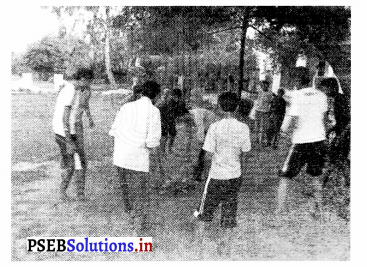
![]()
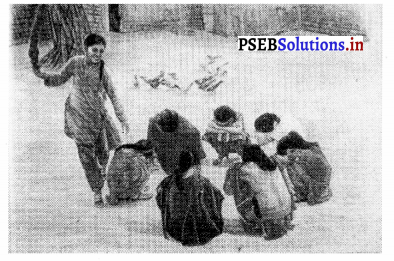
![]()
![]()
![]()
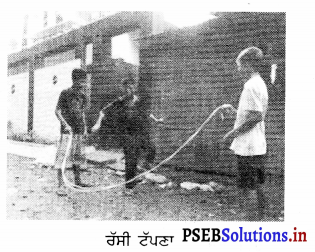
![]()
